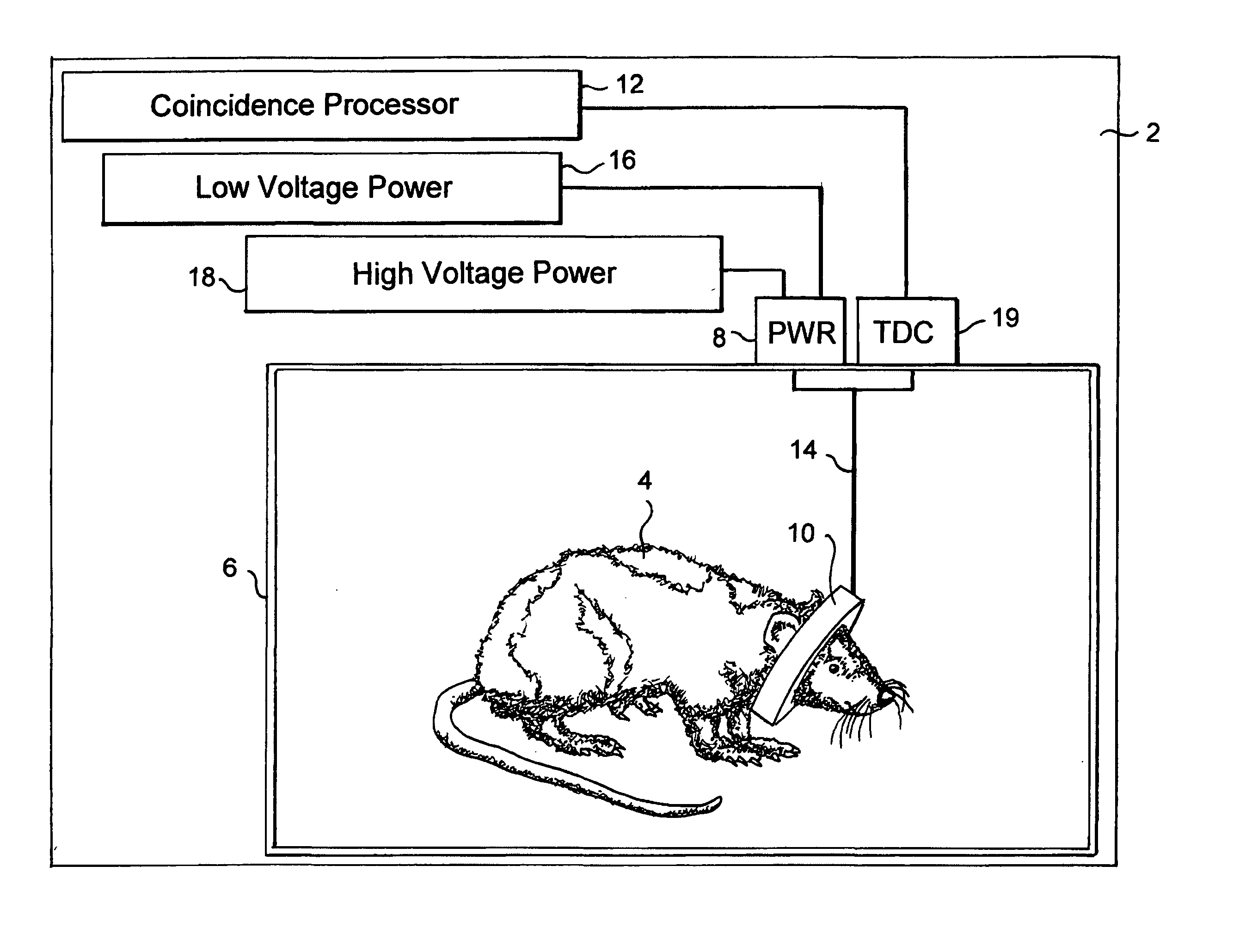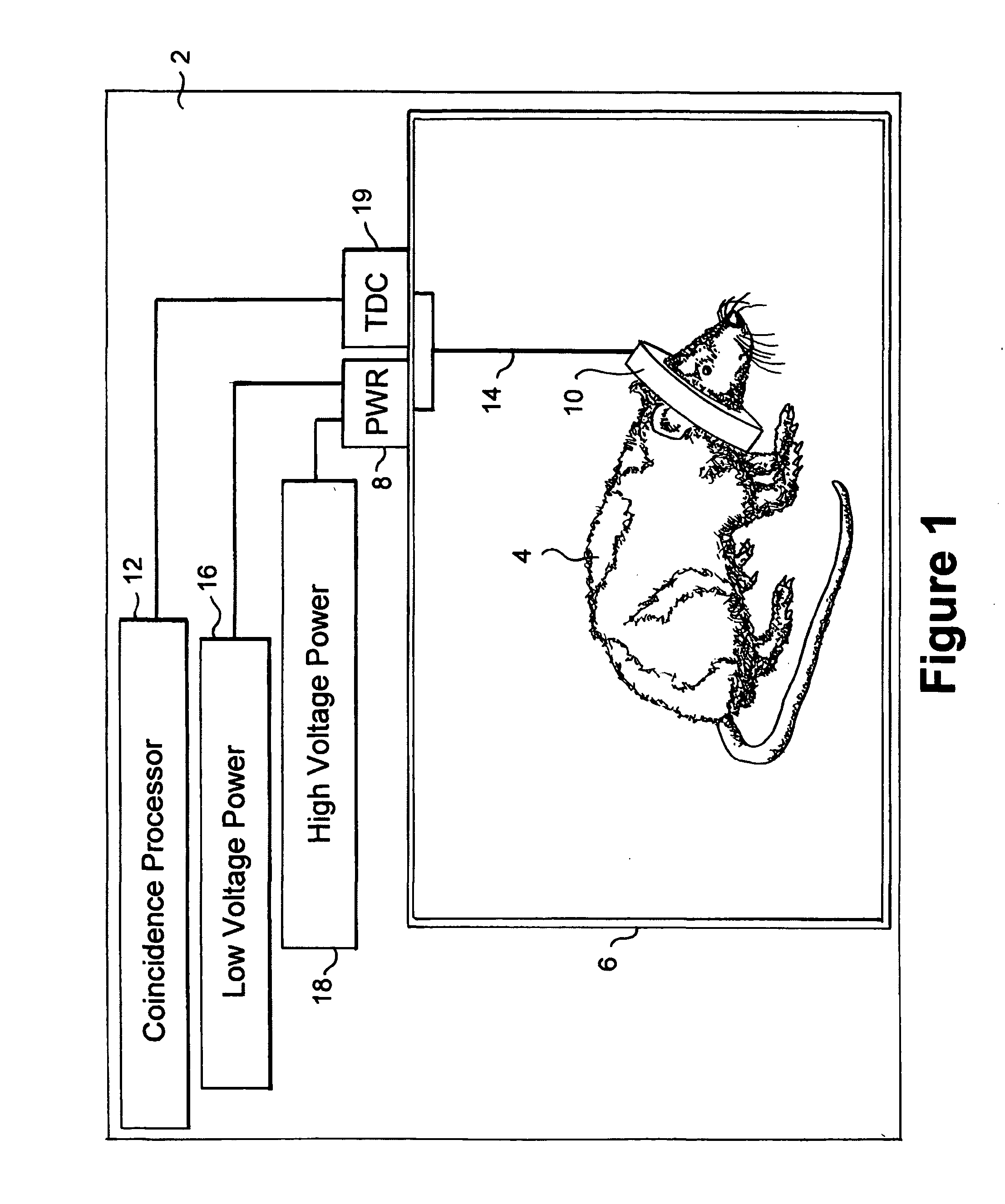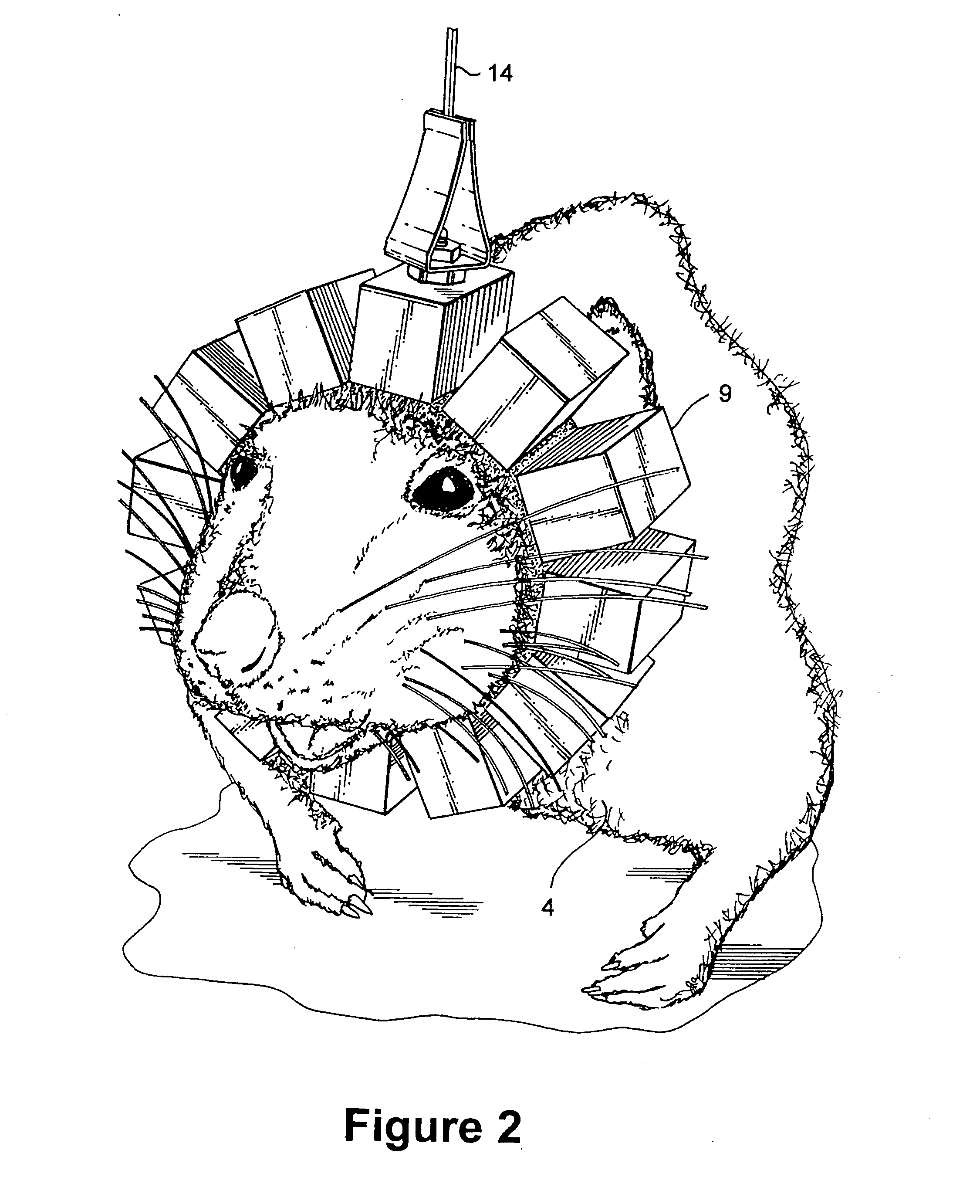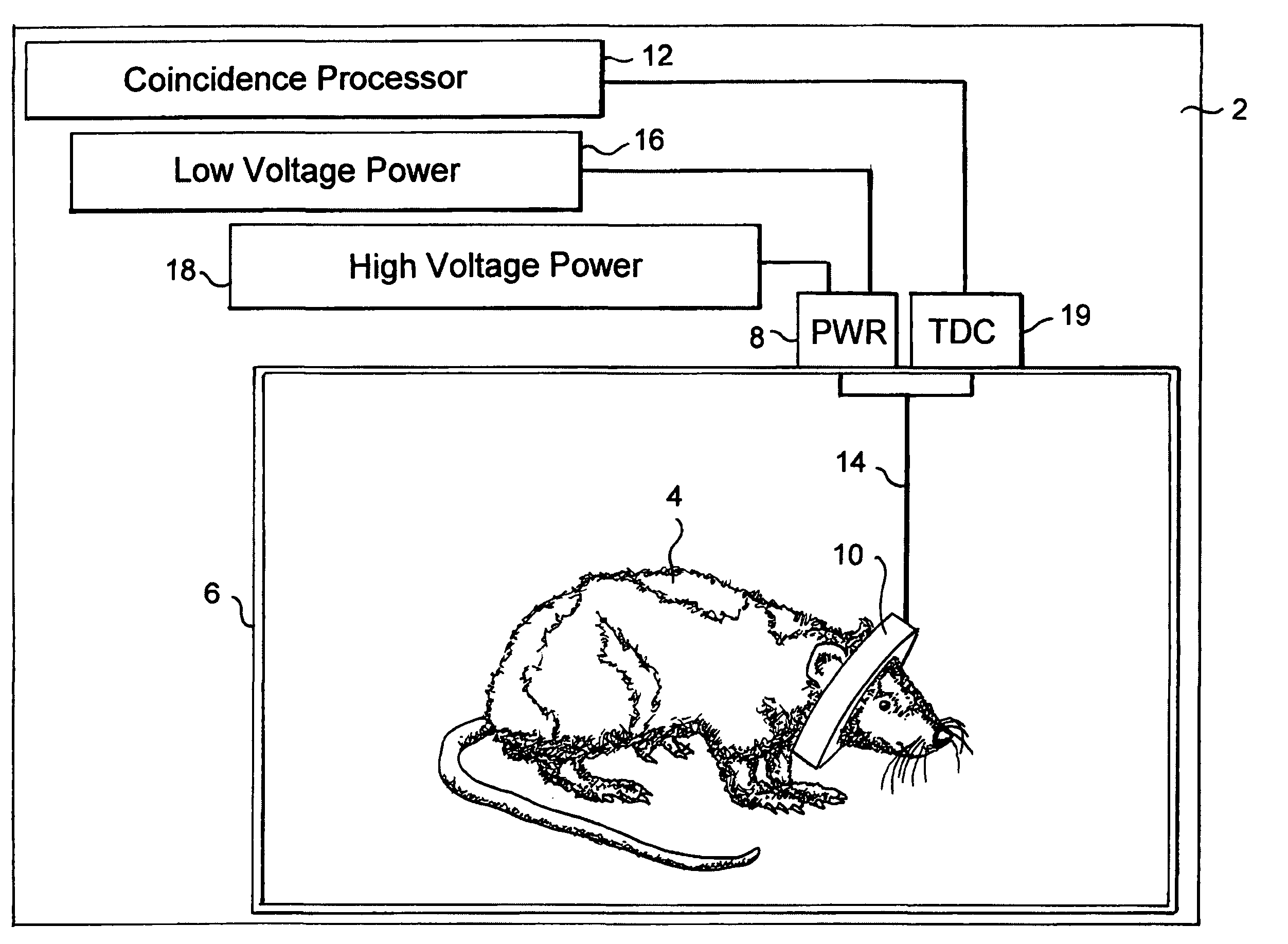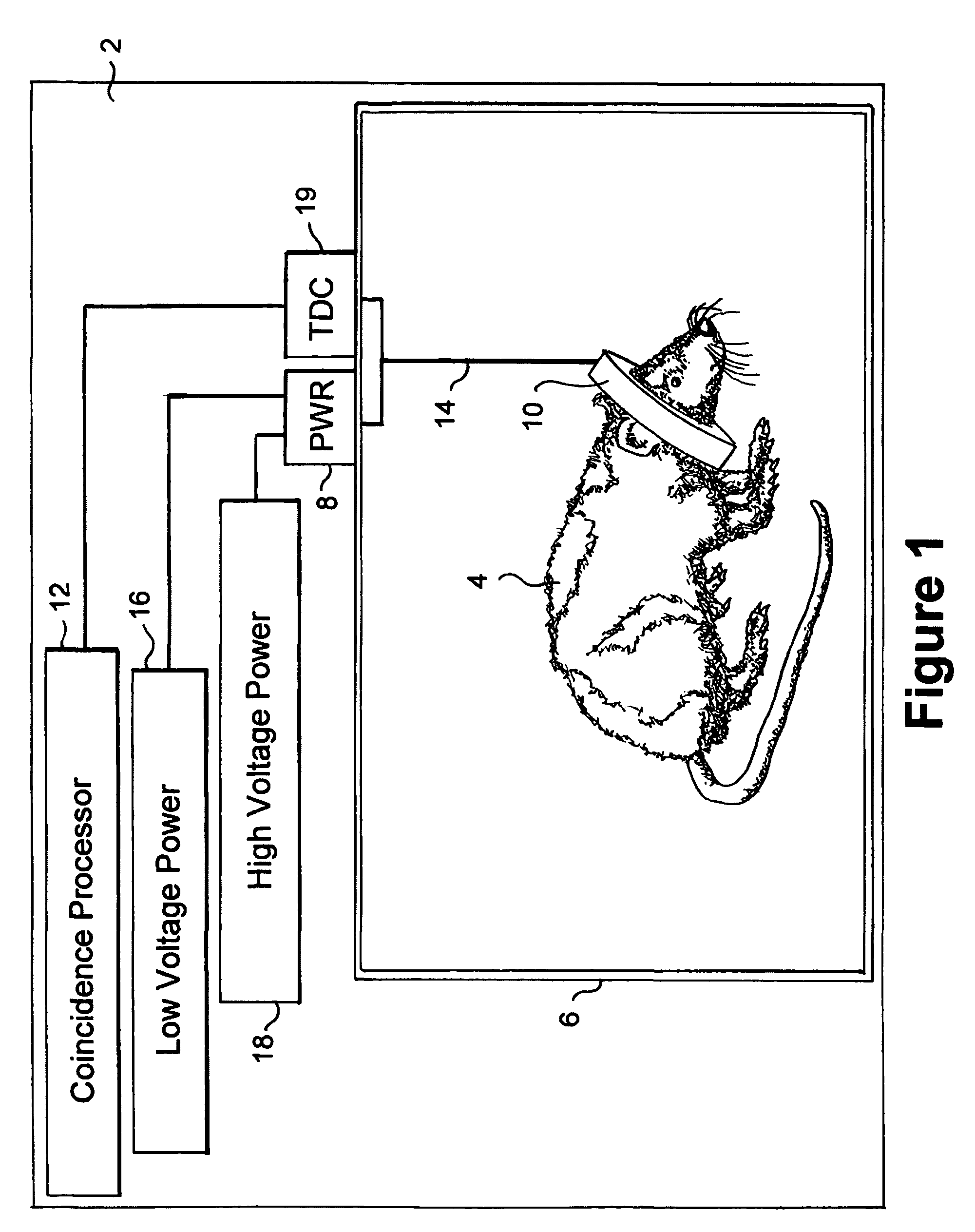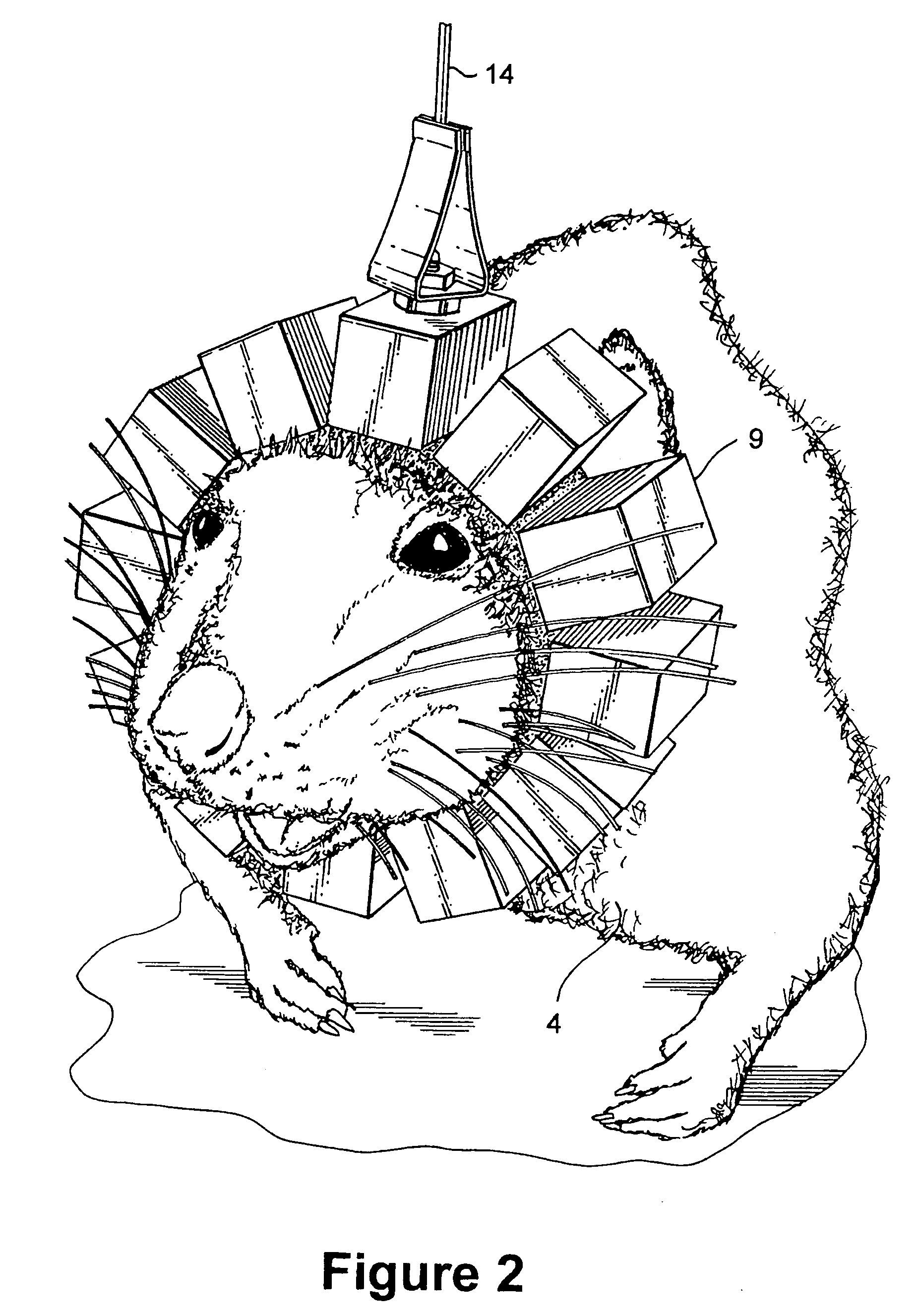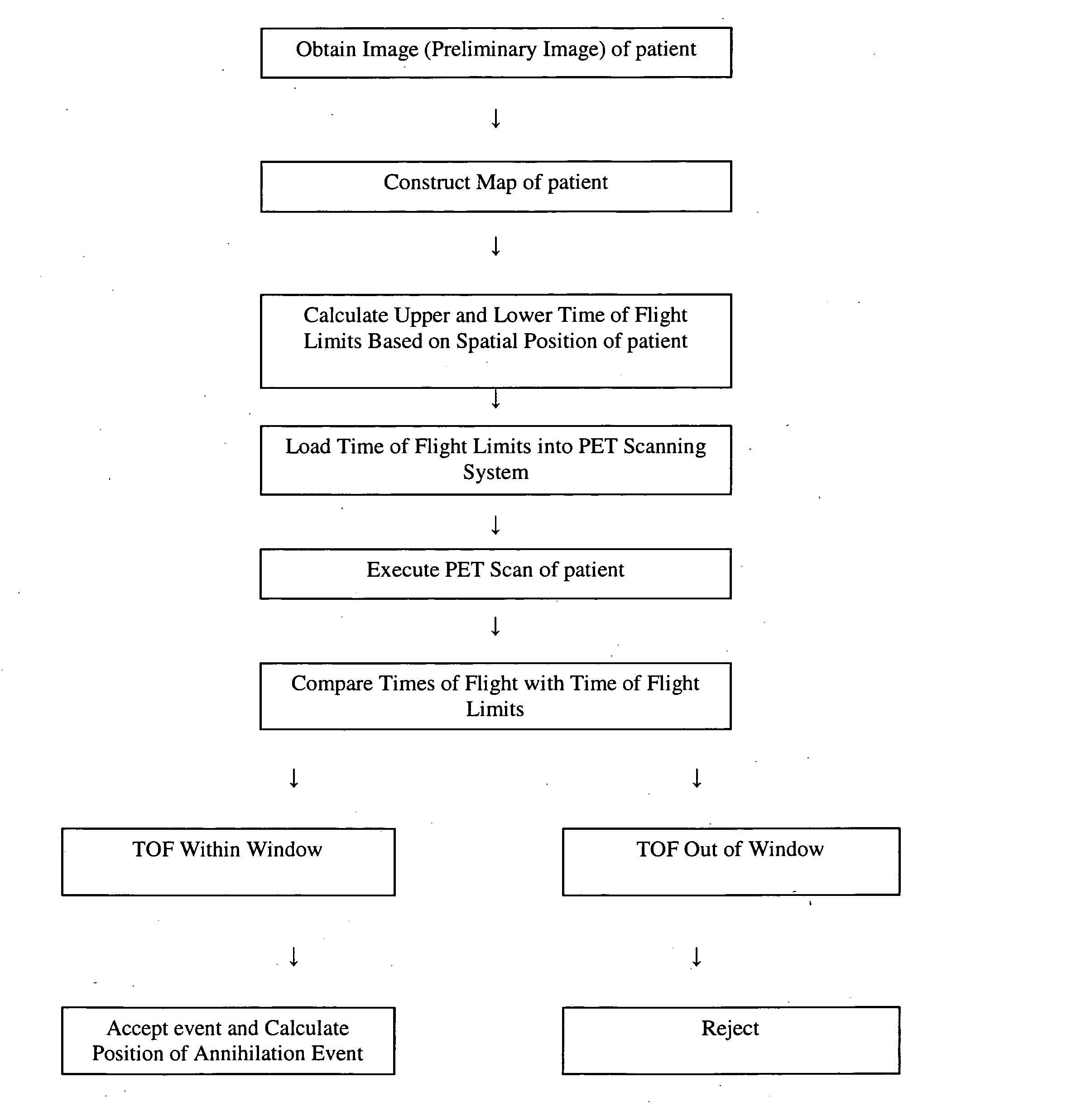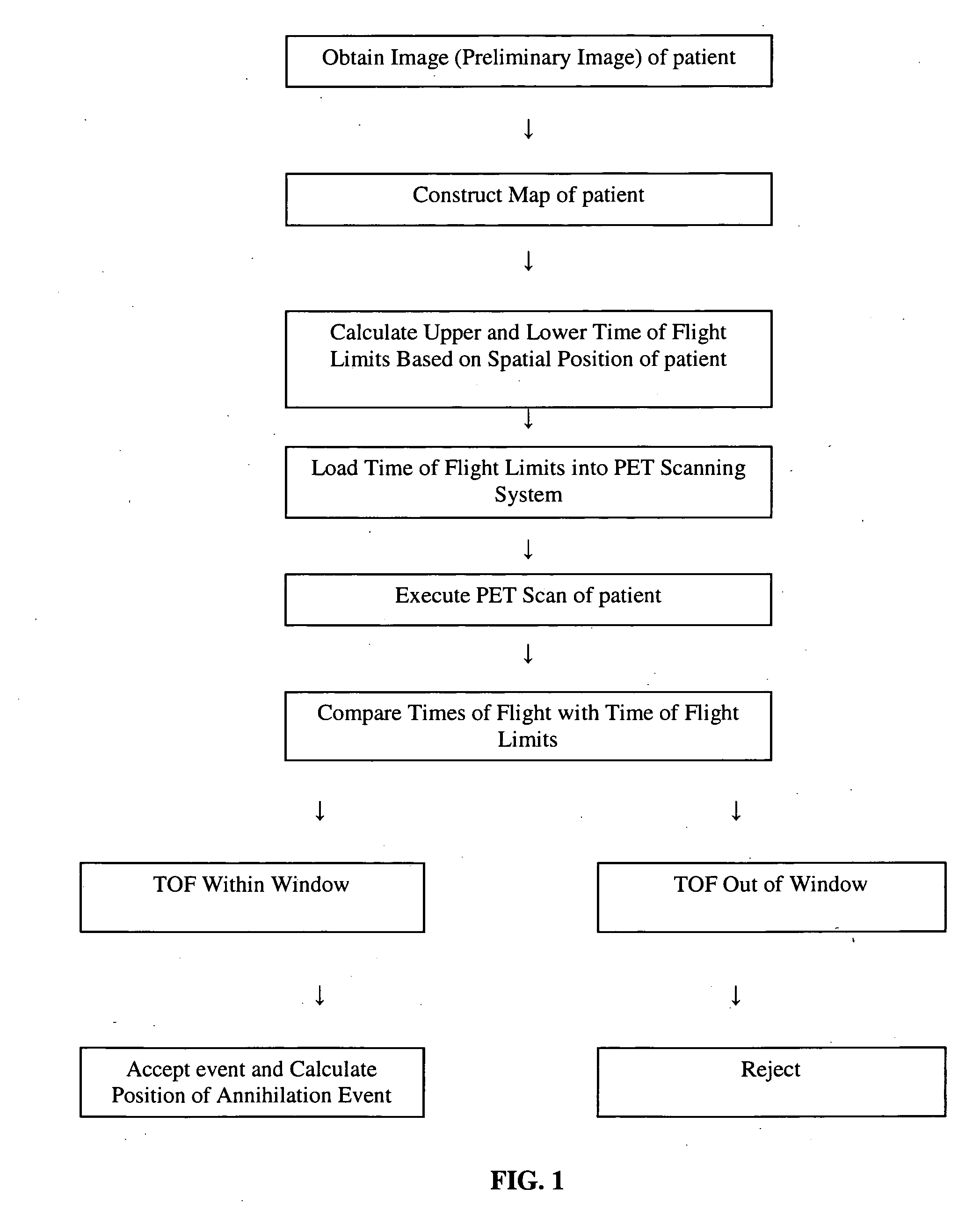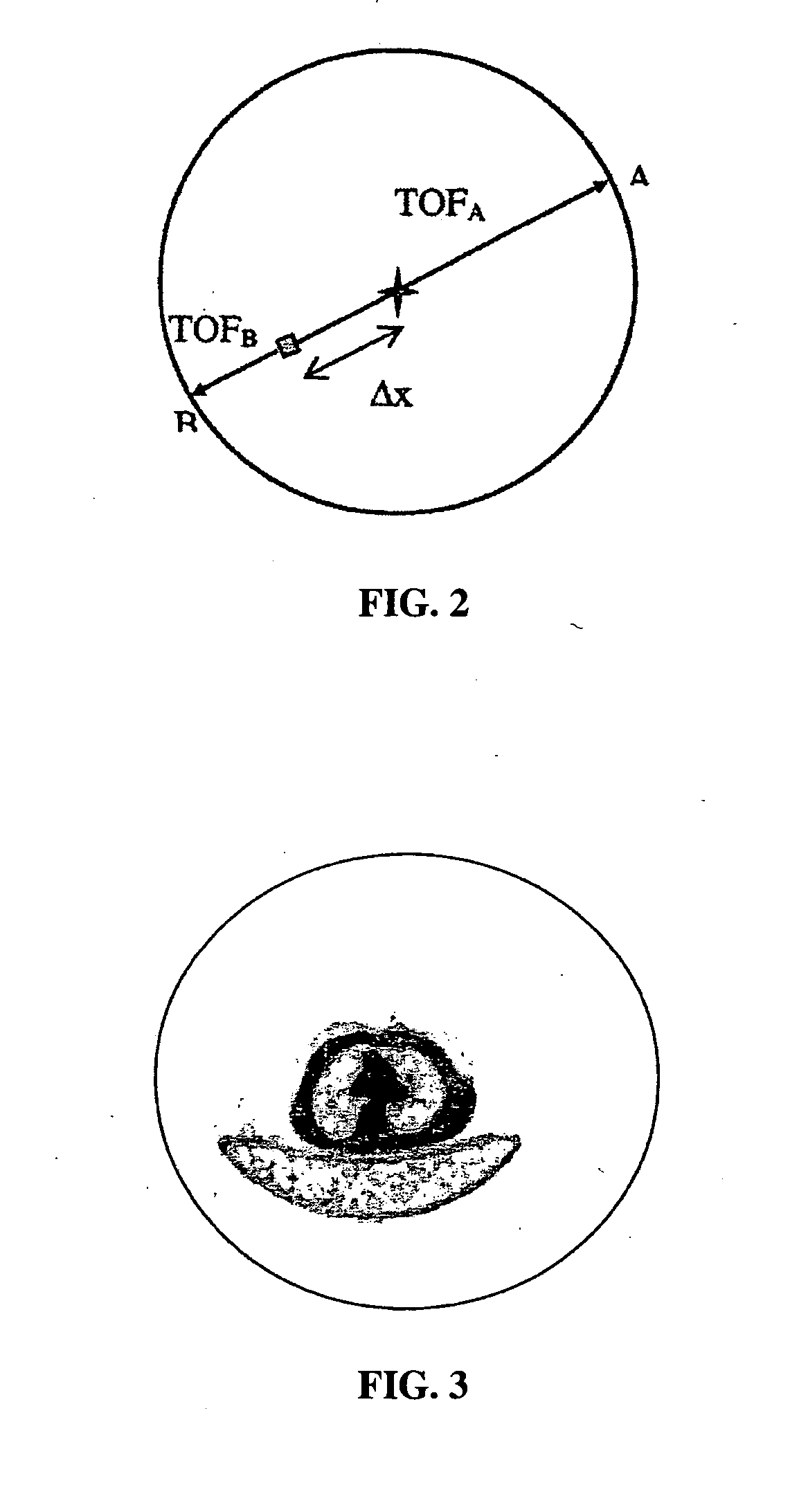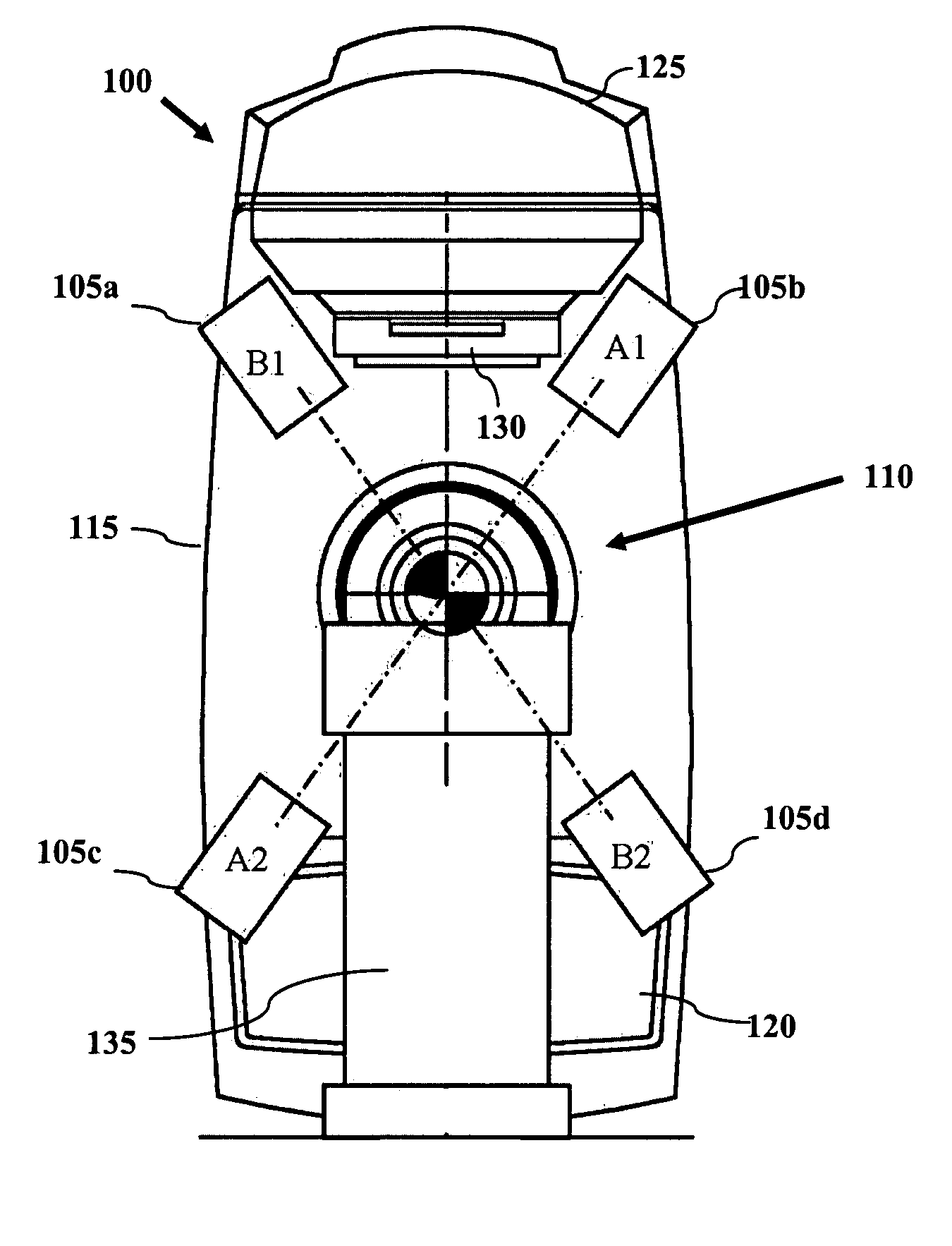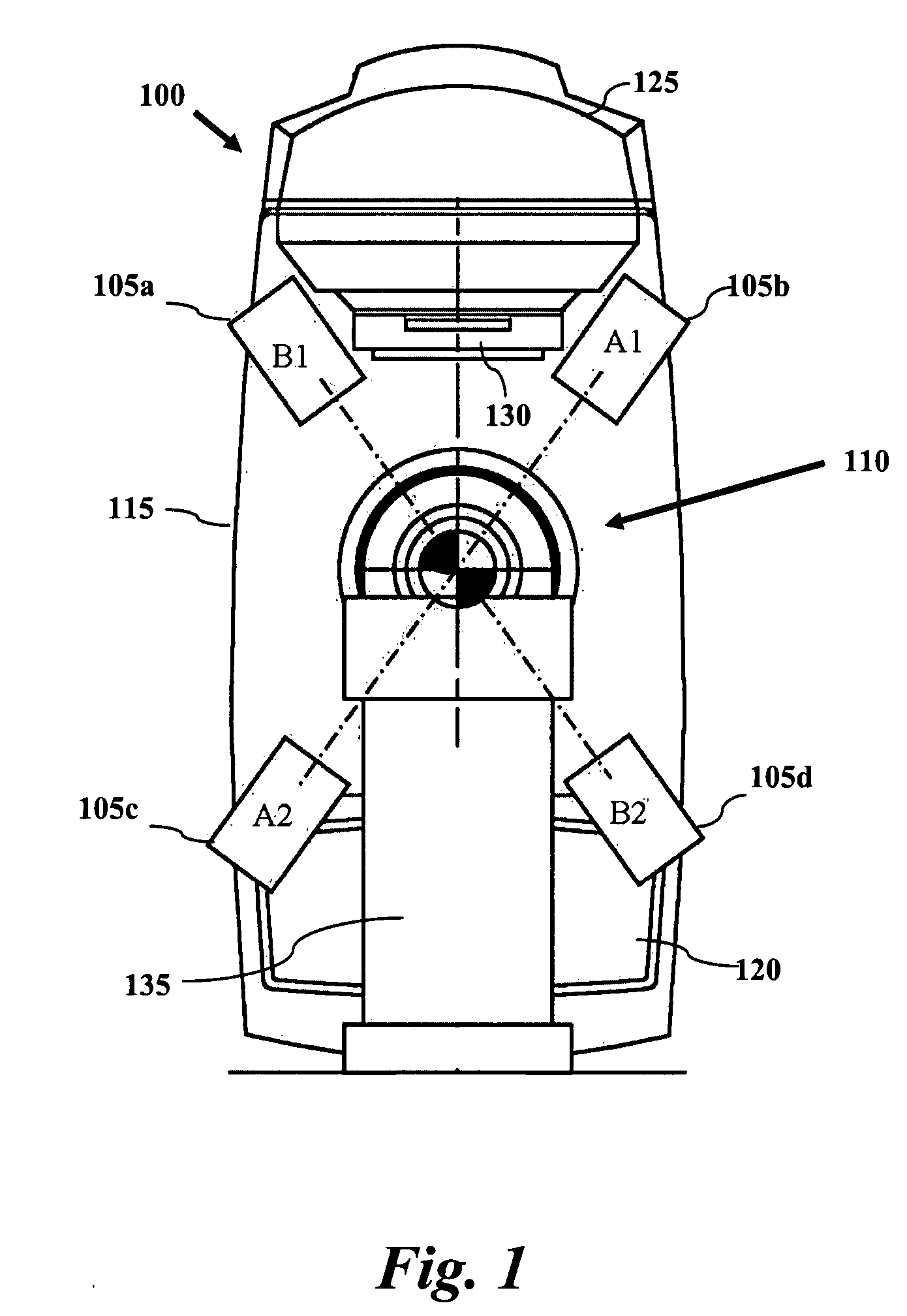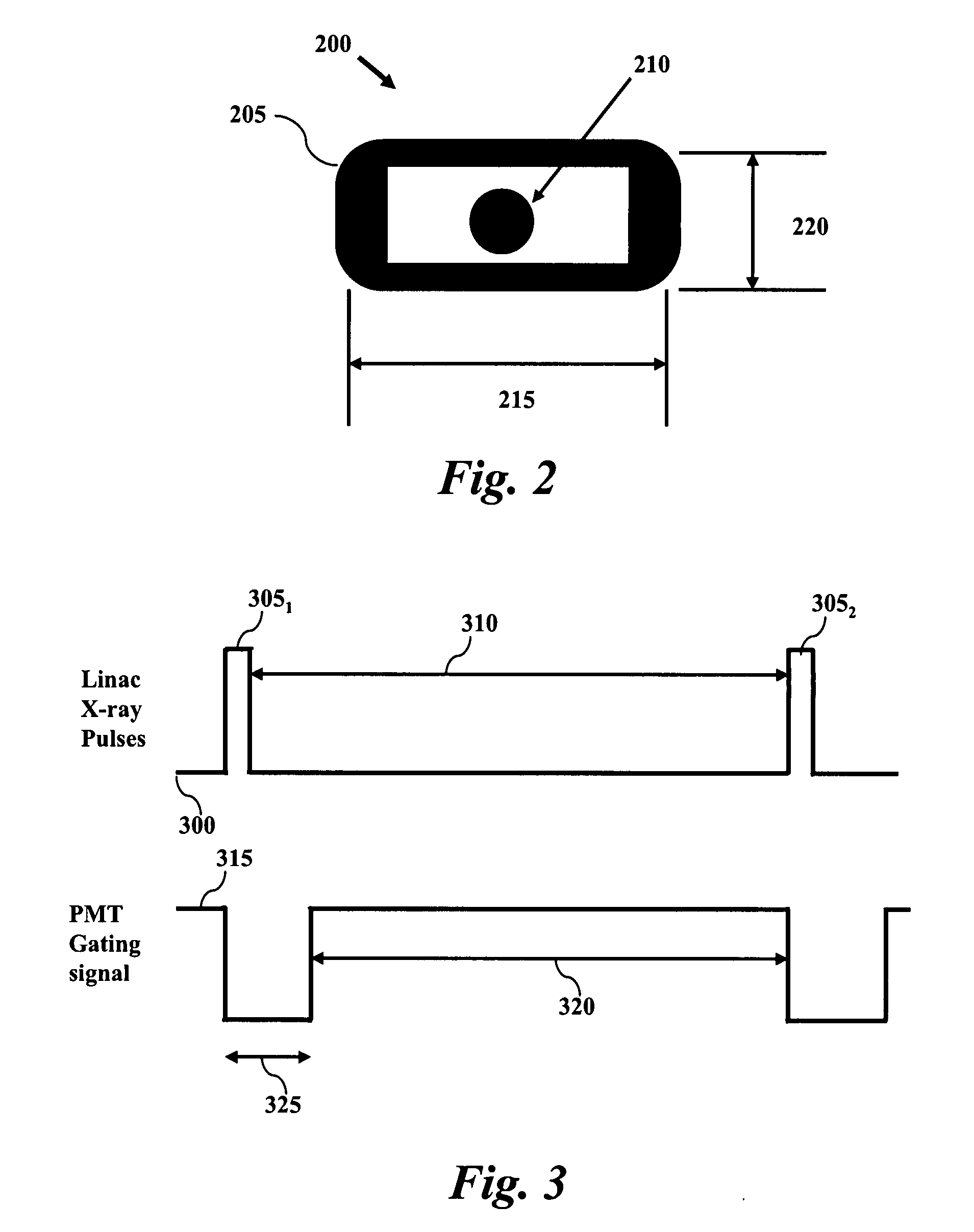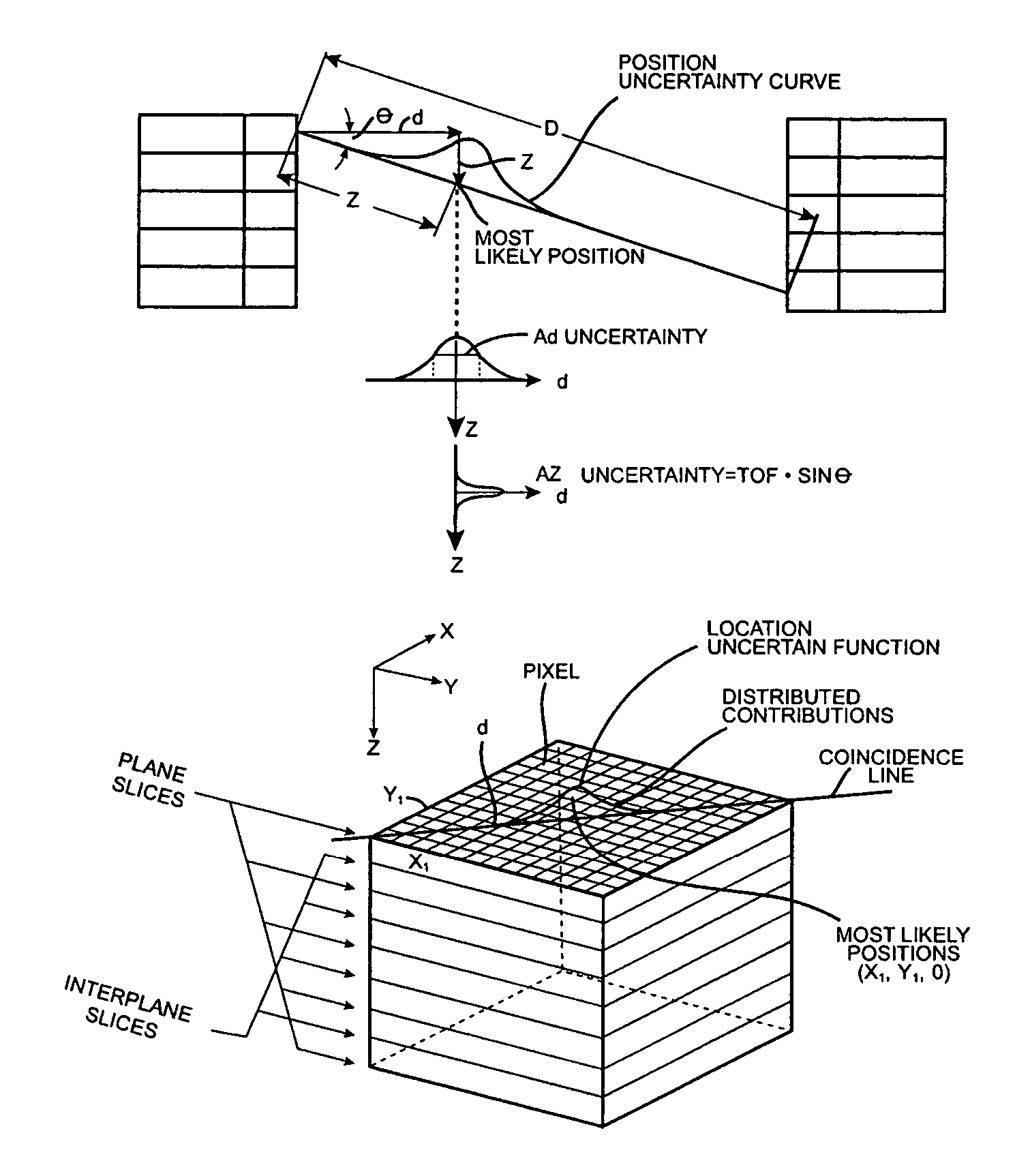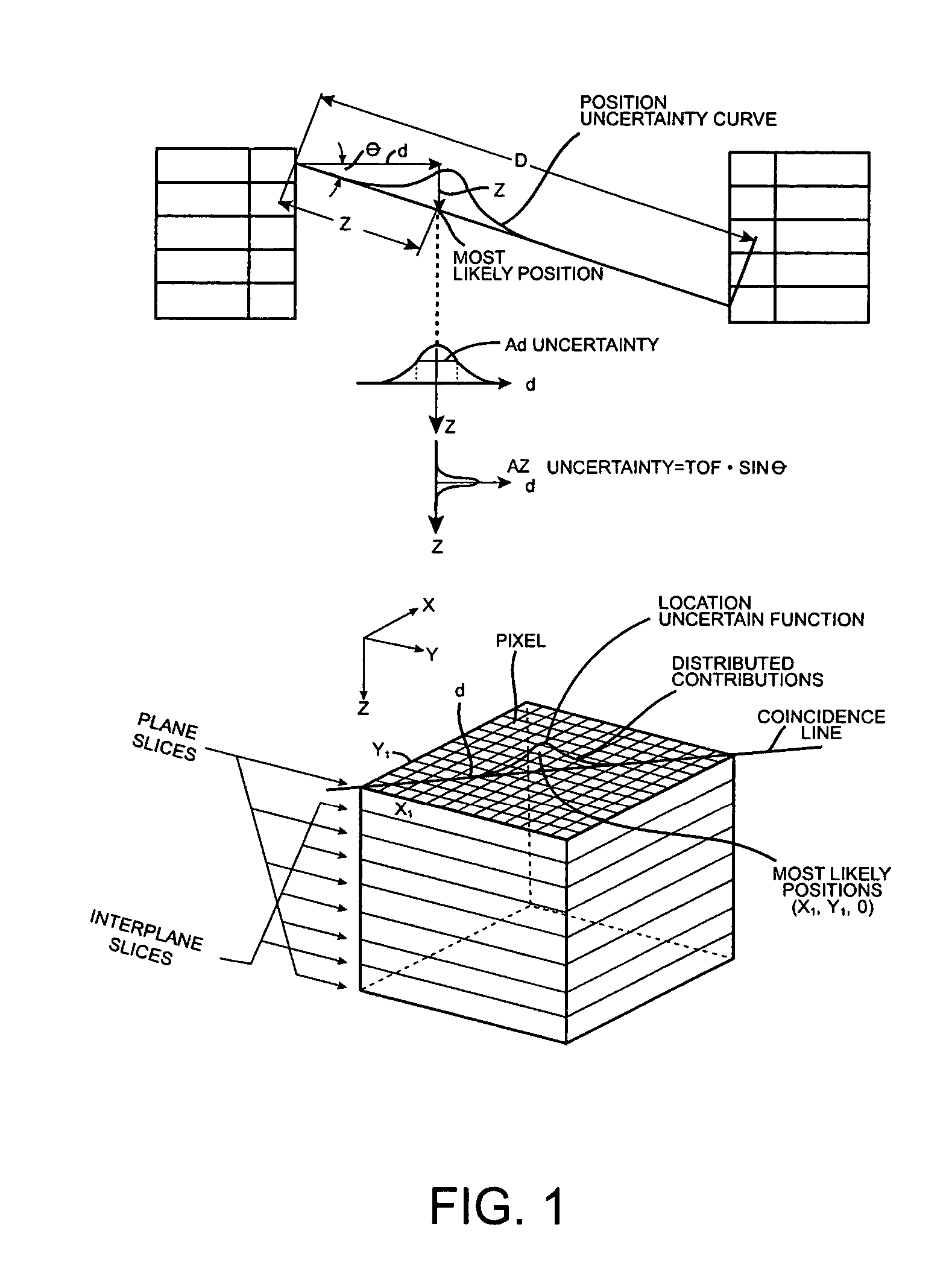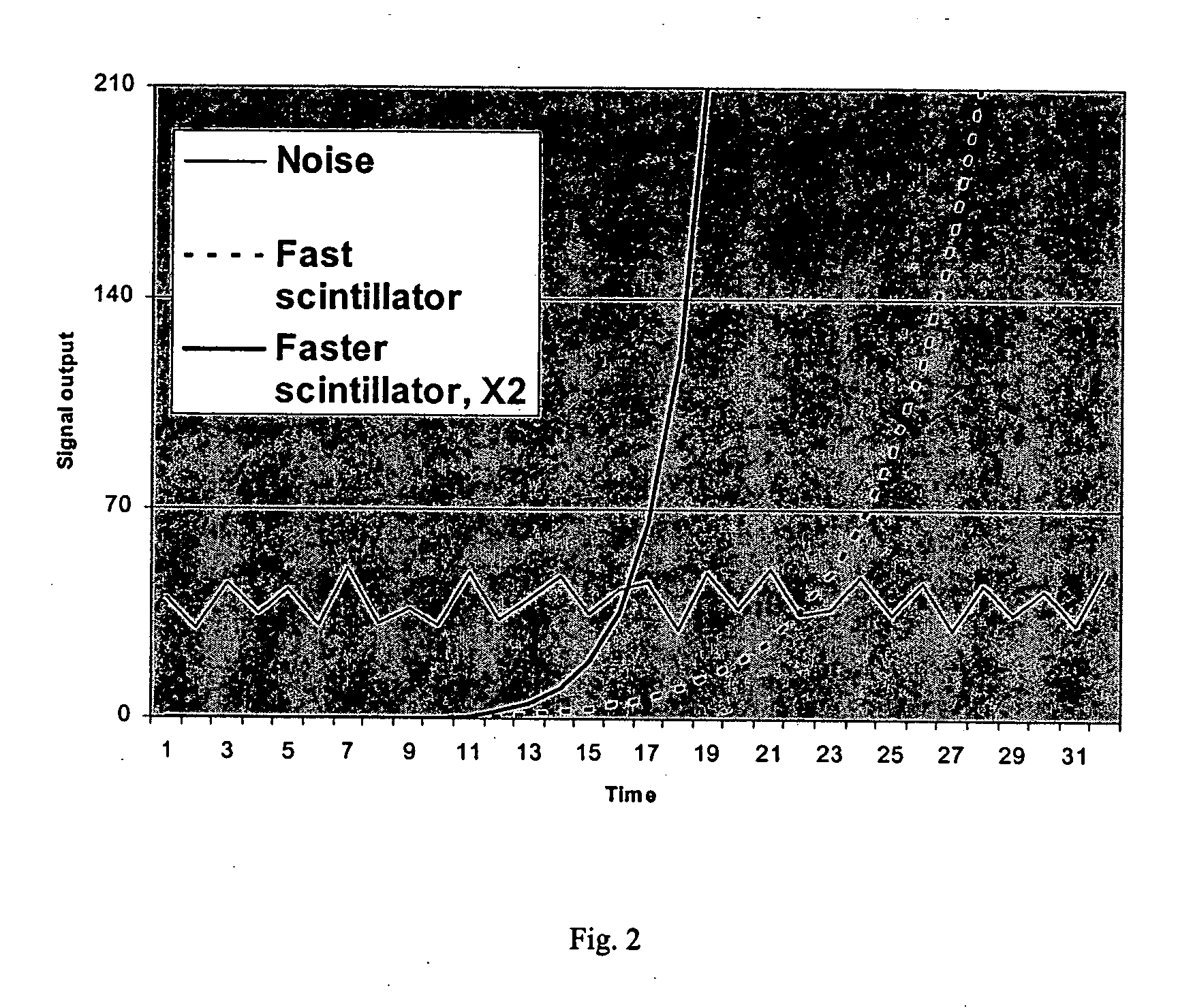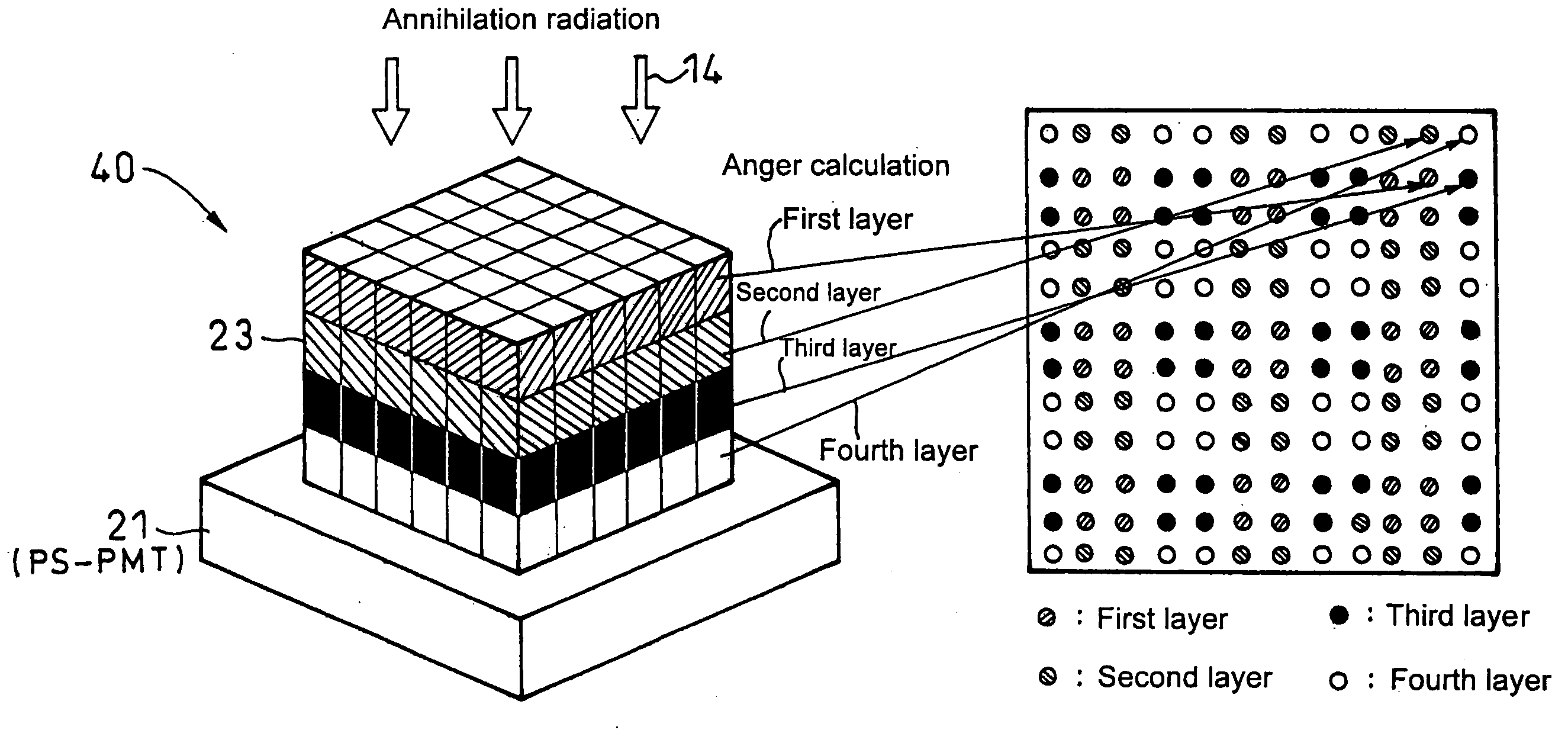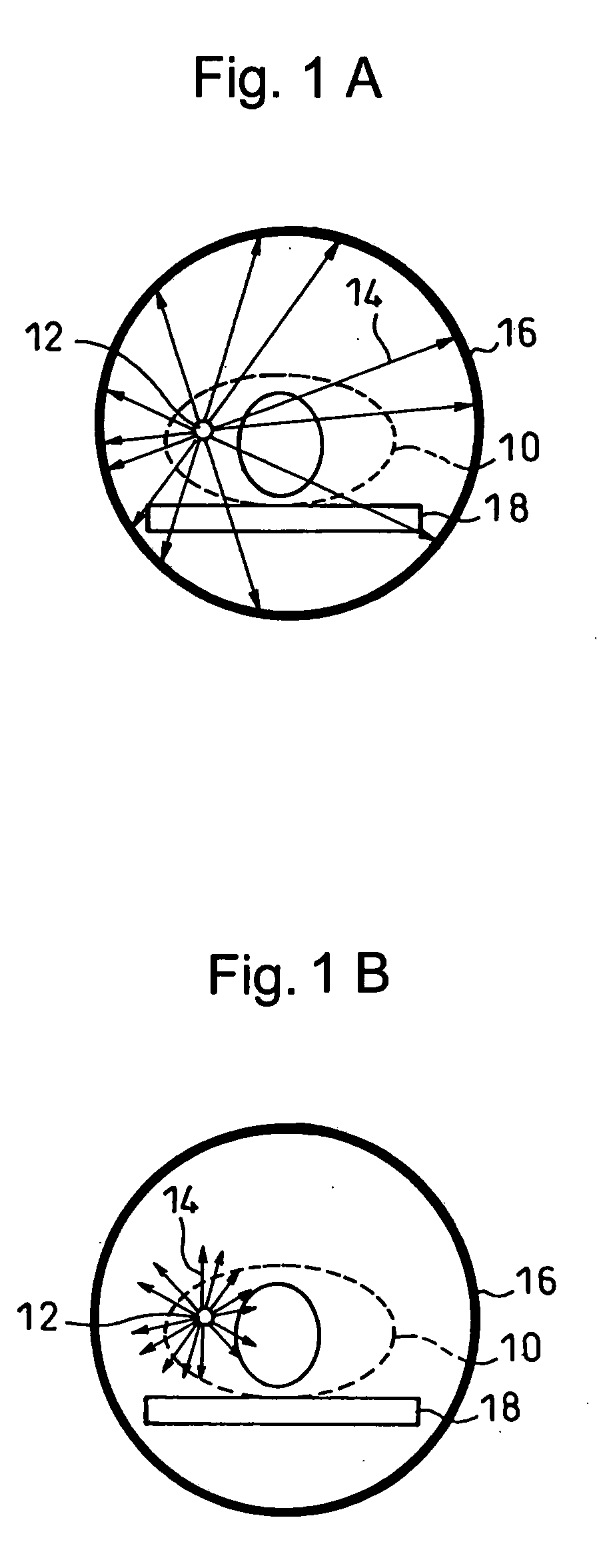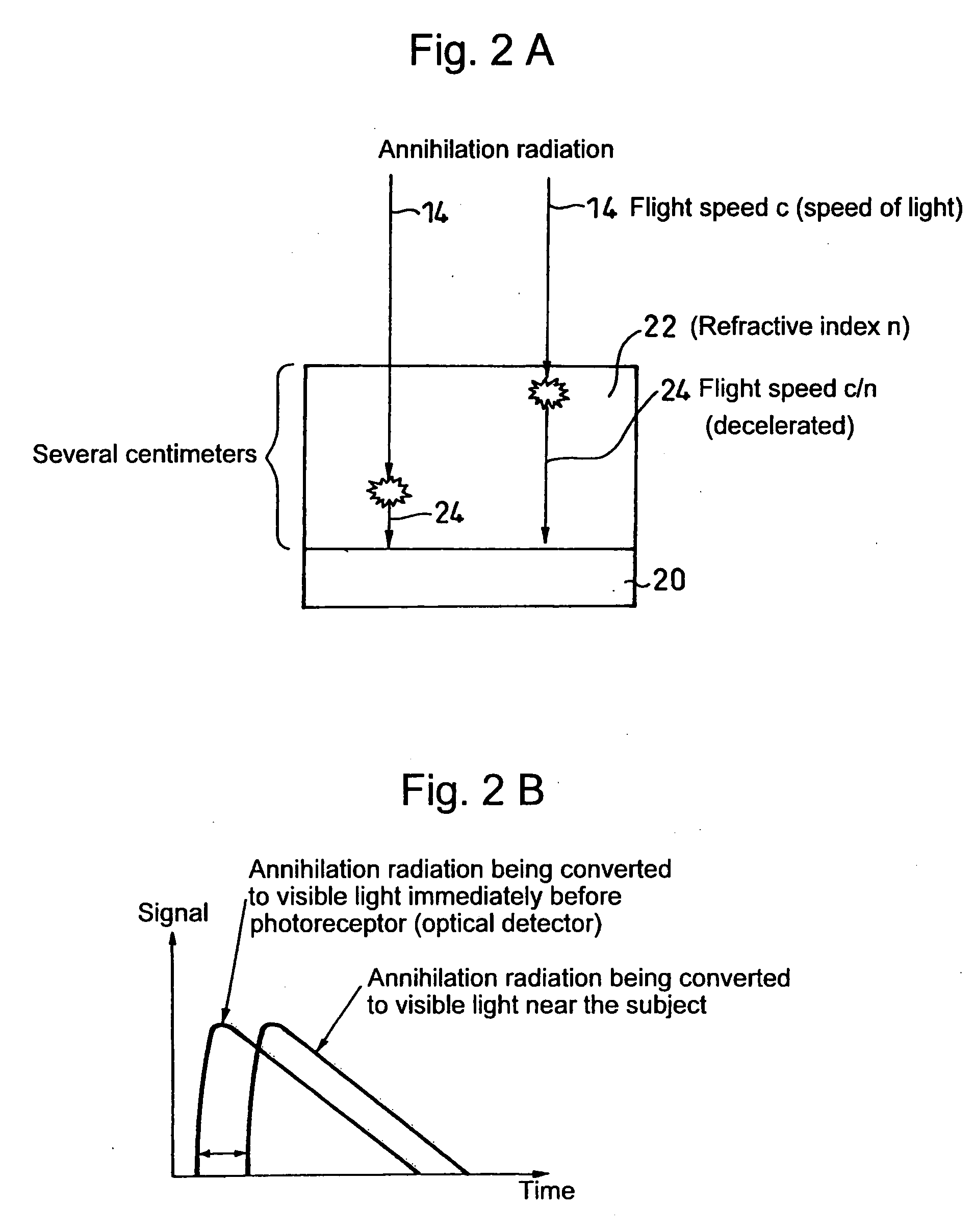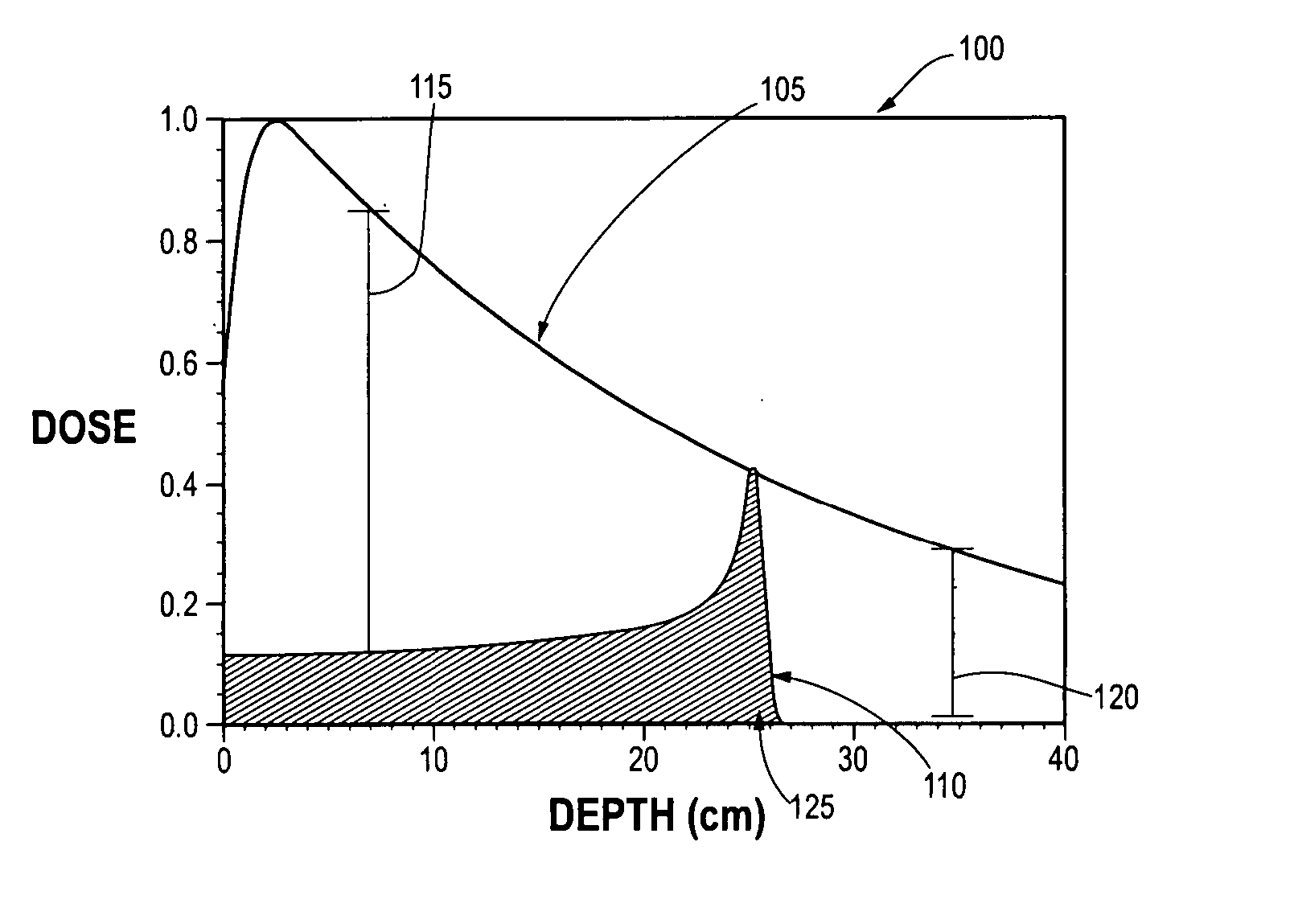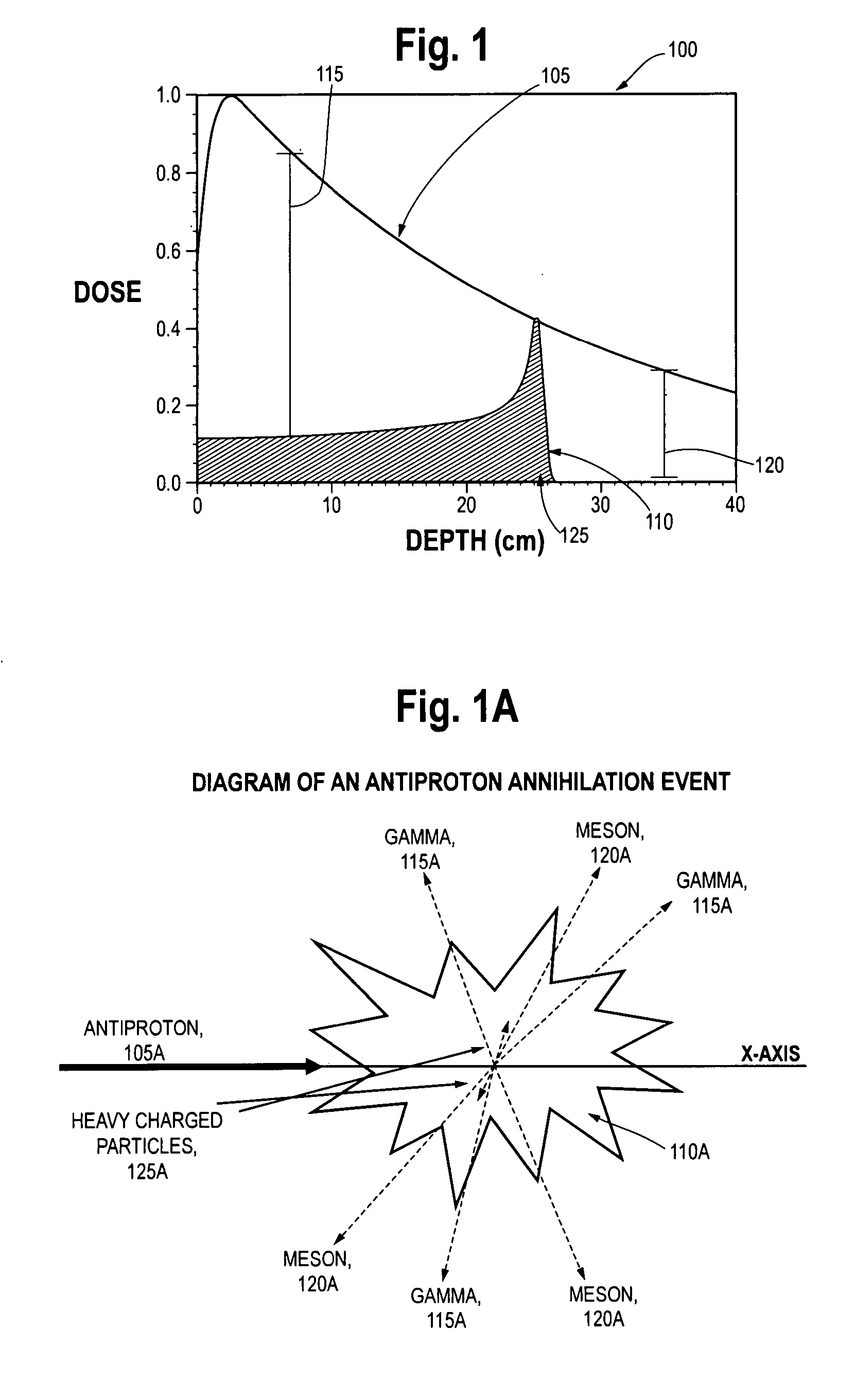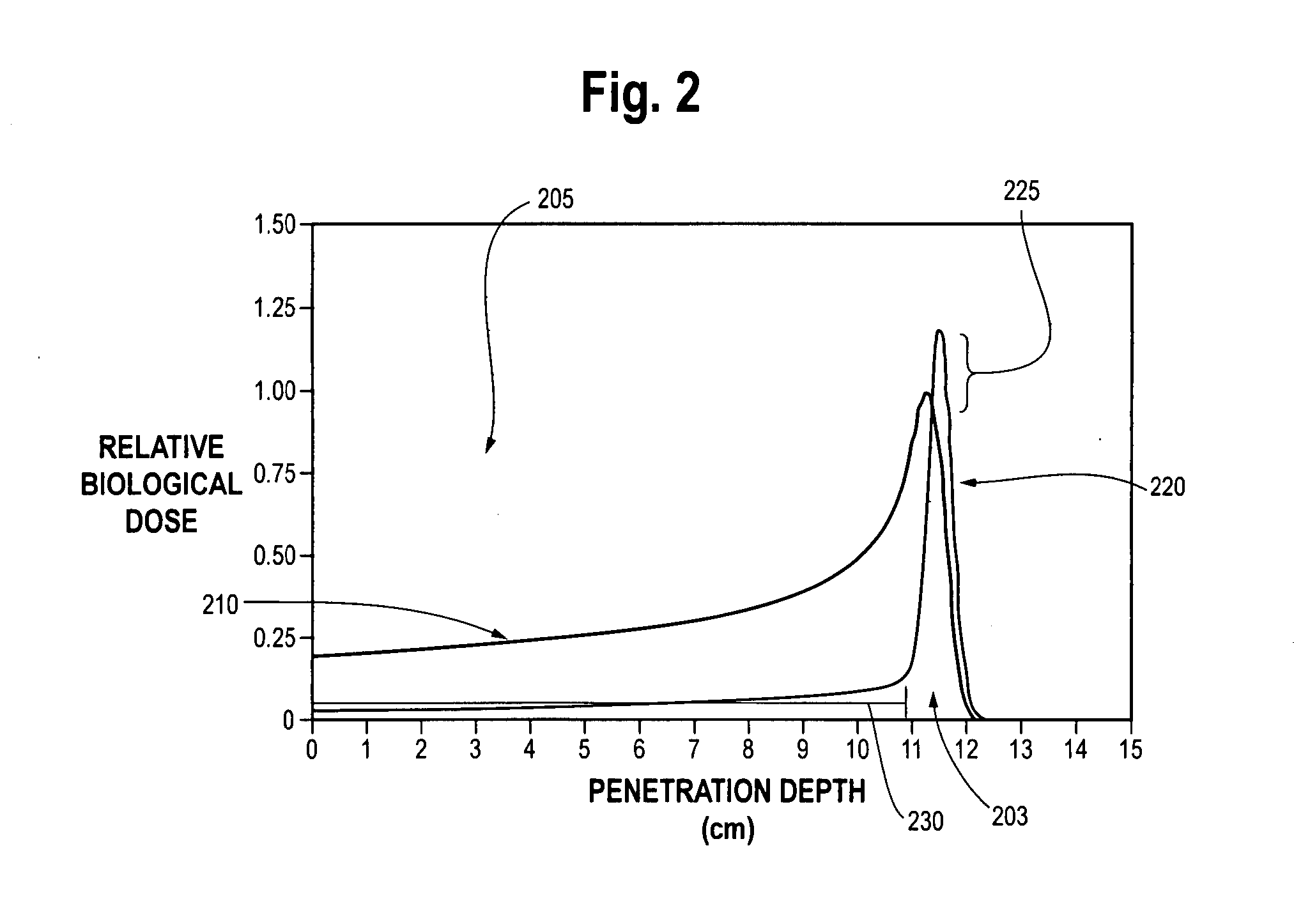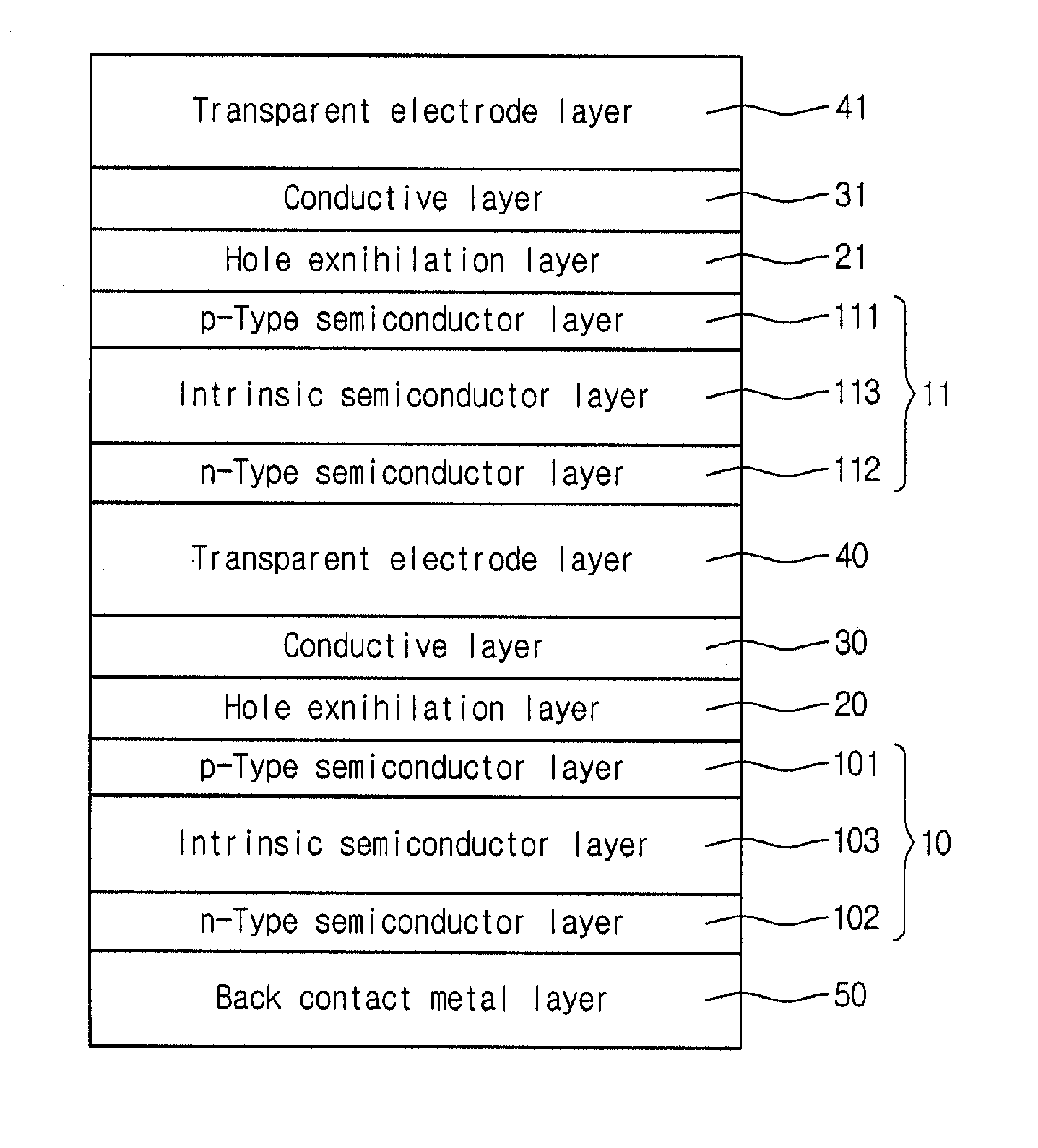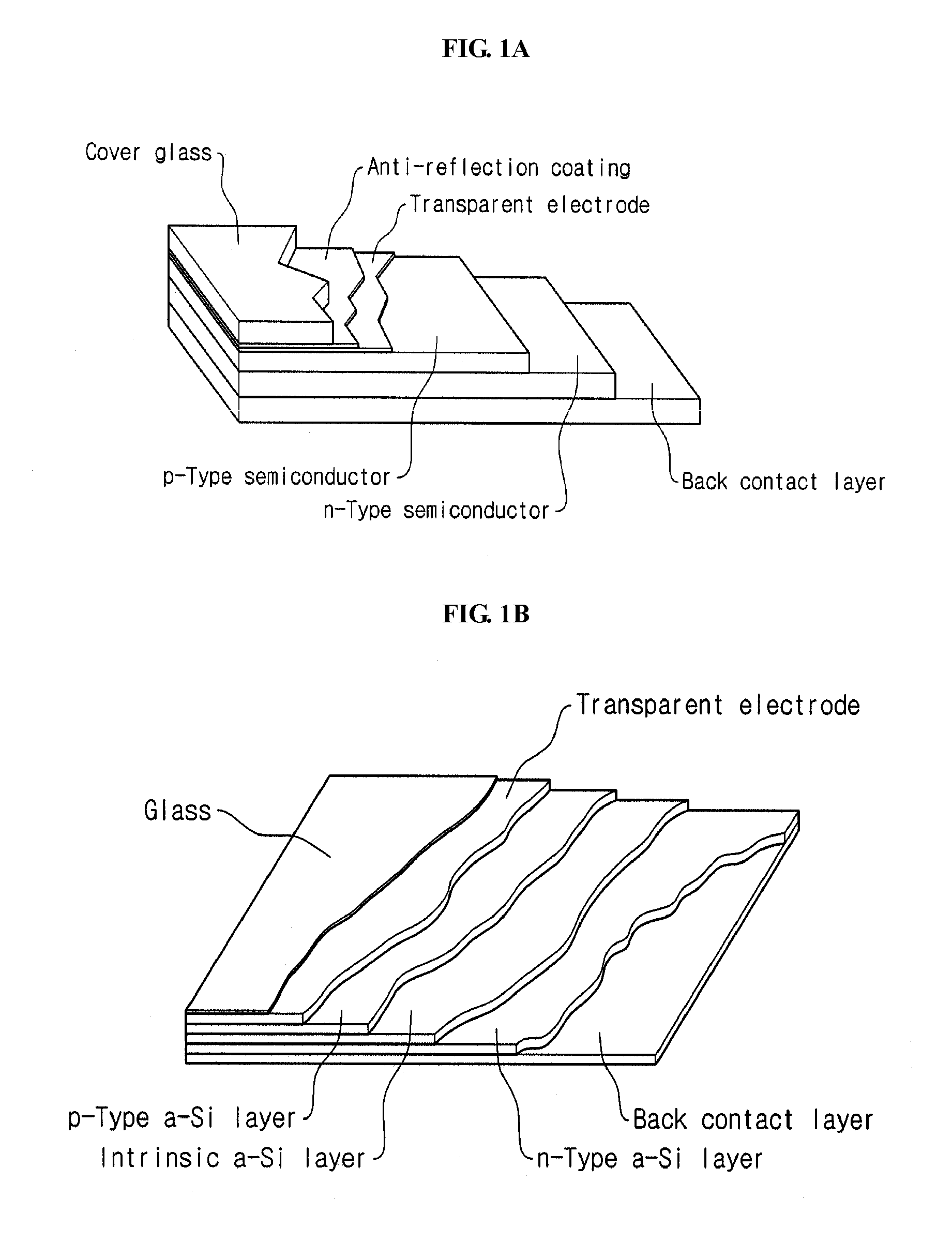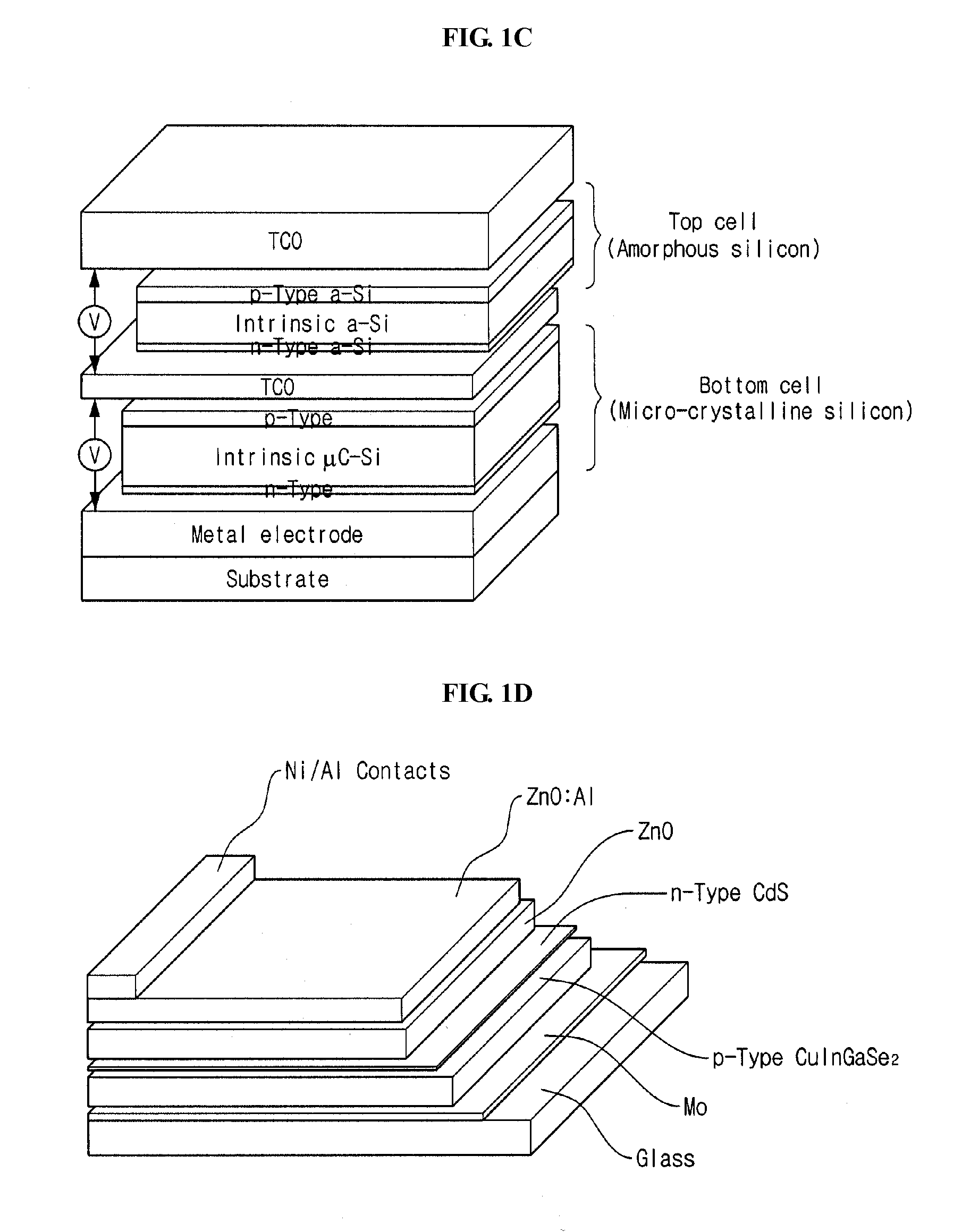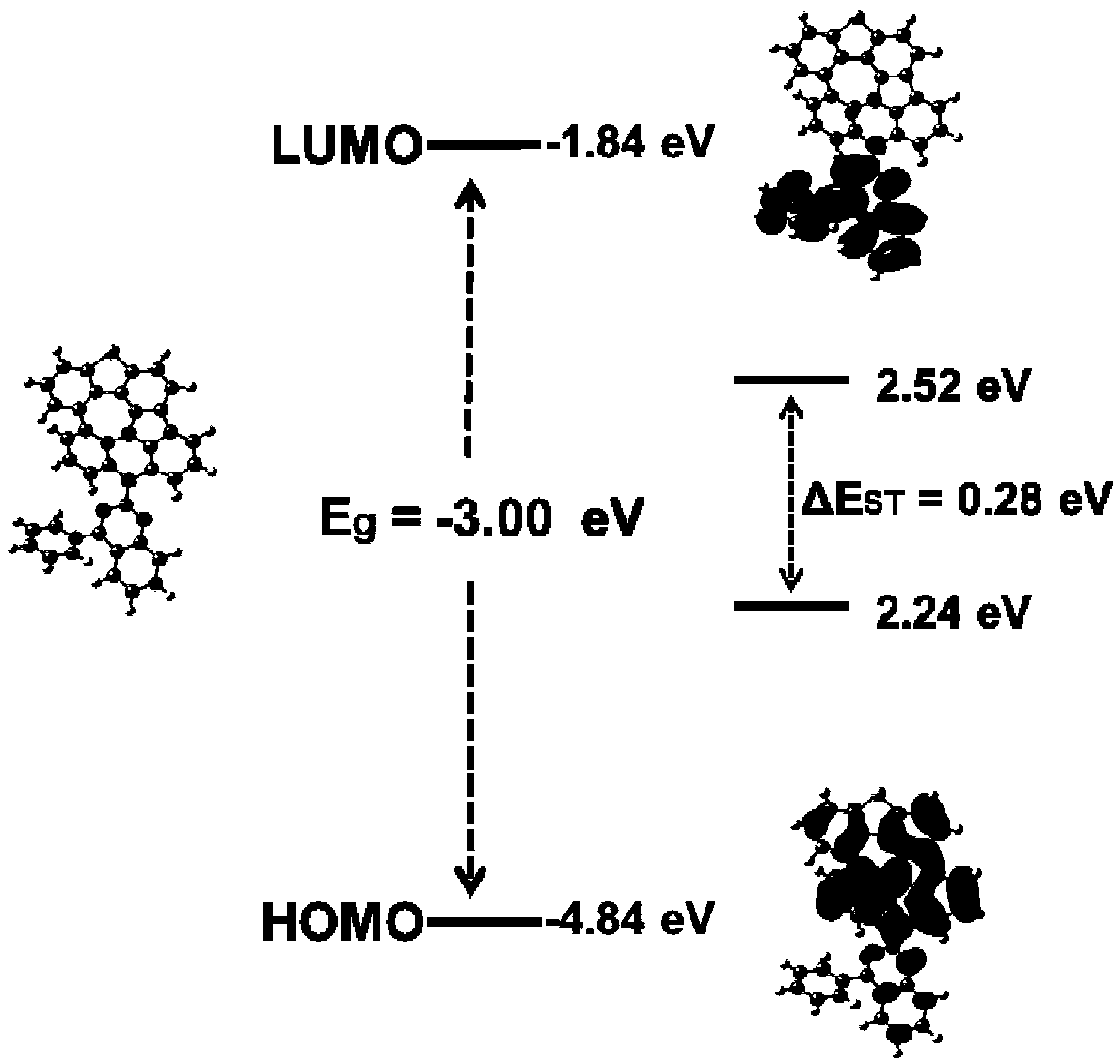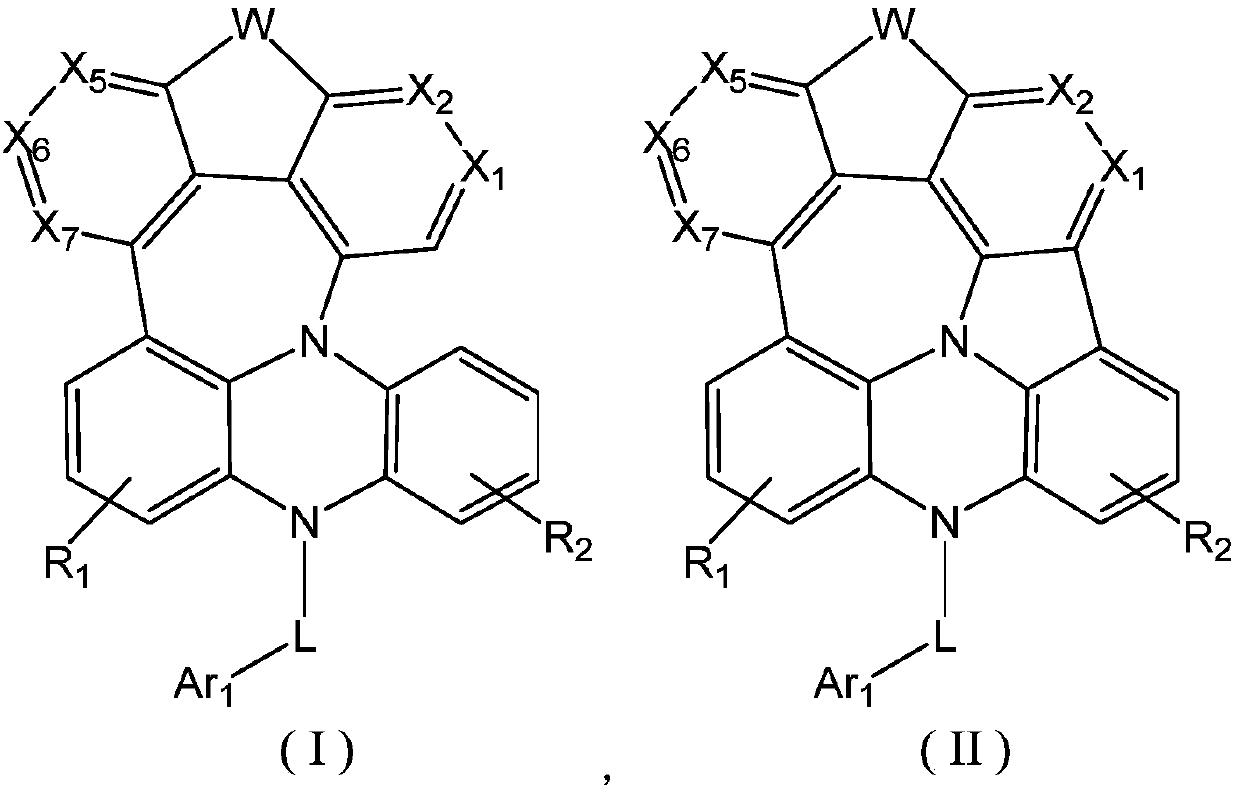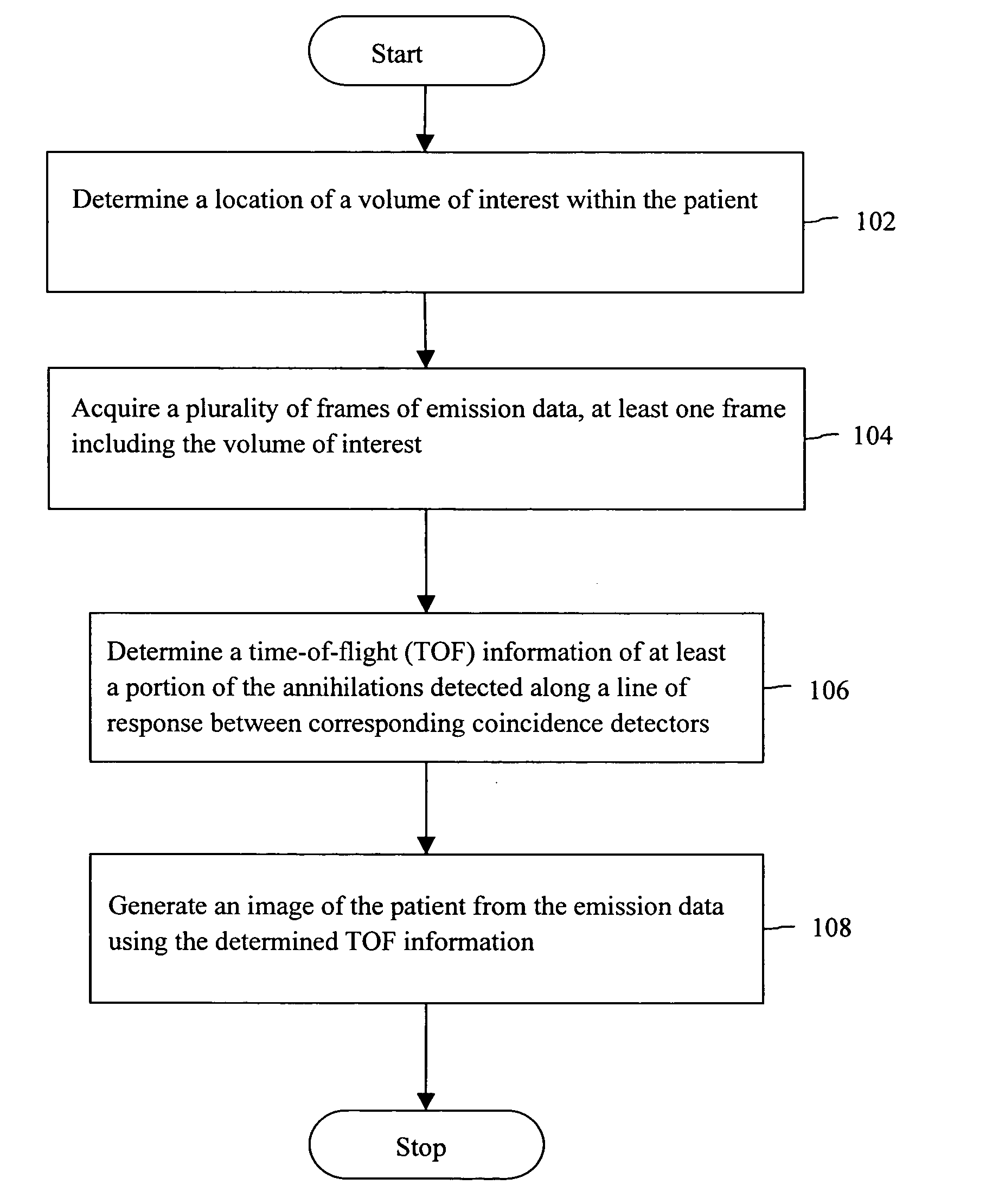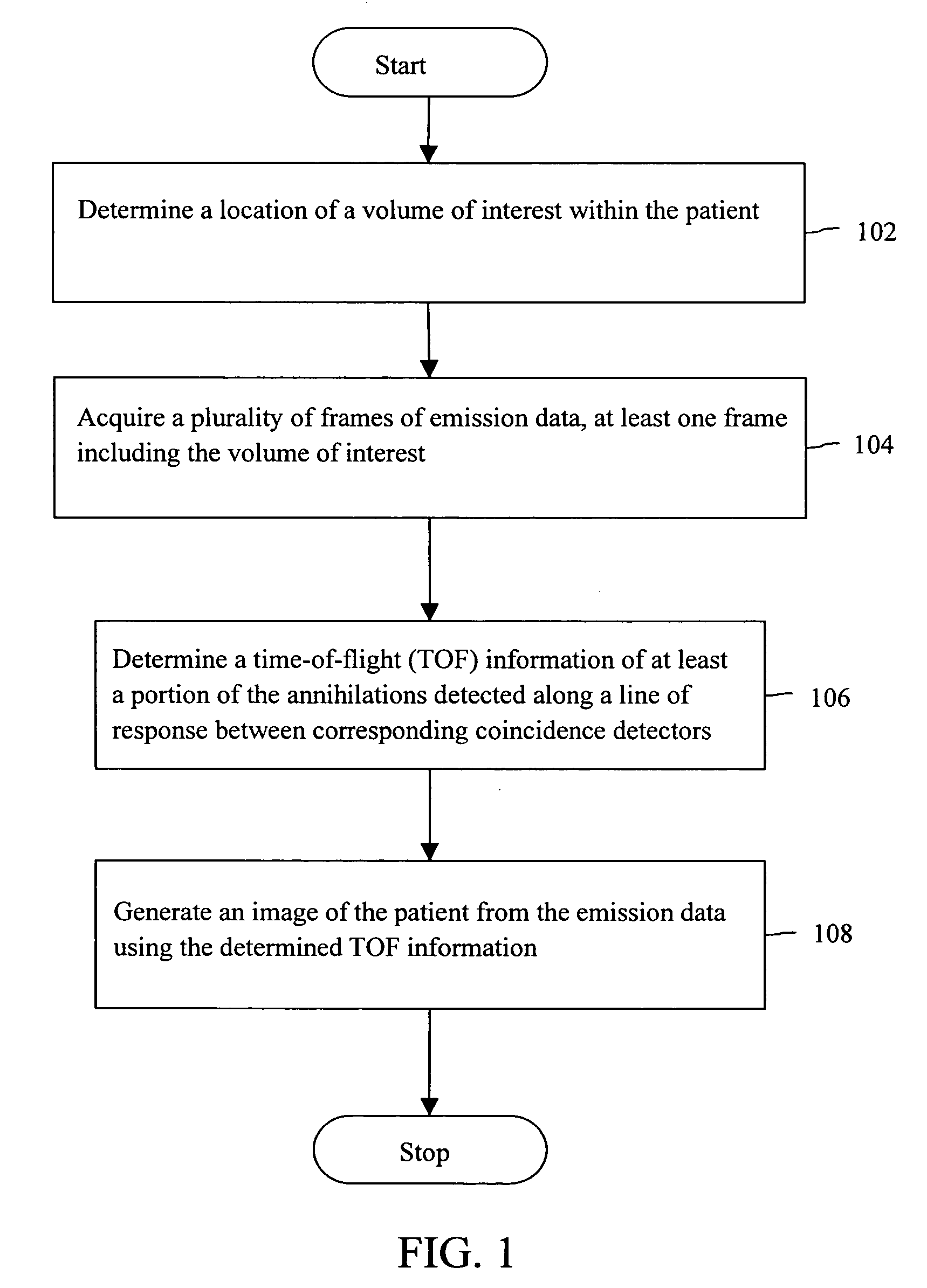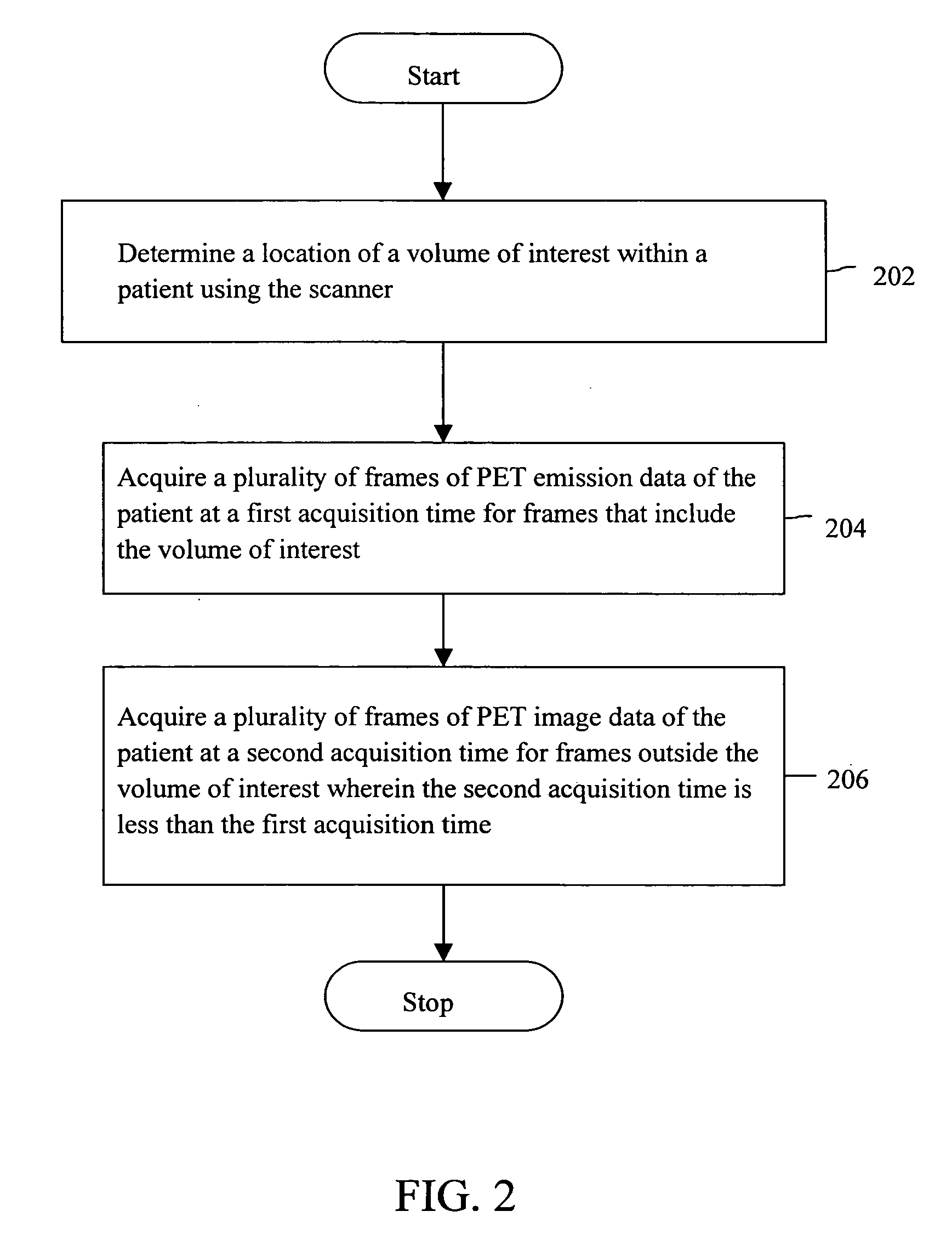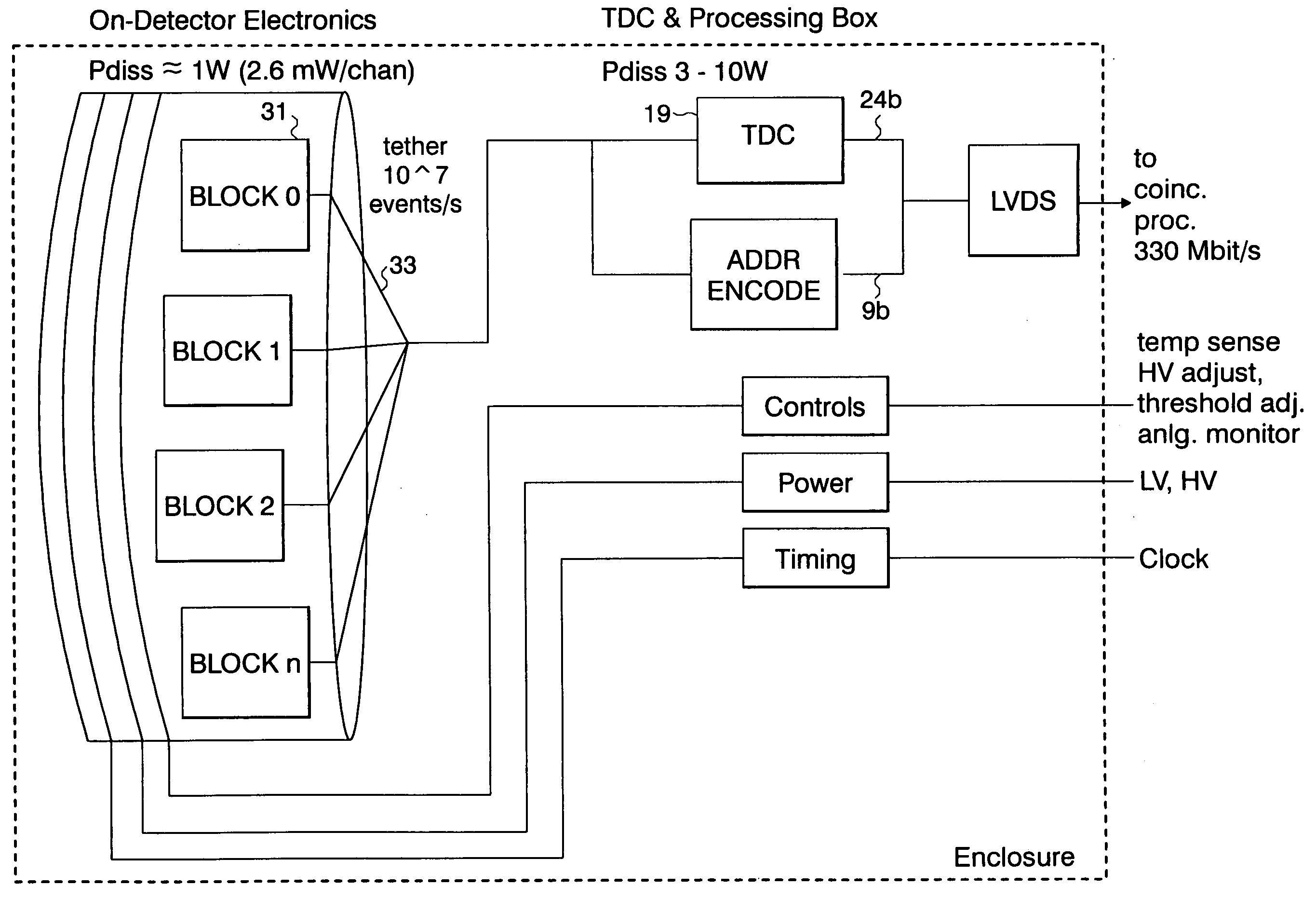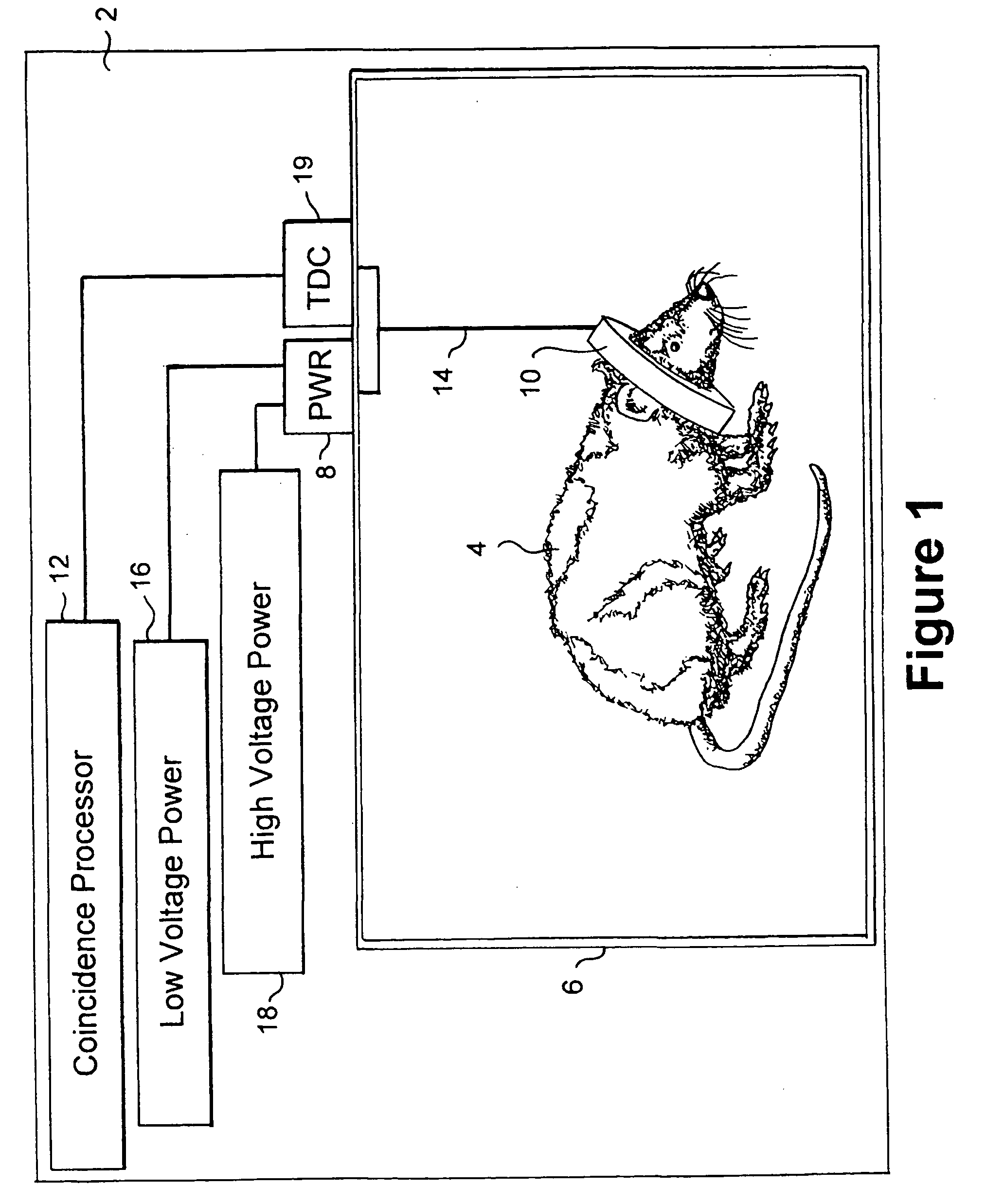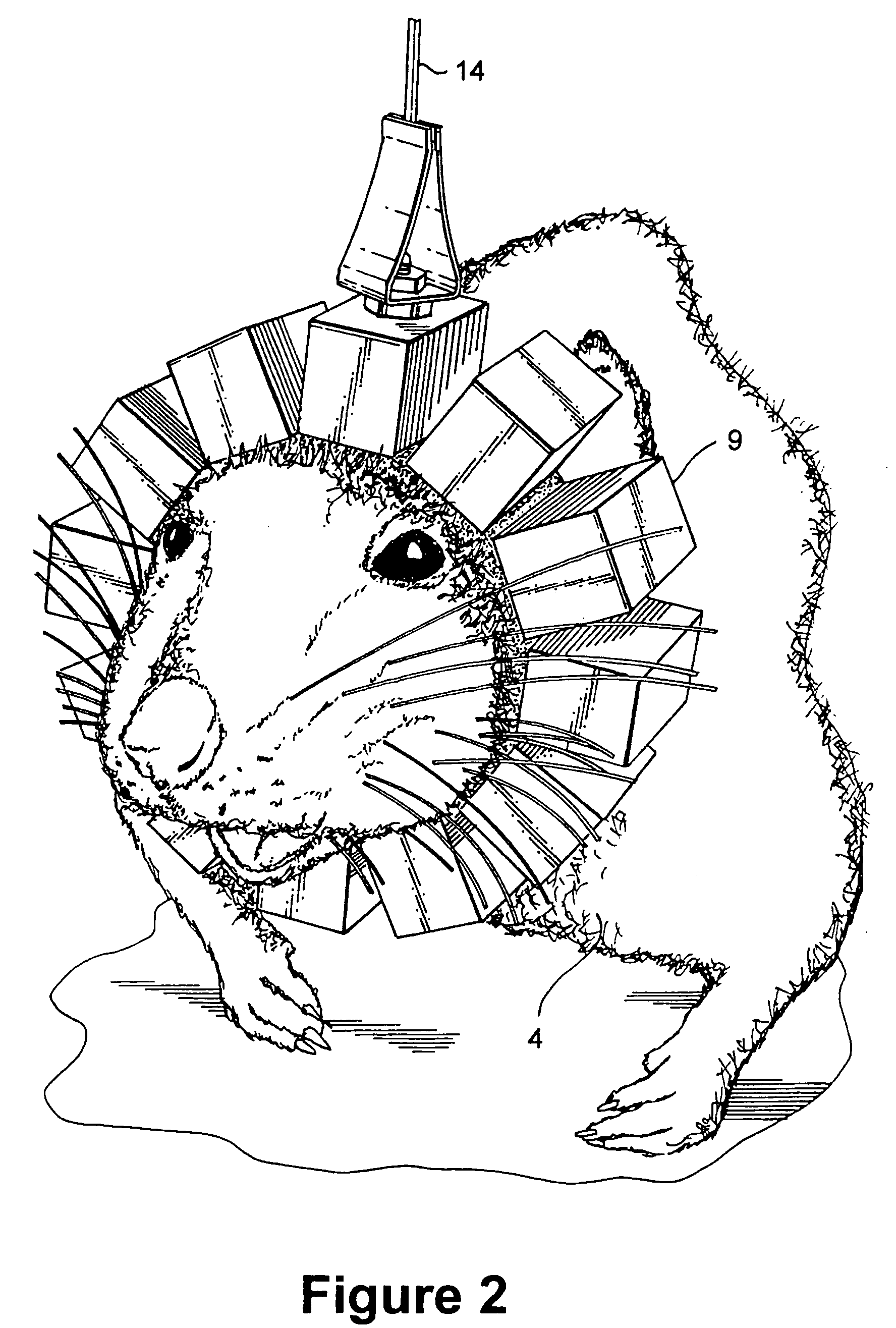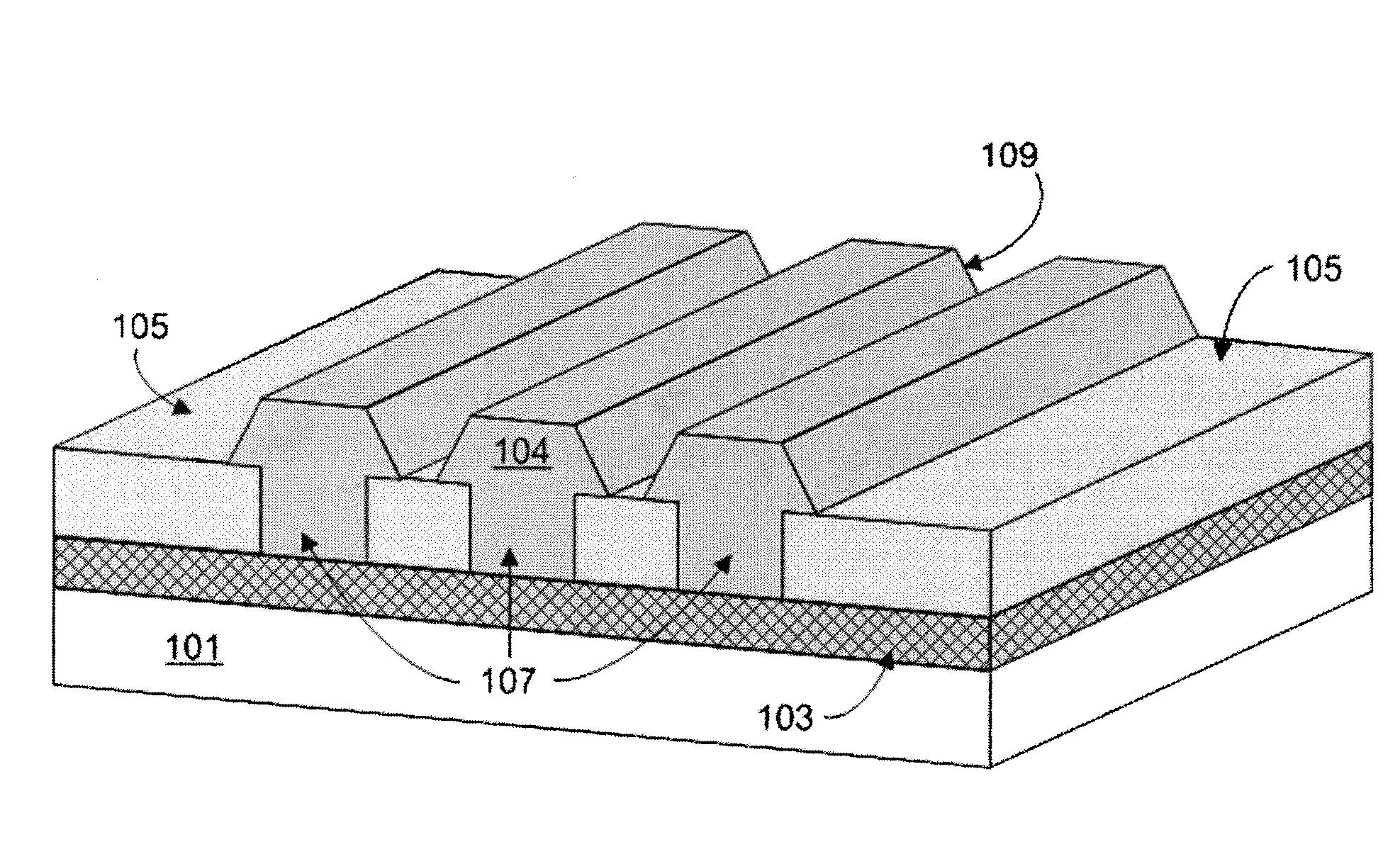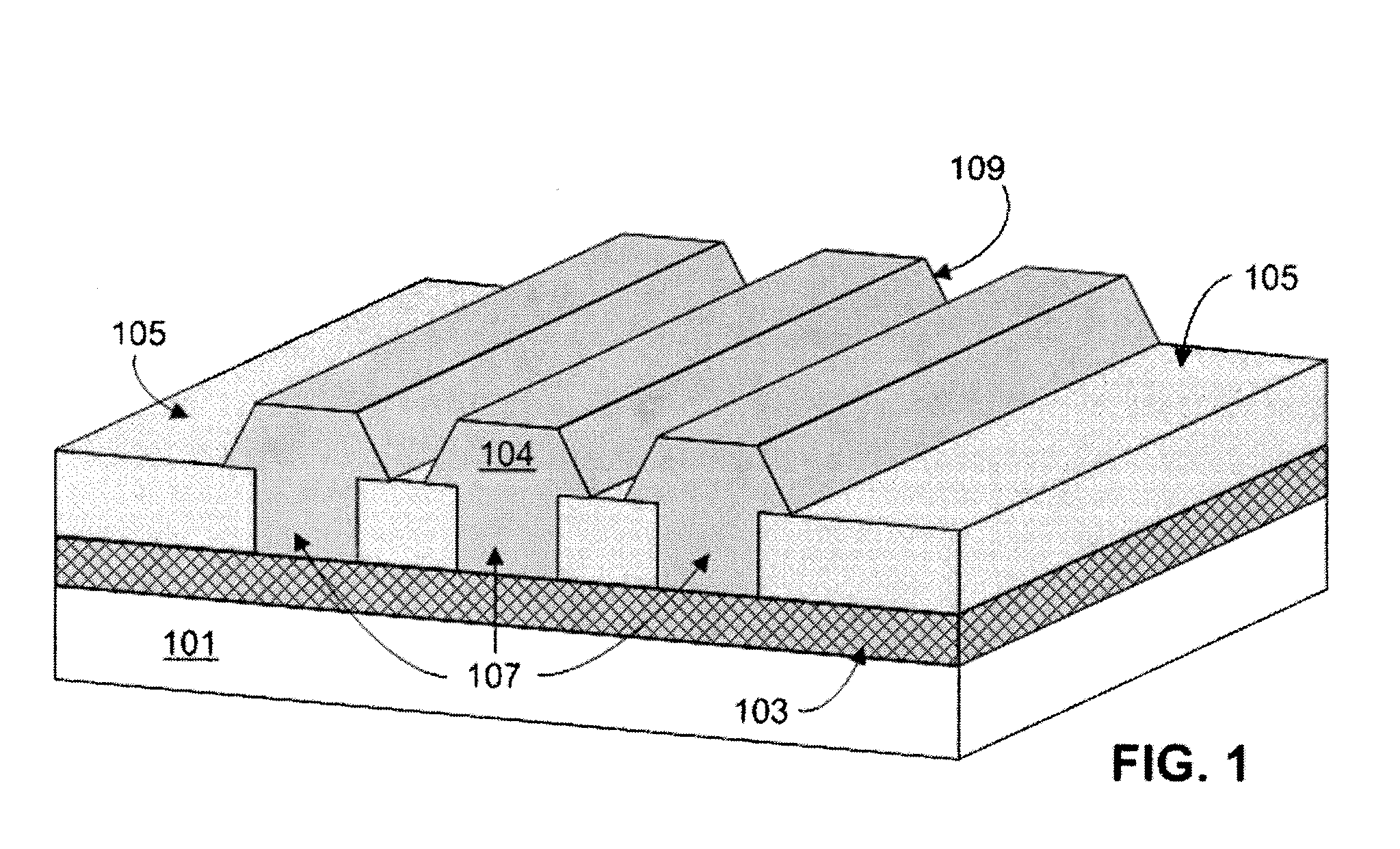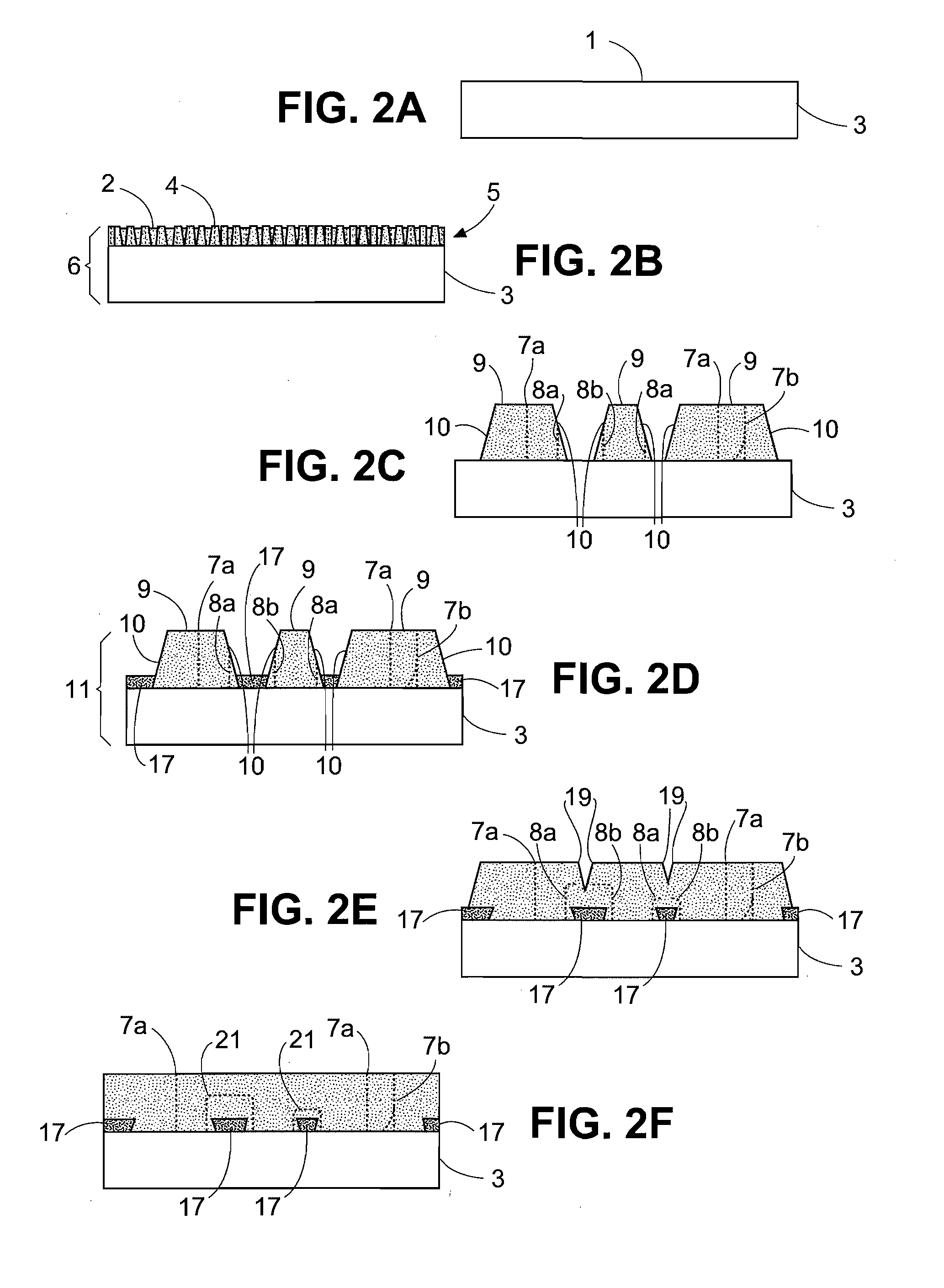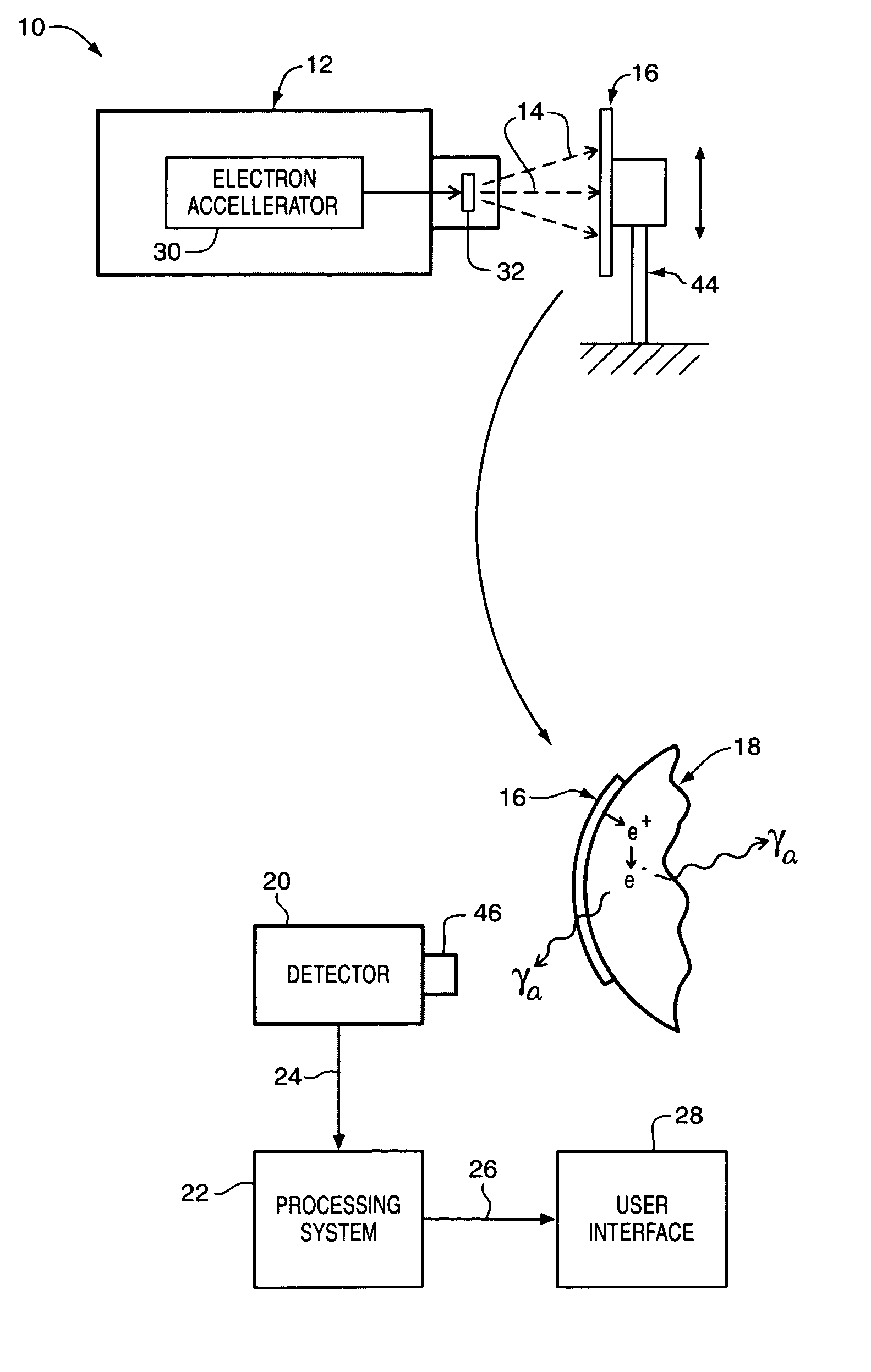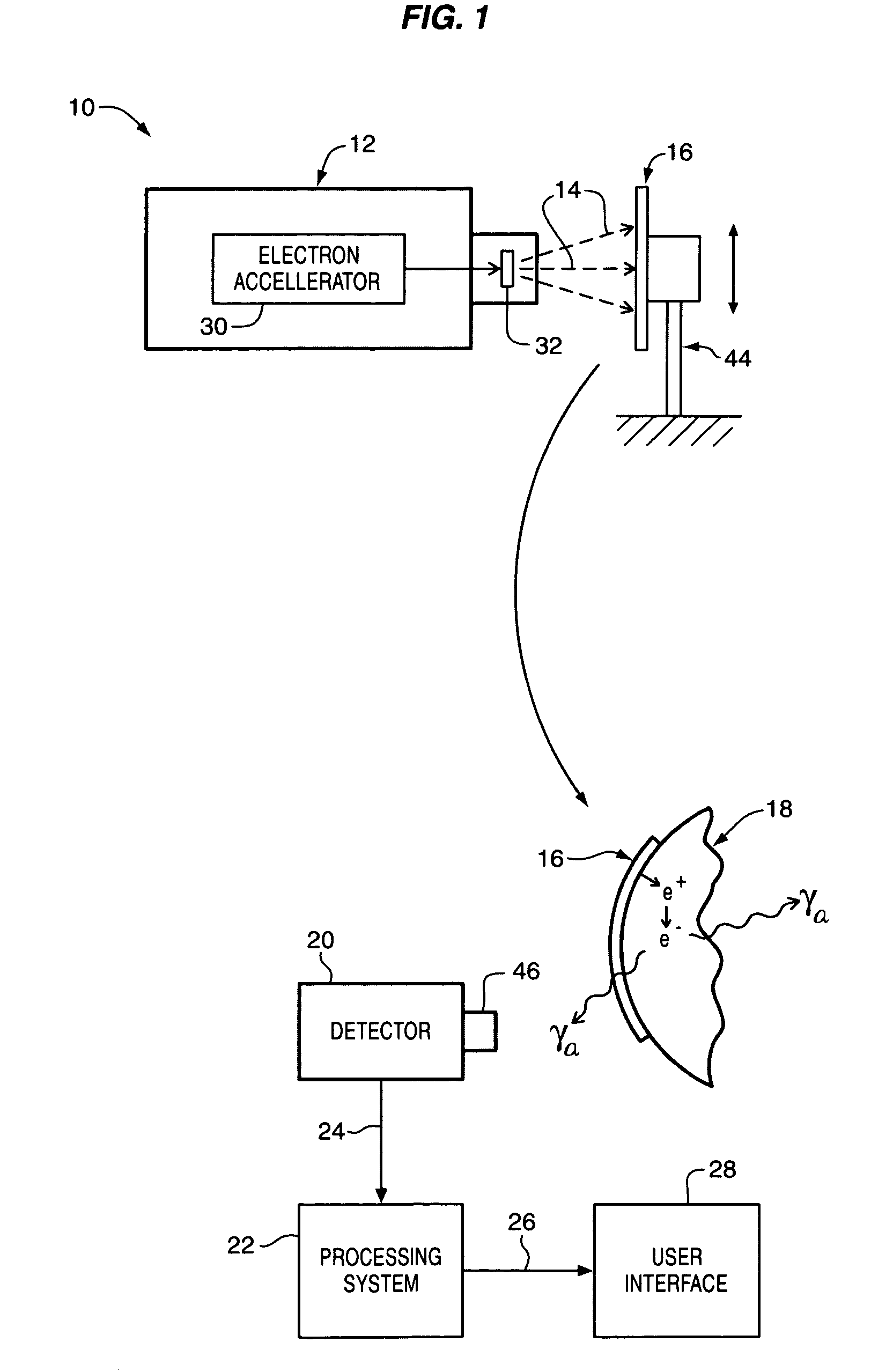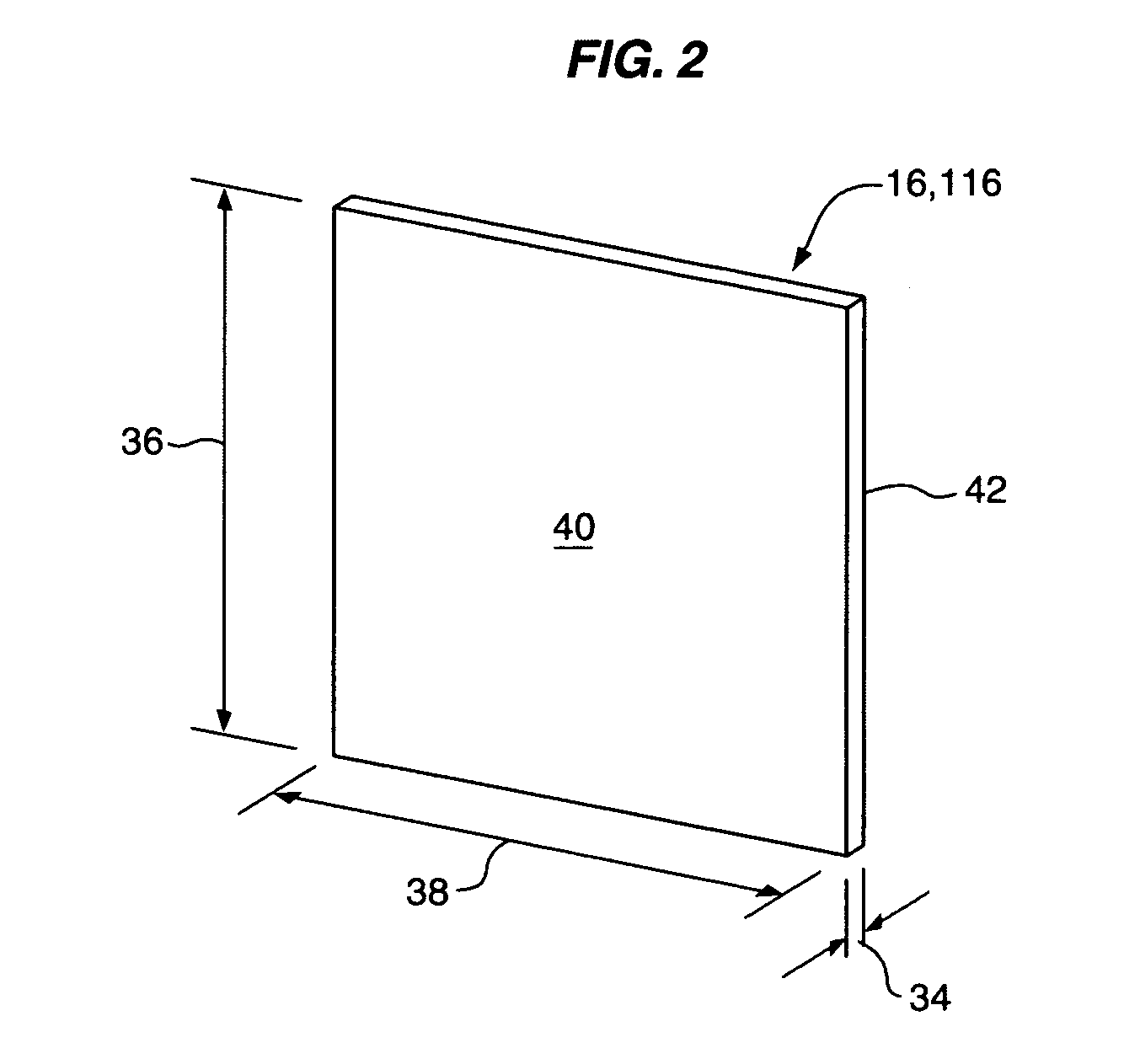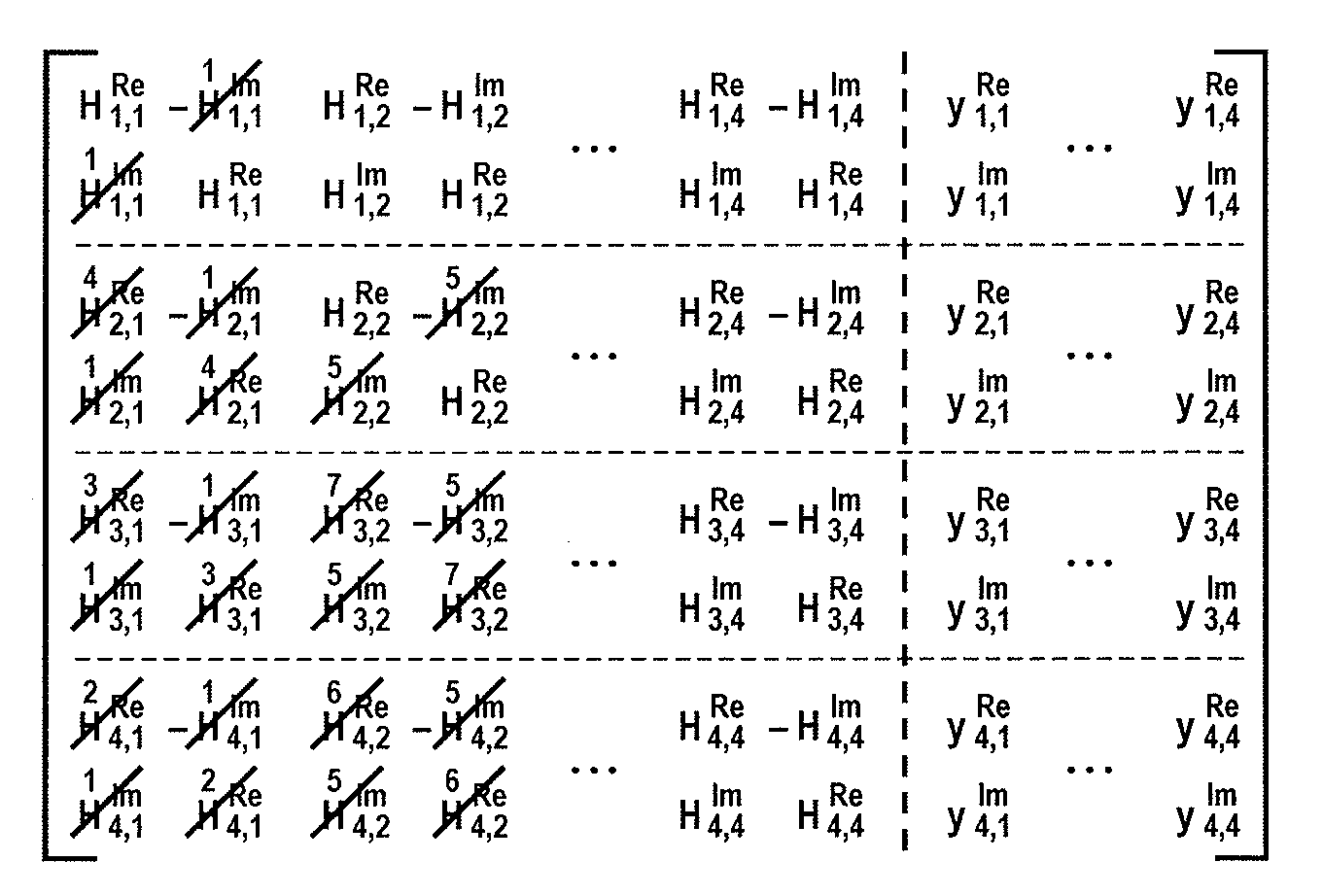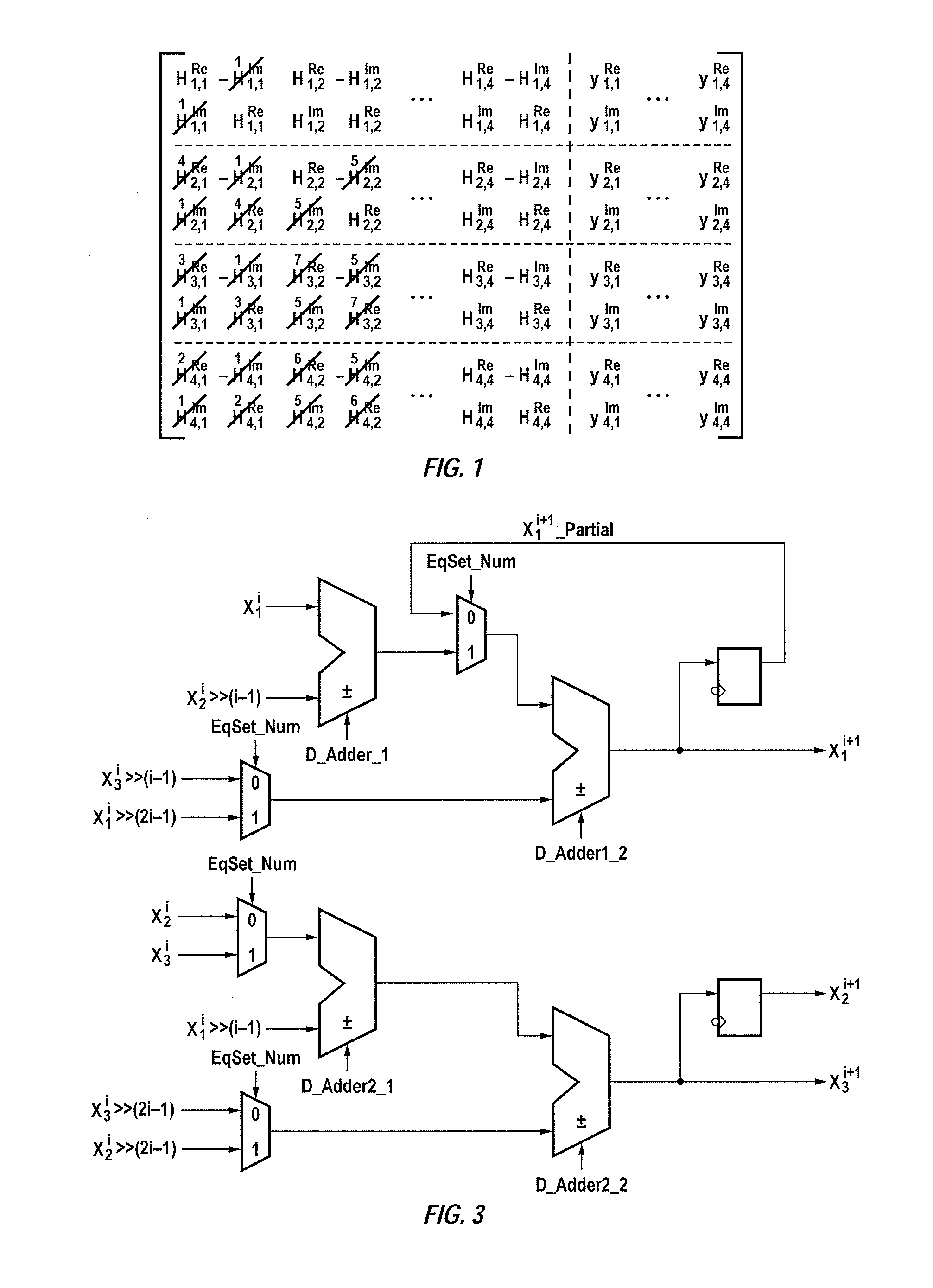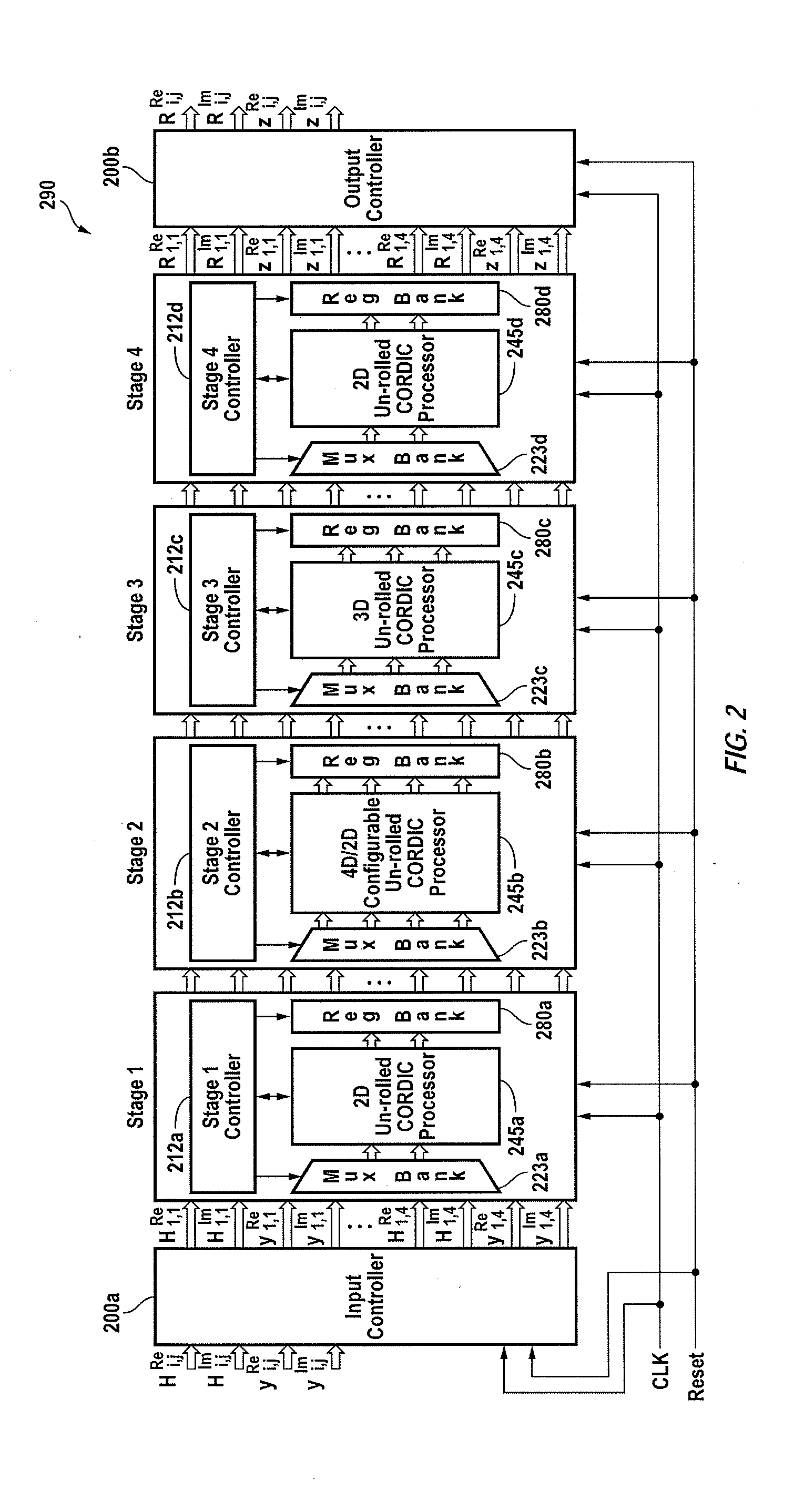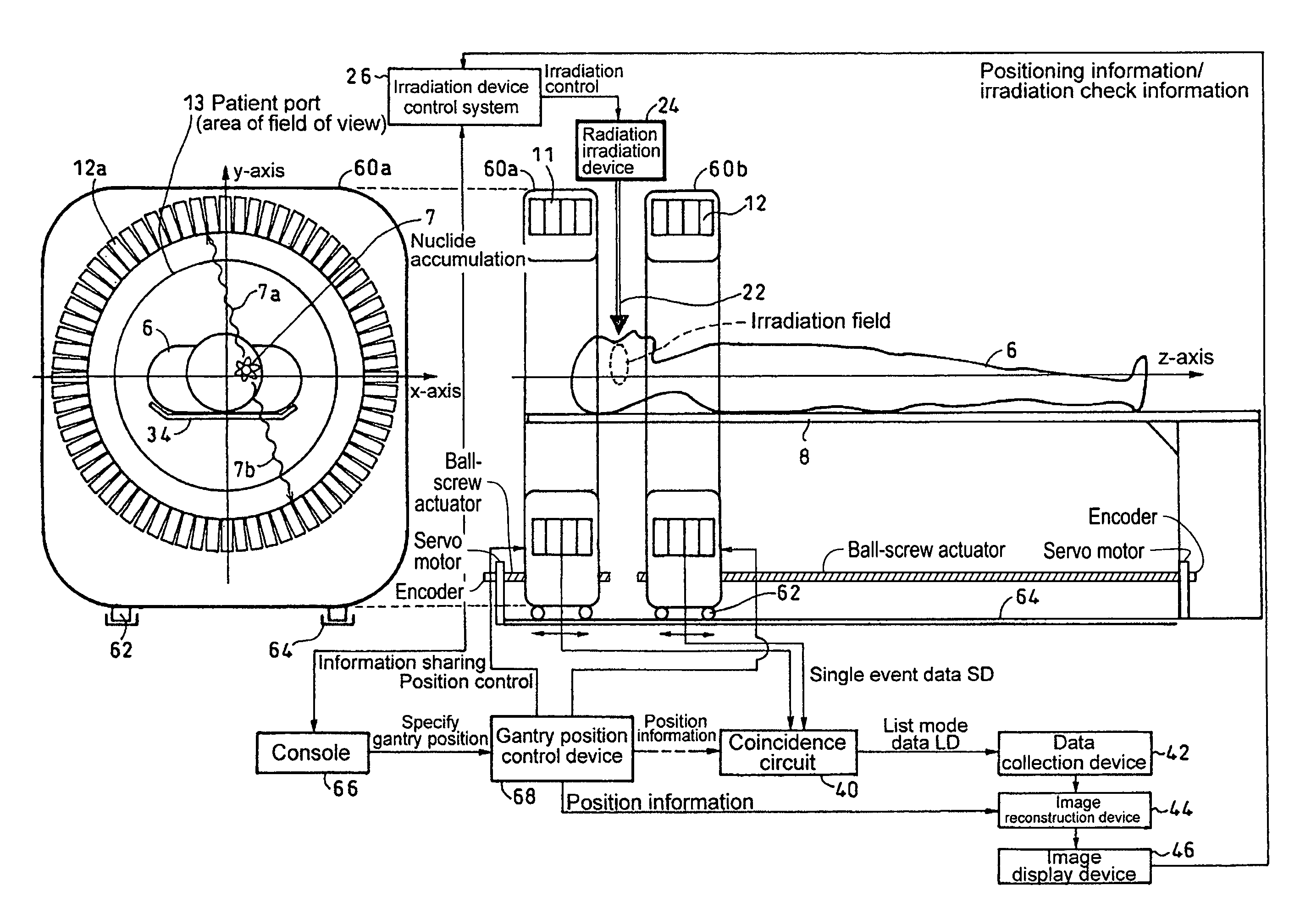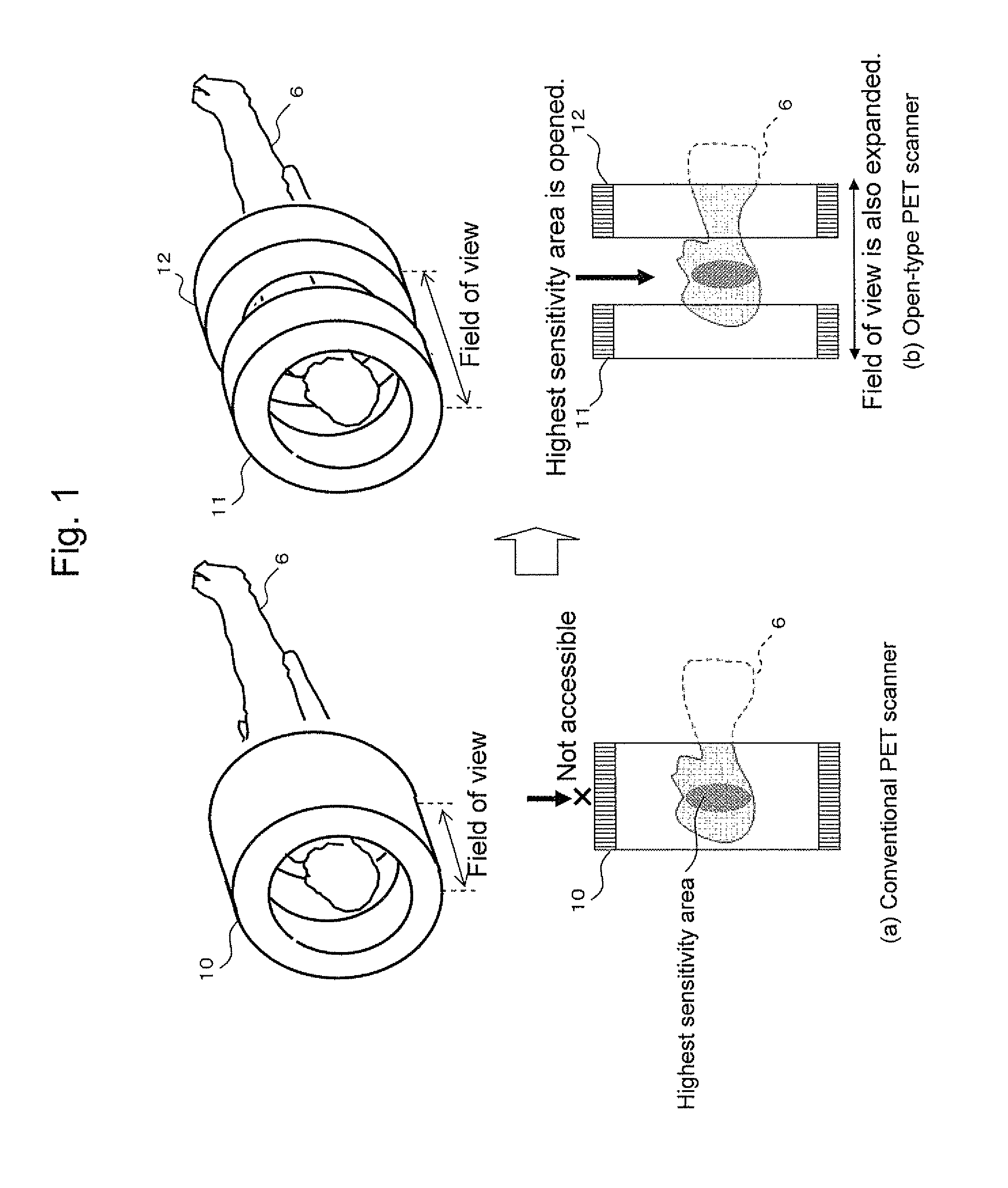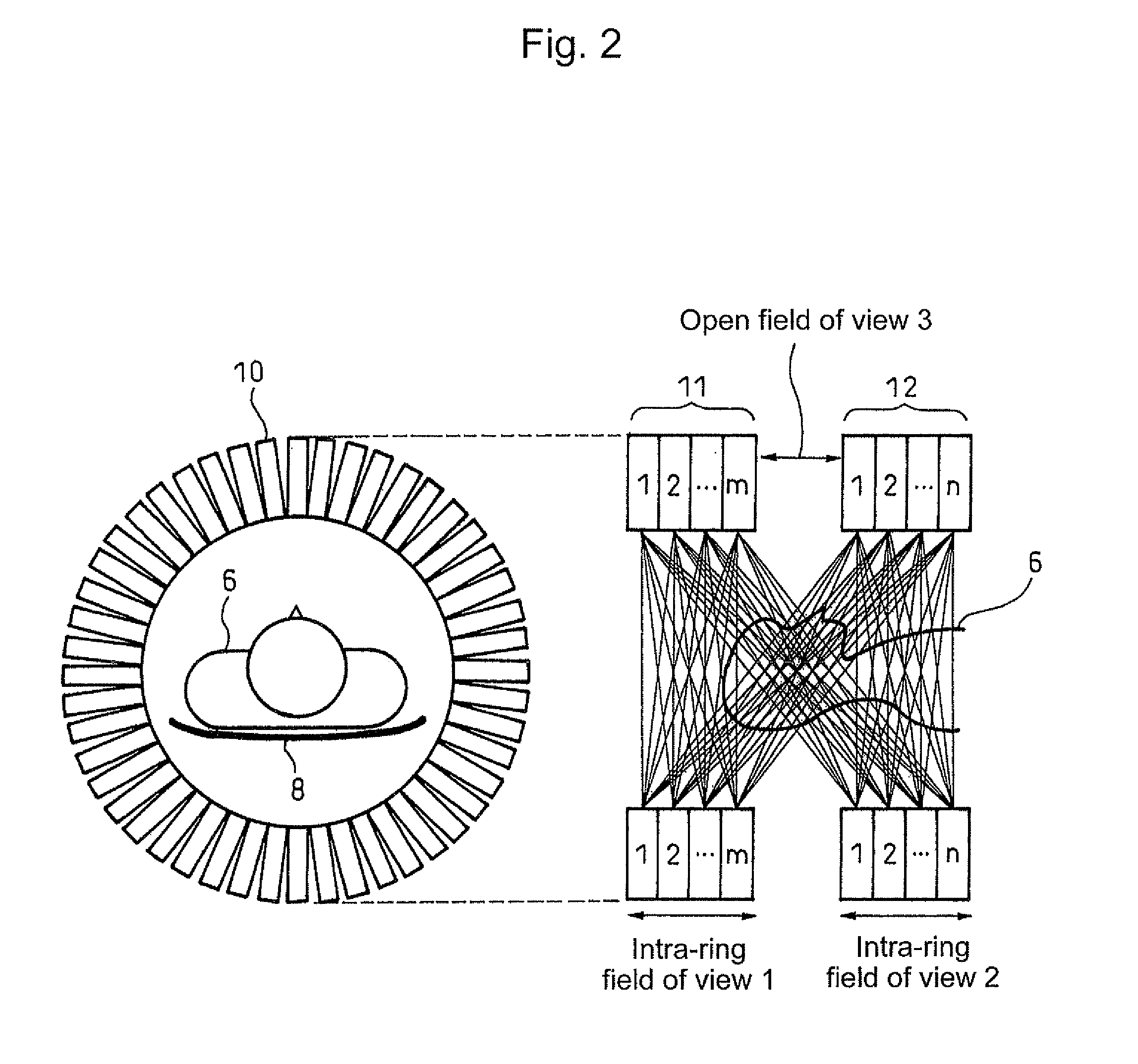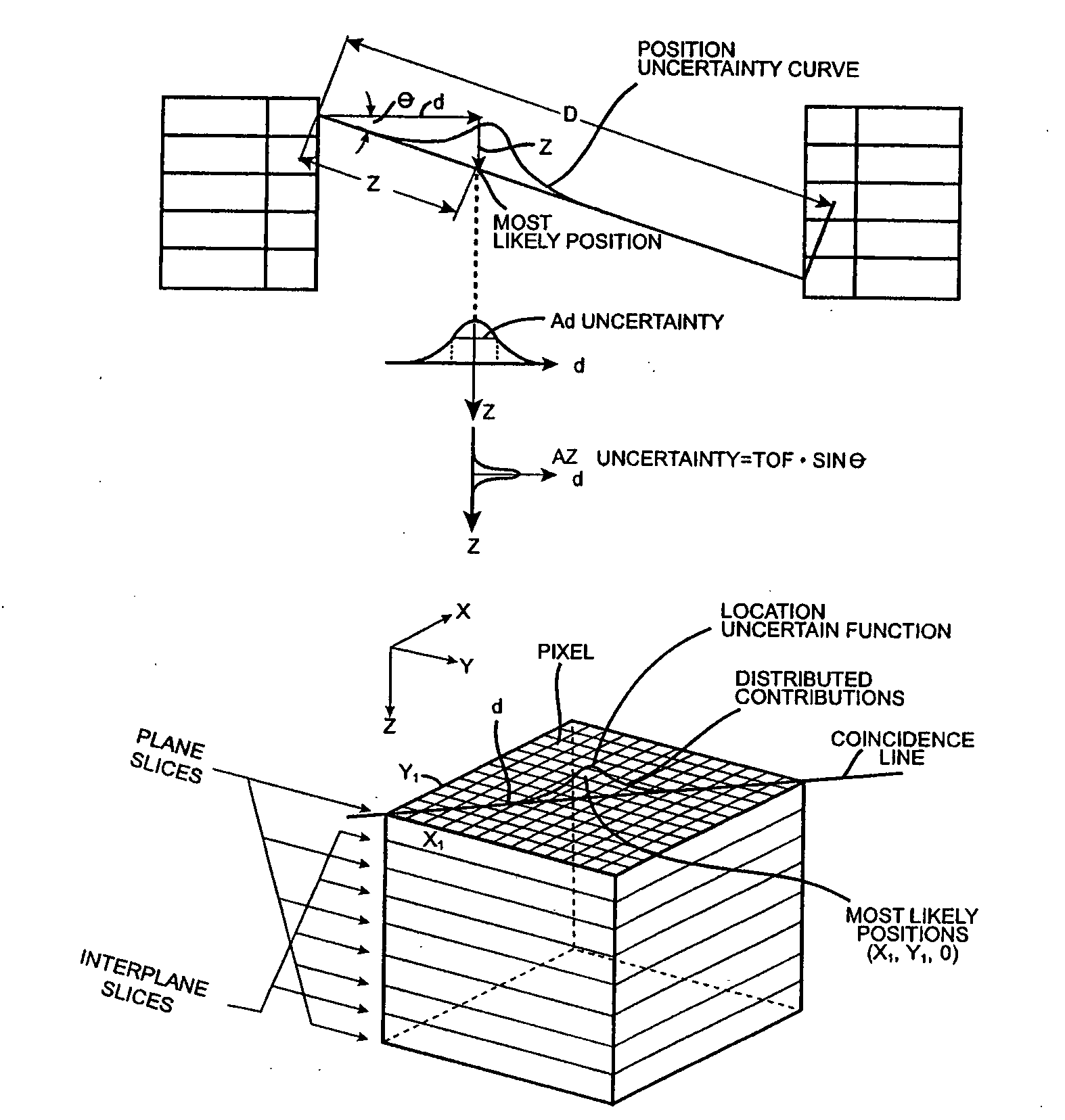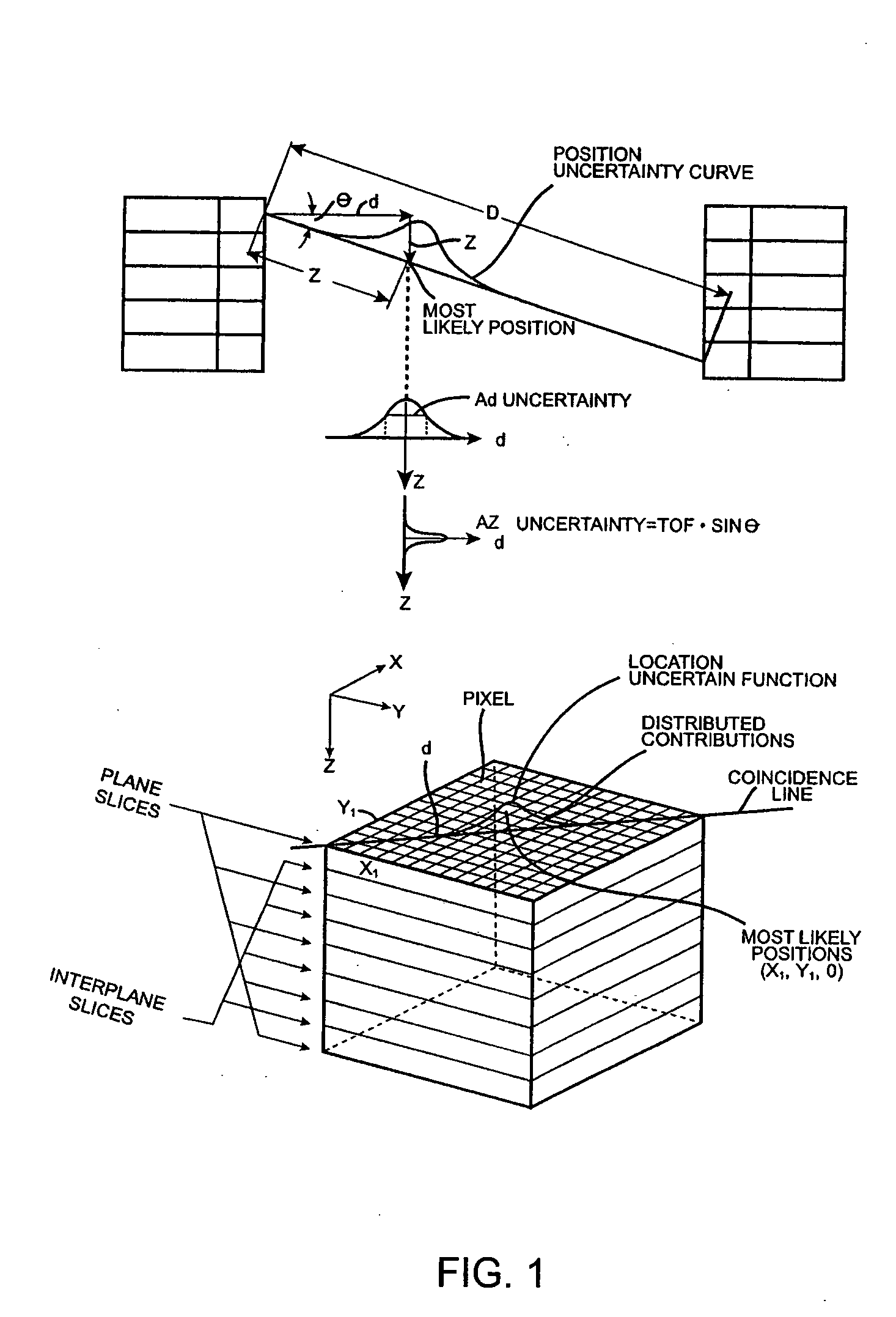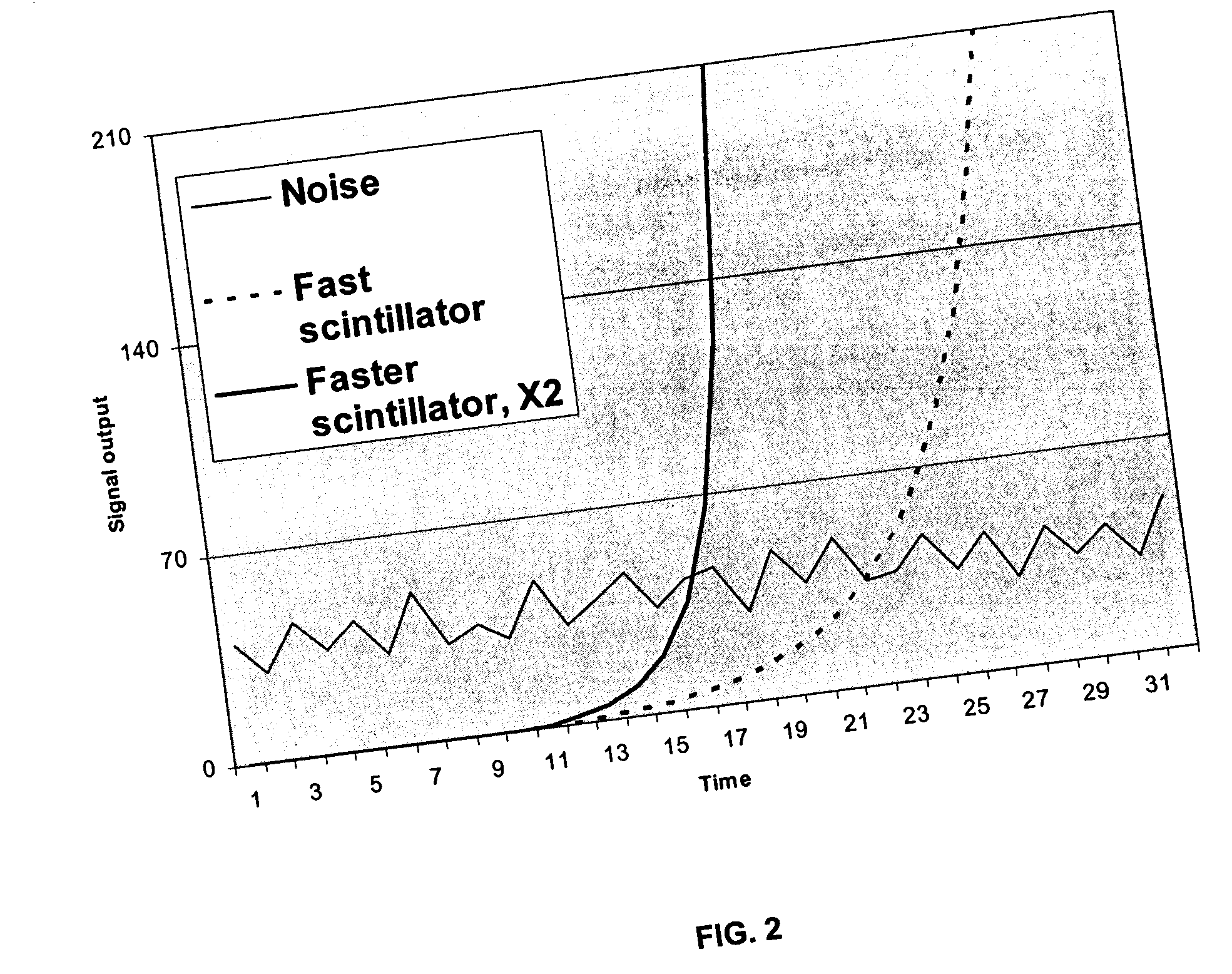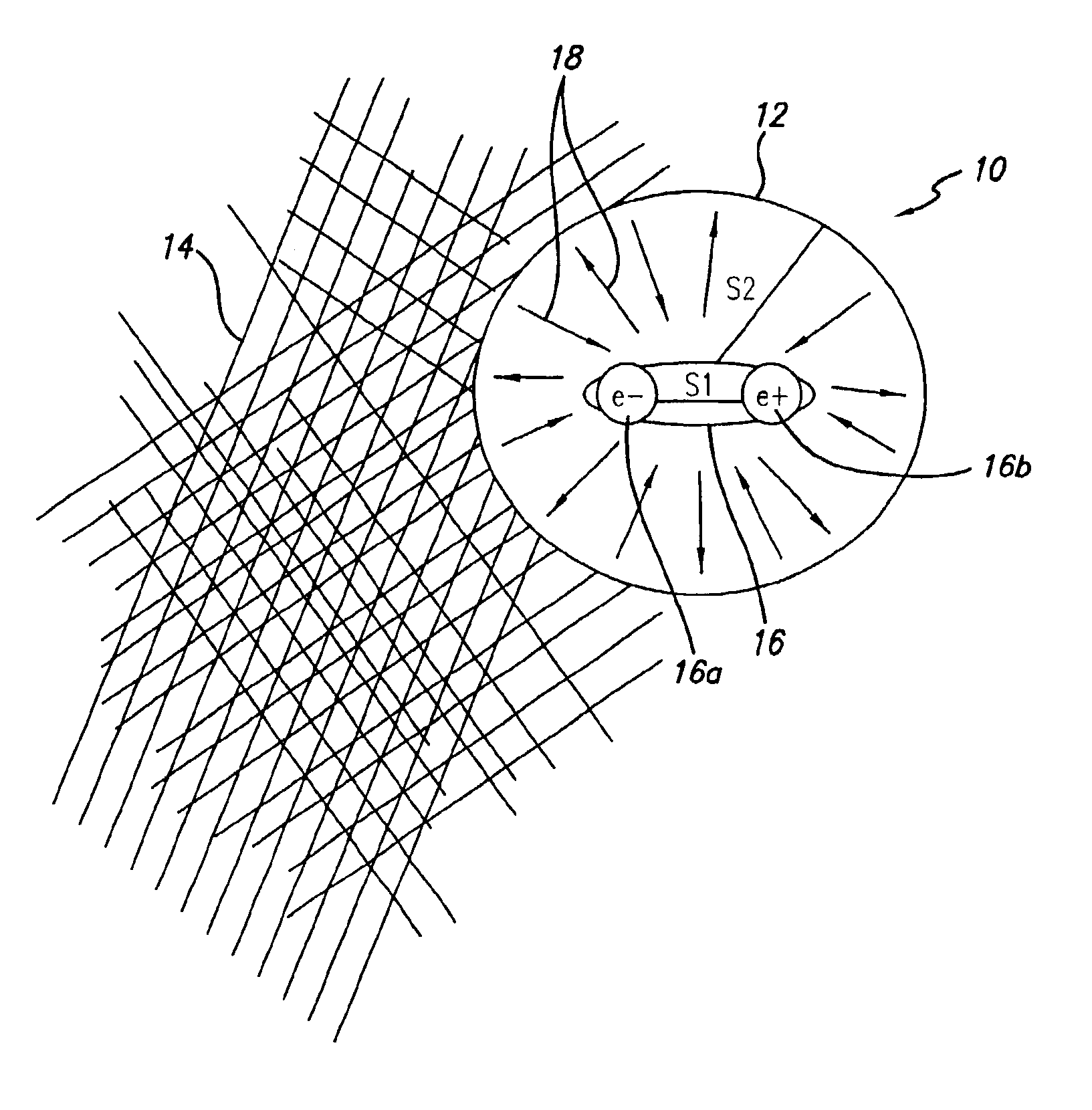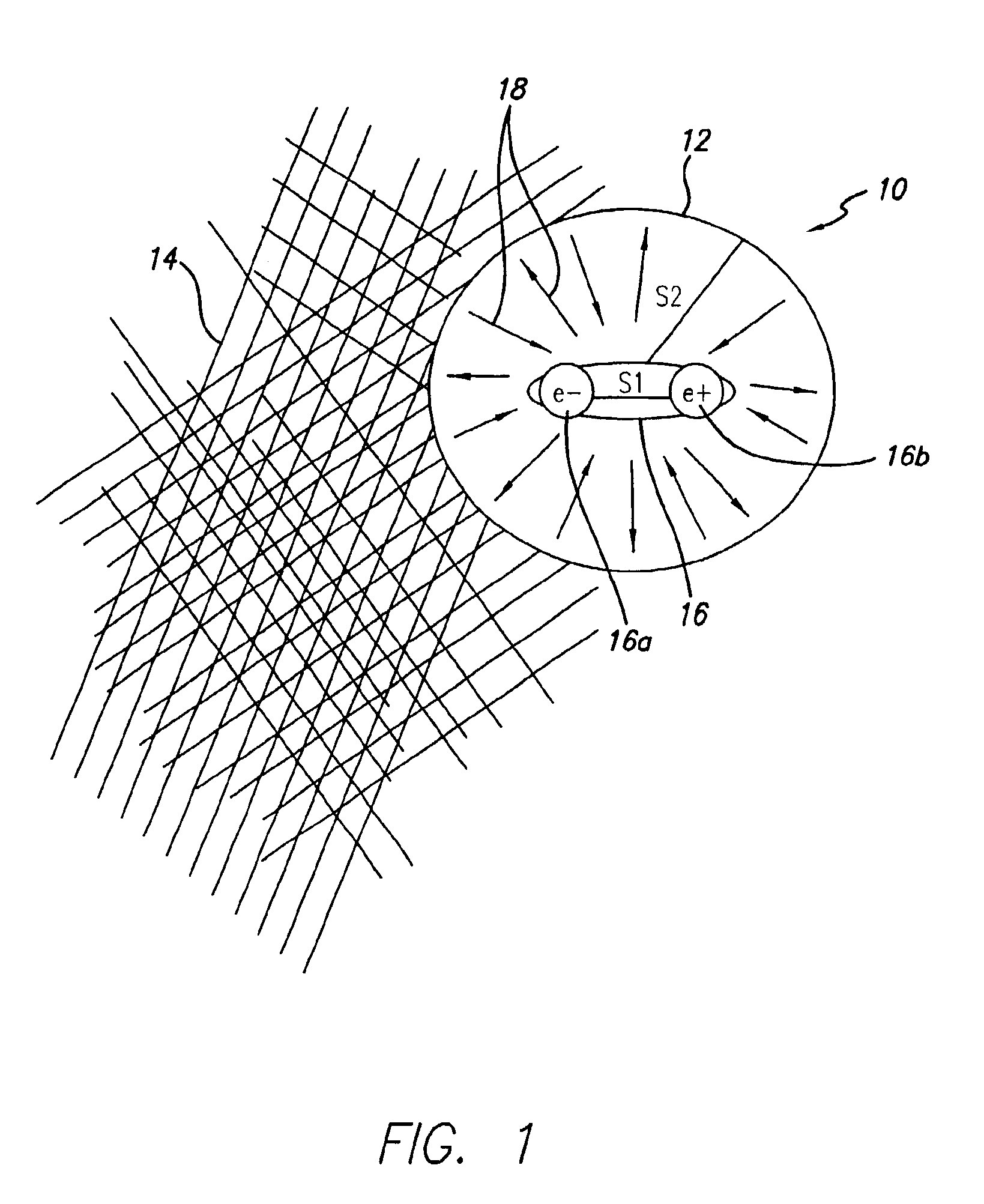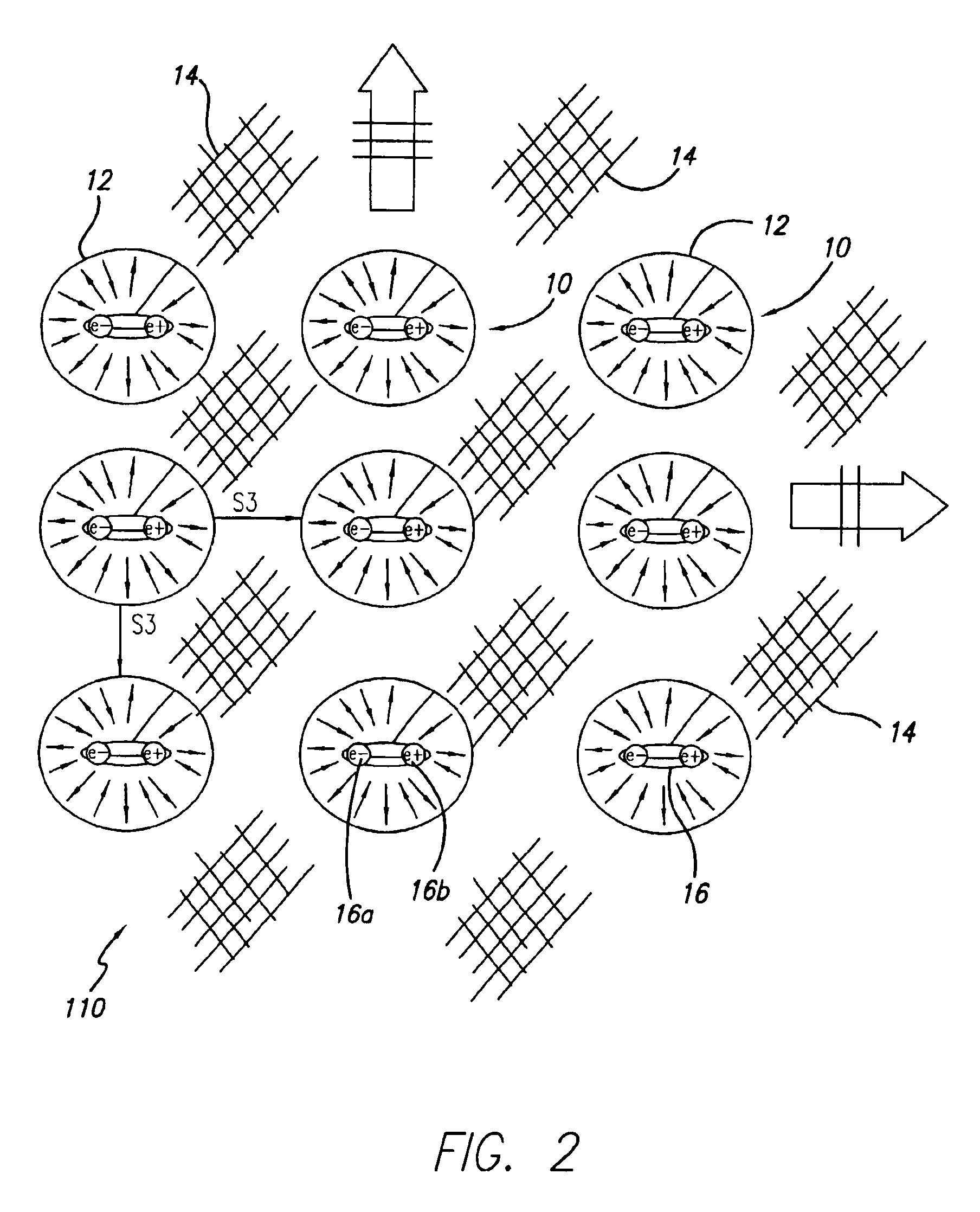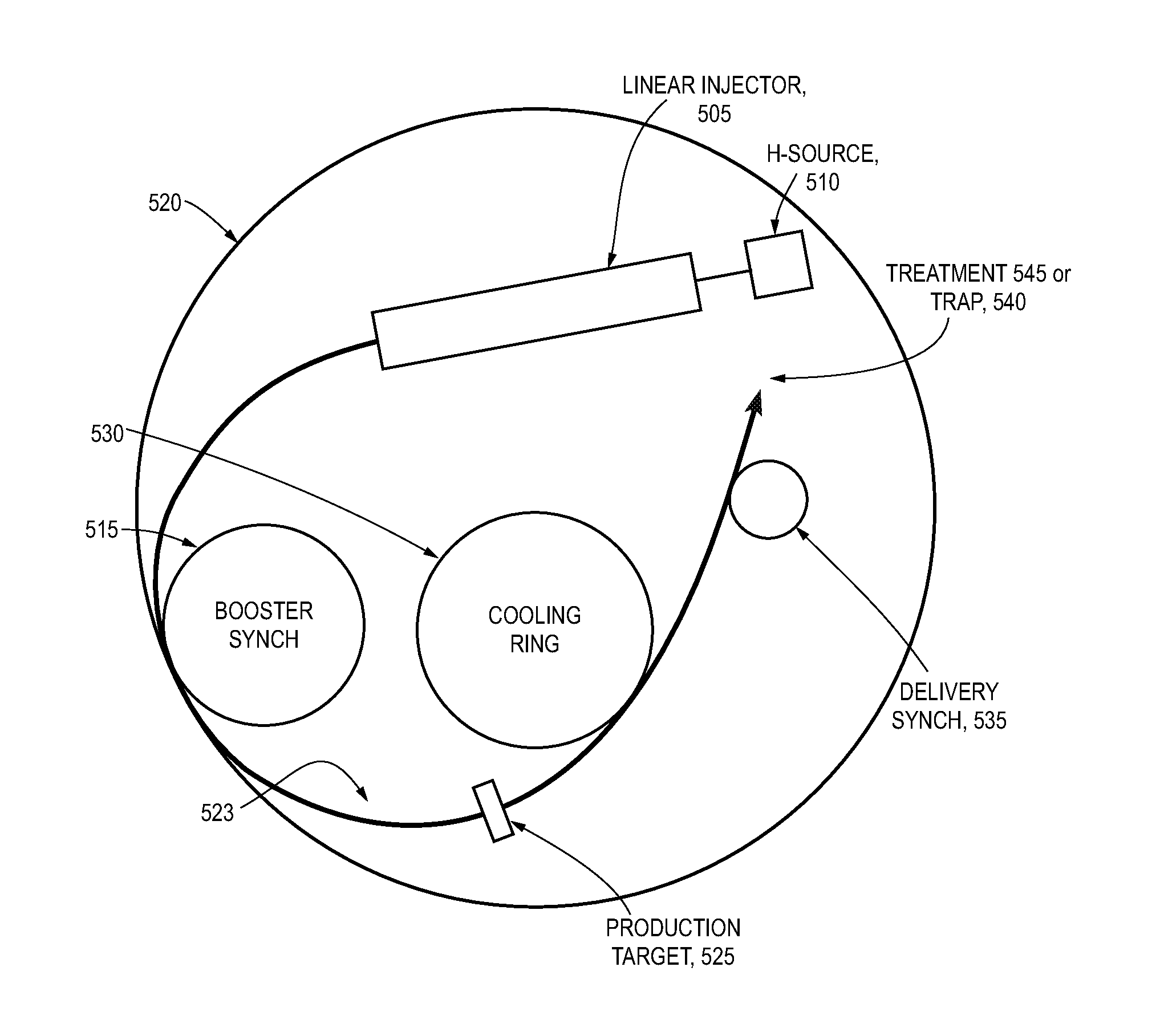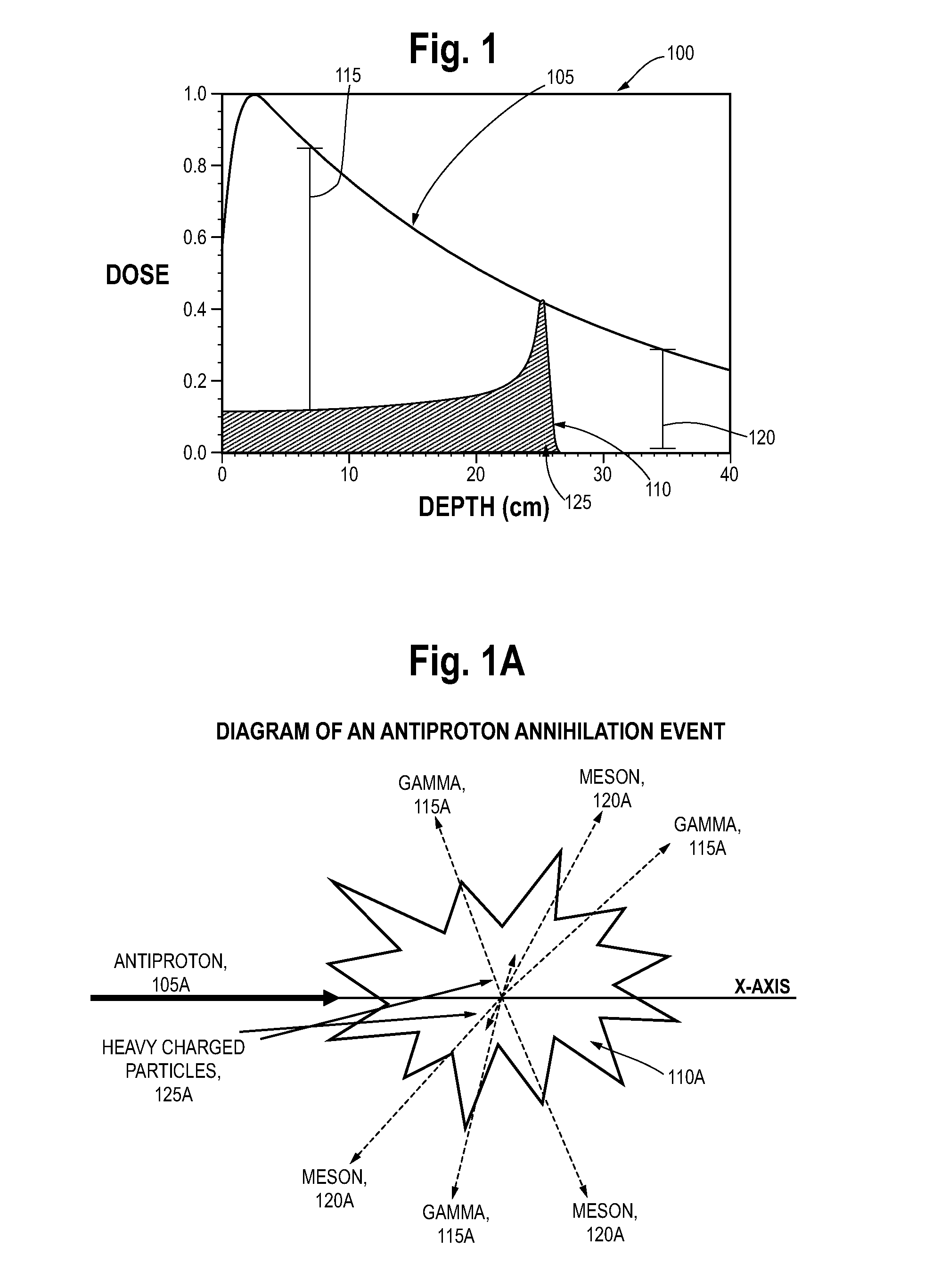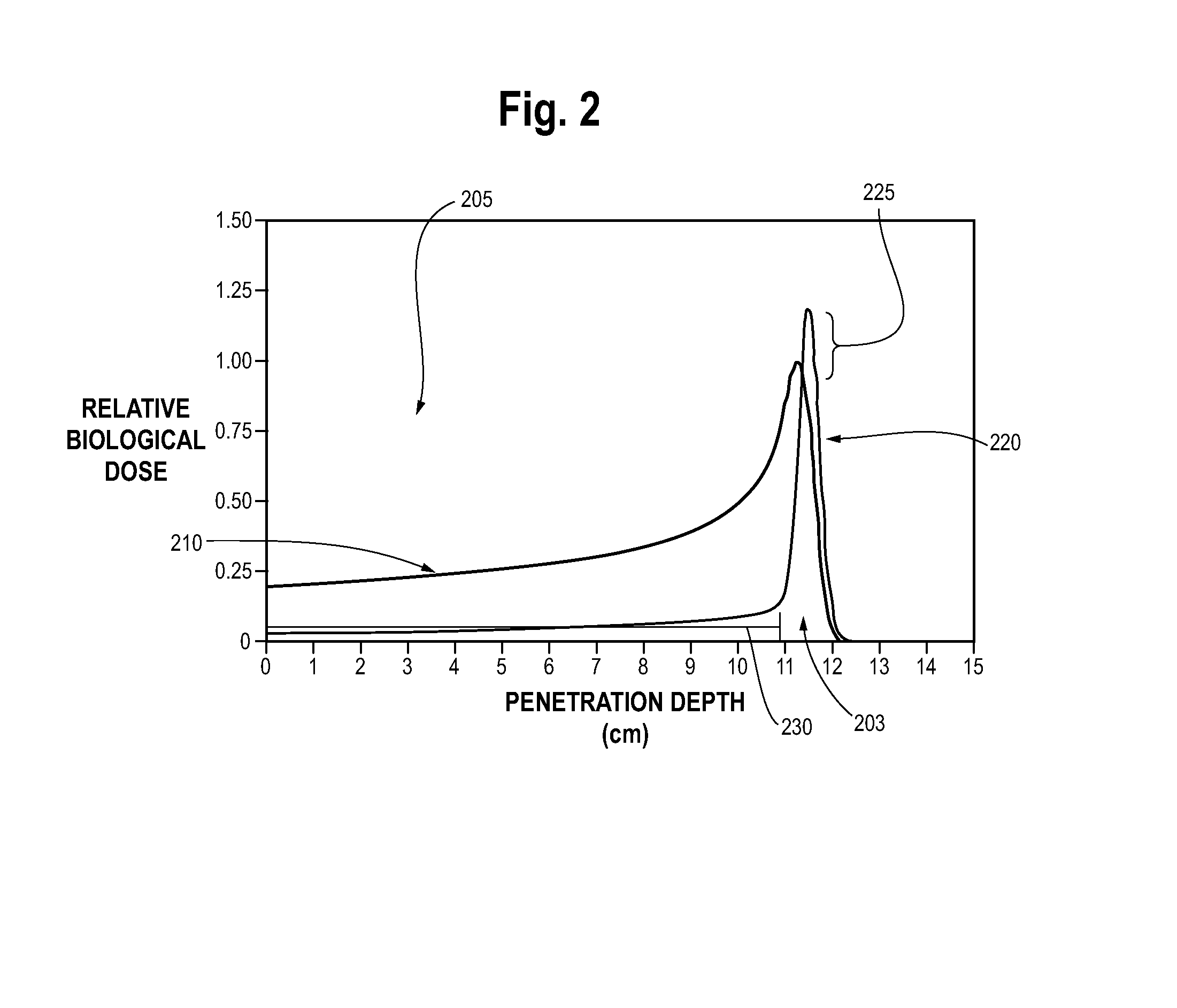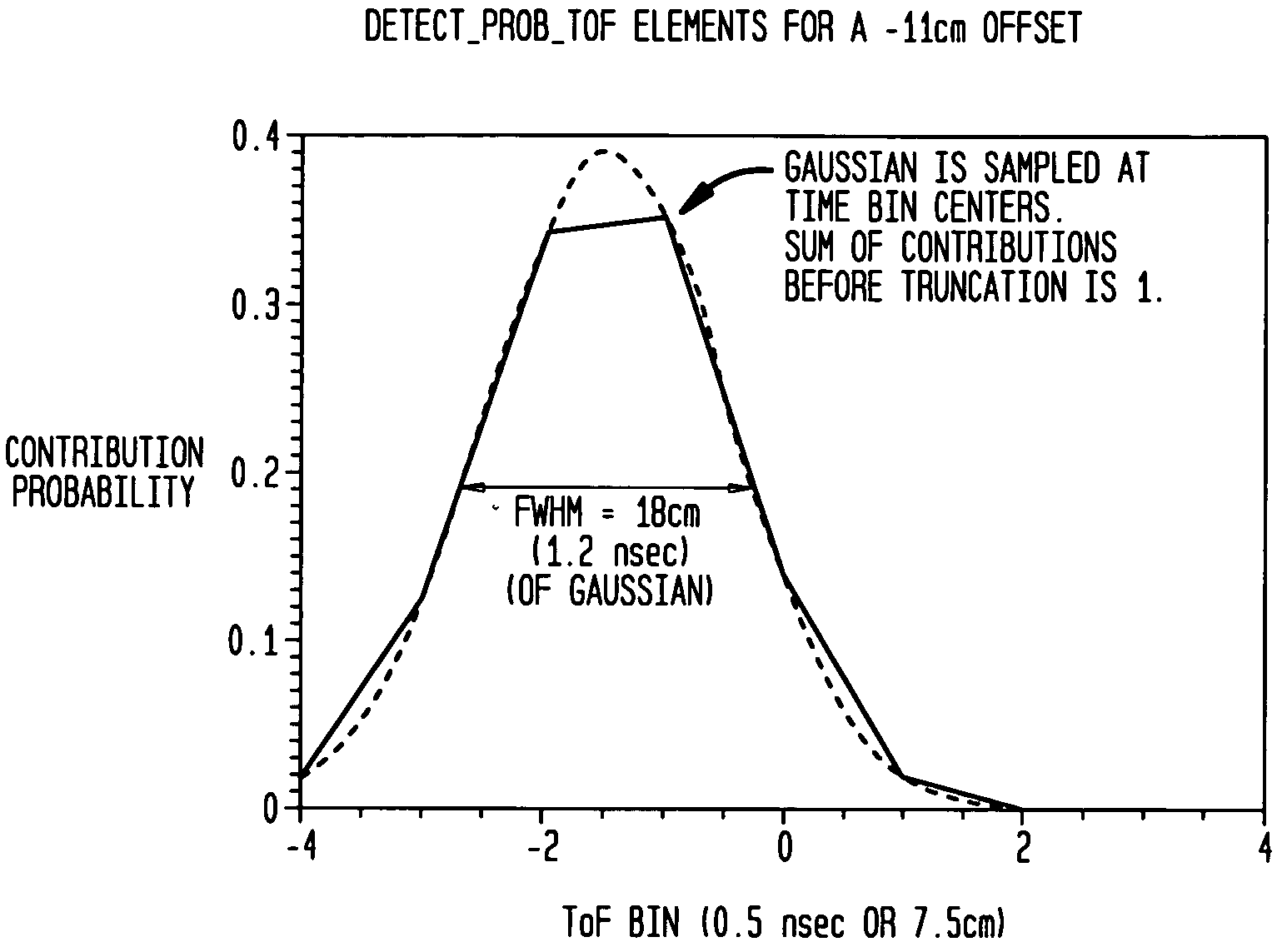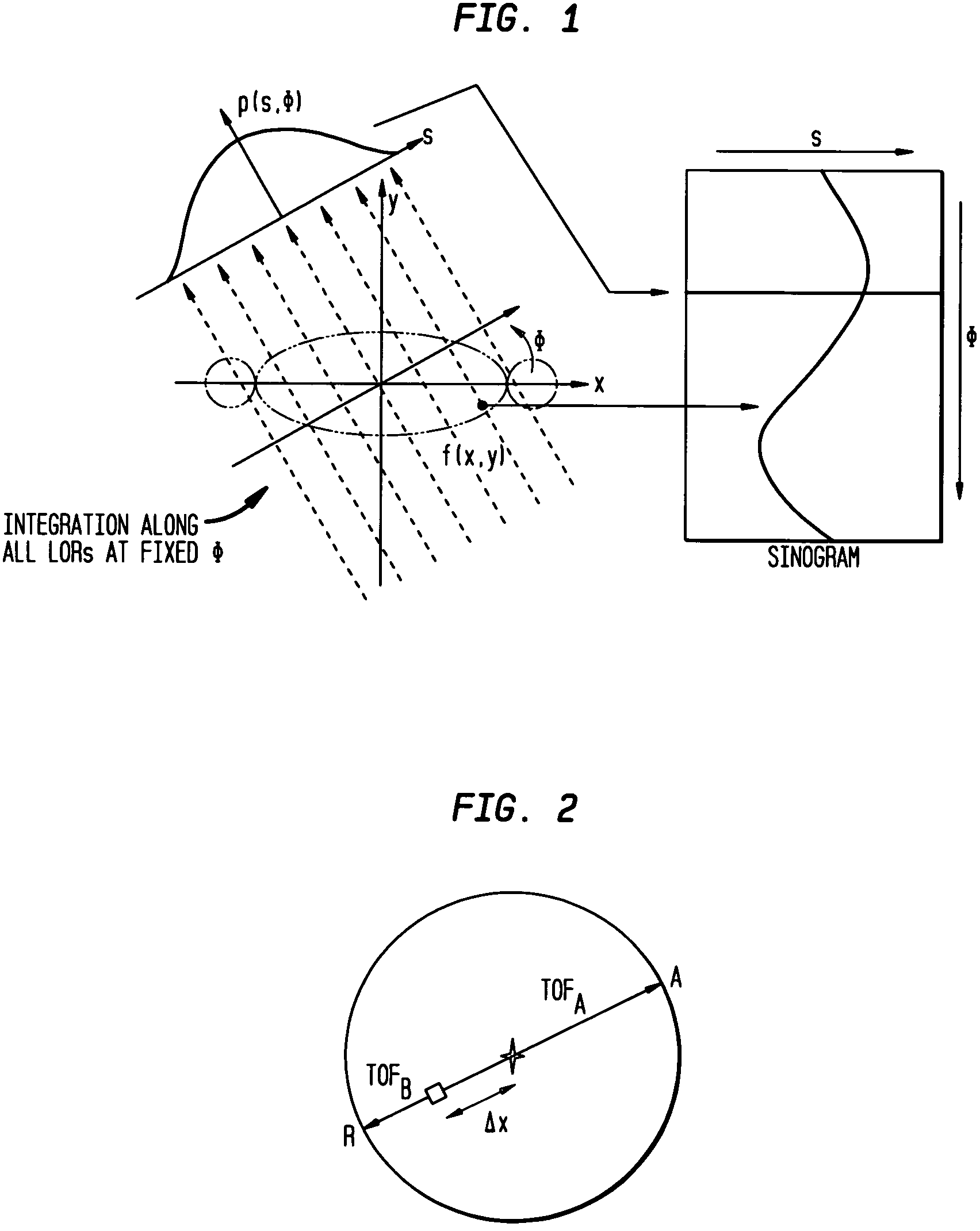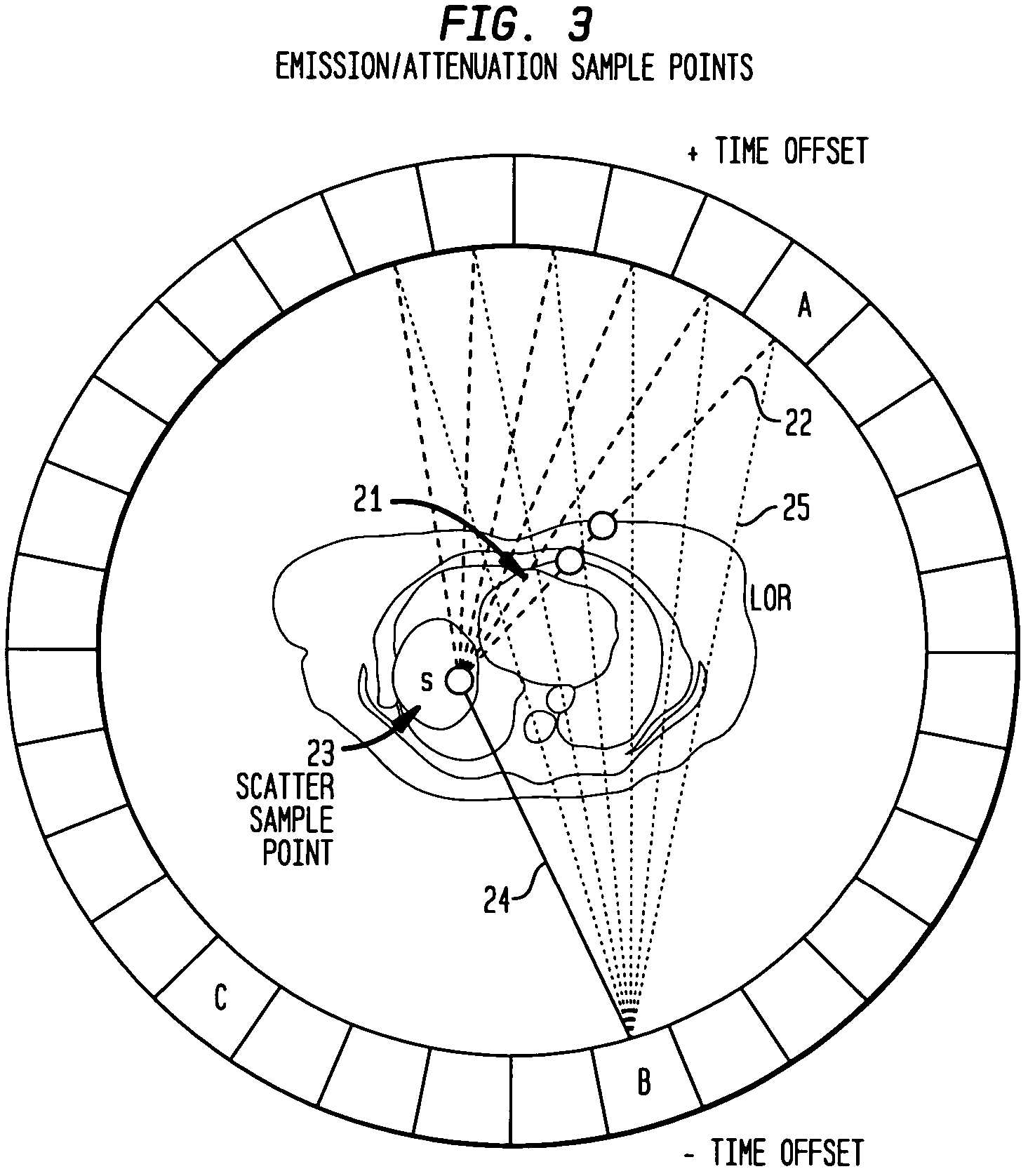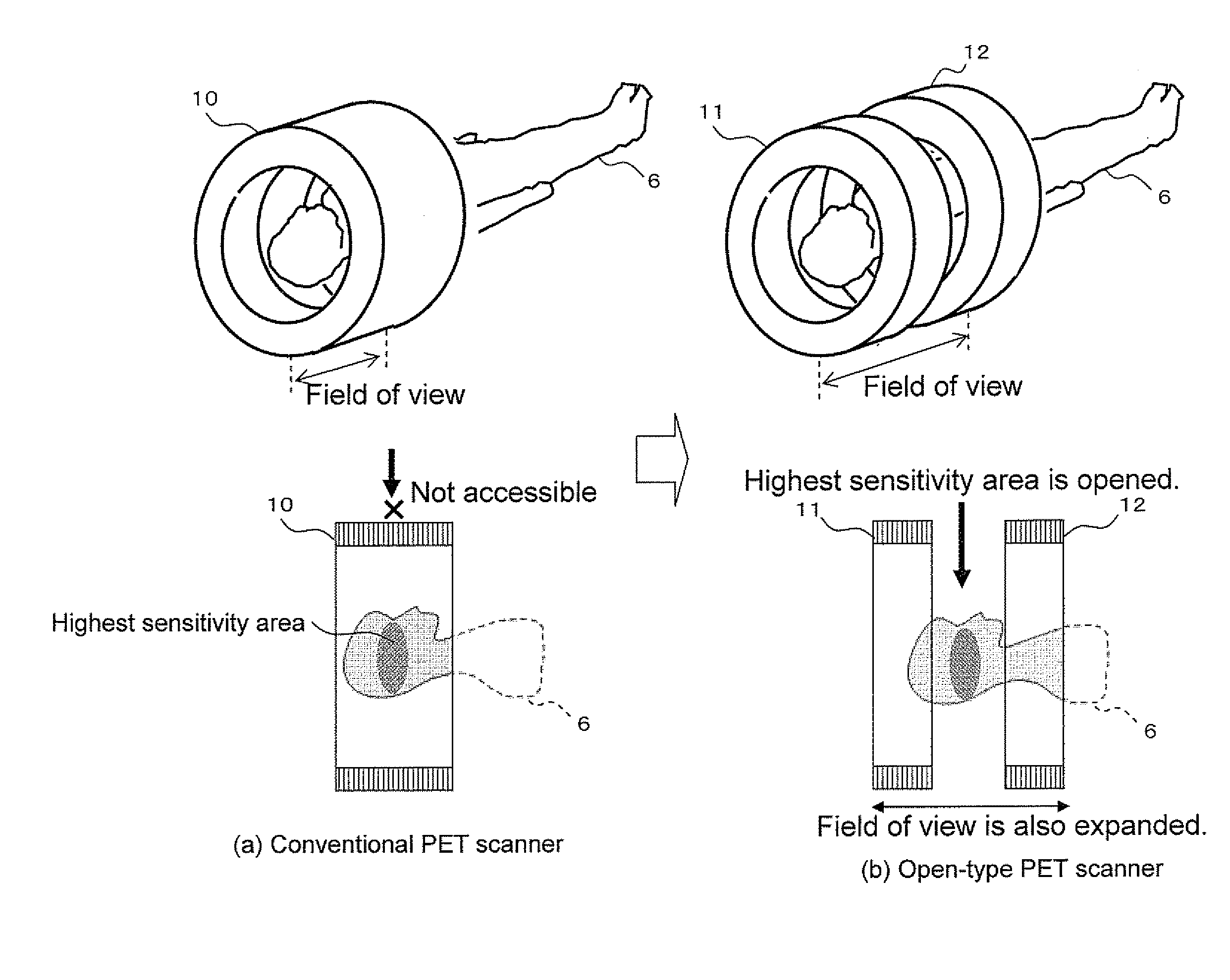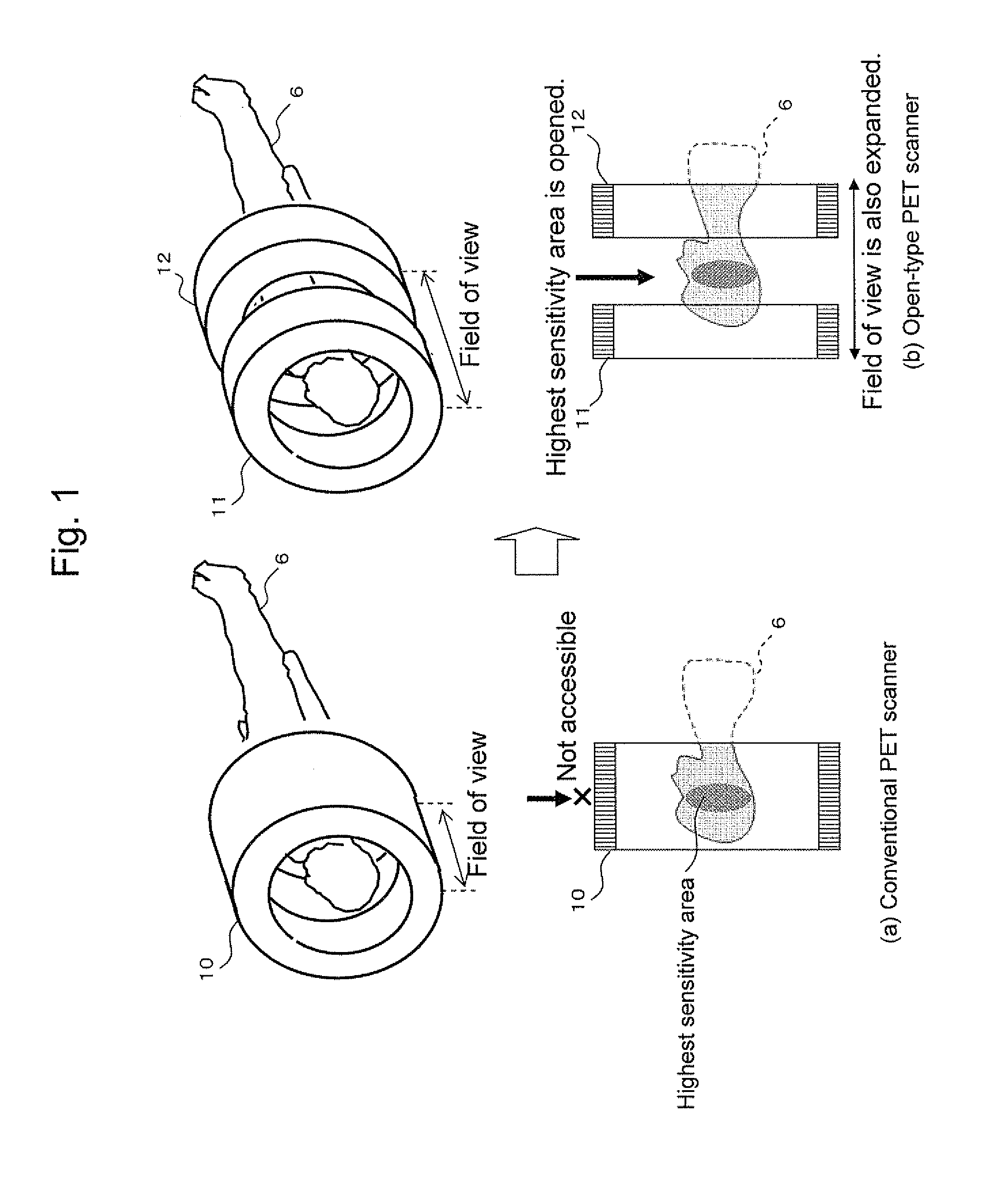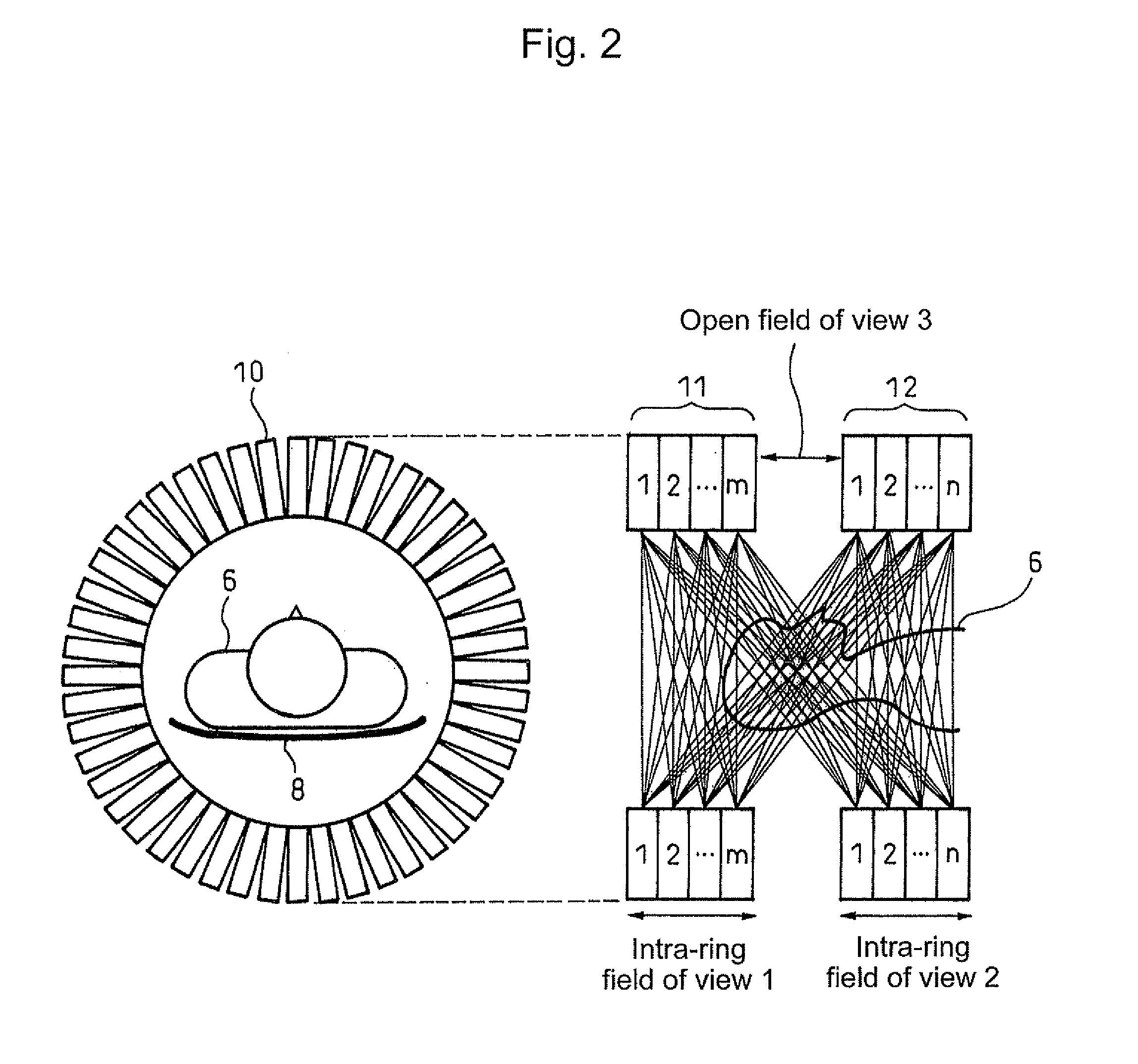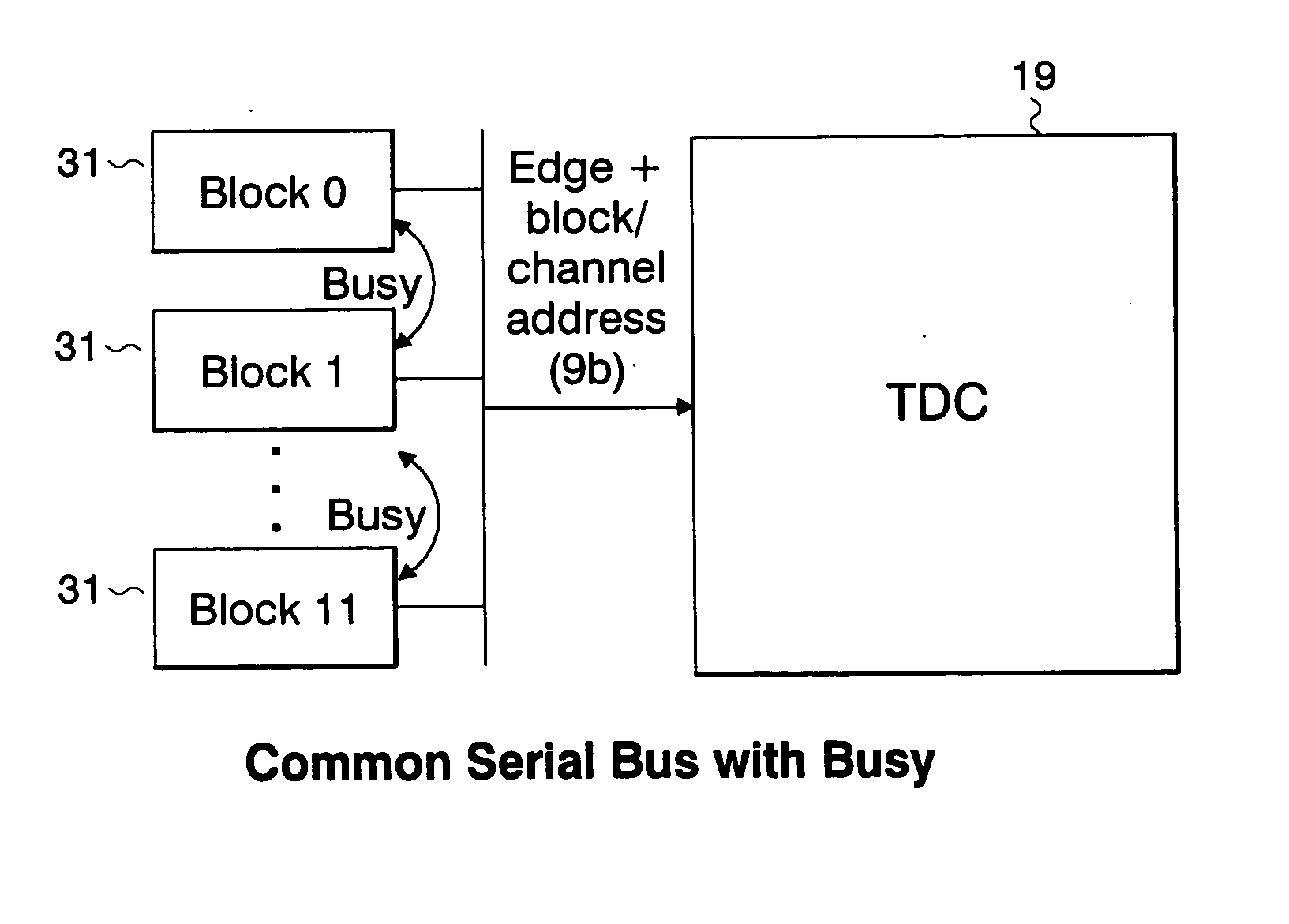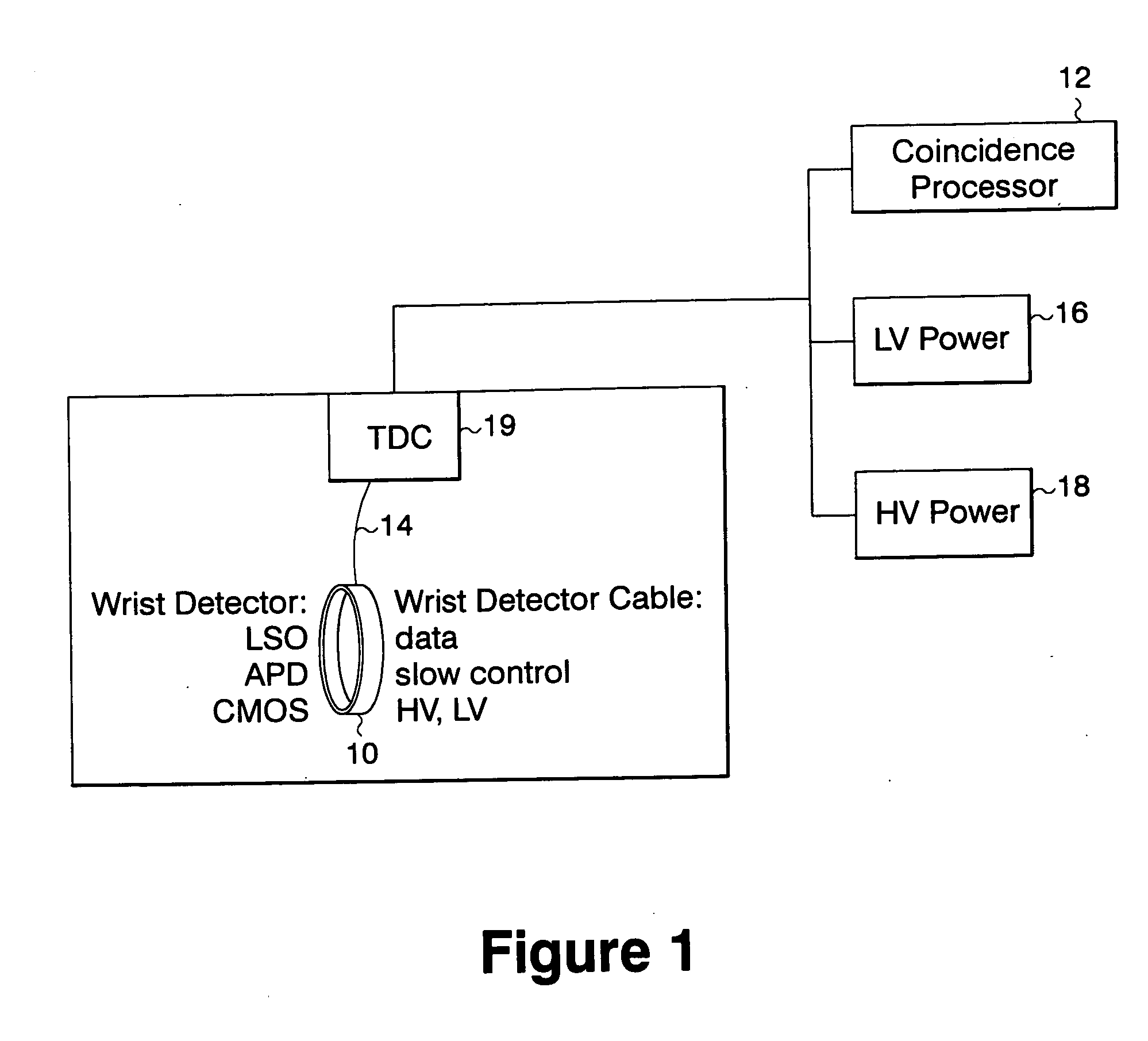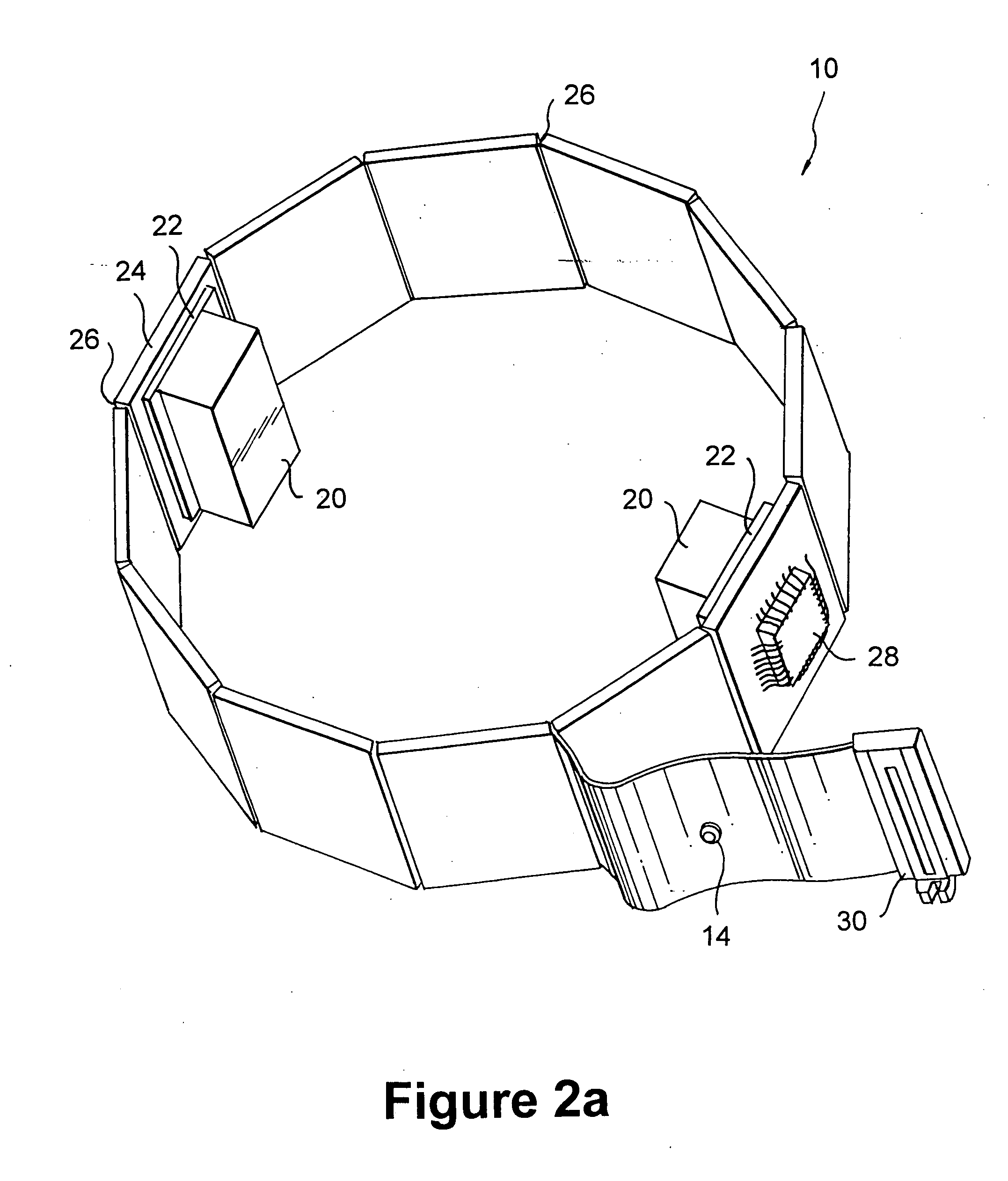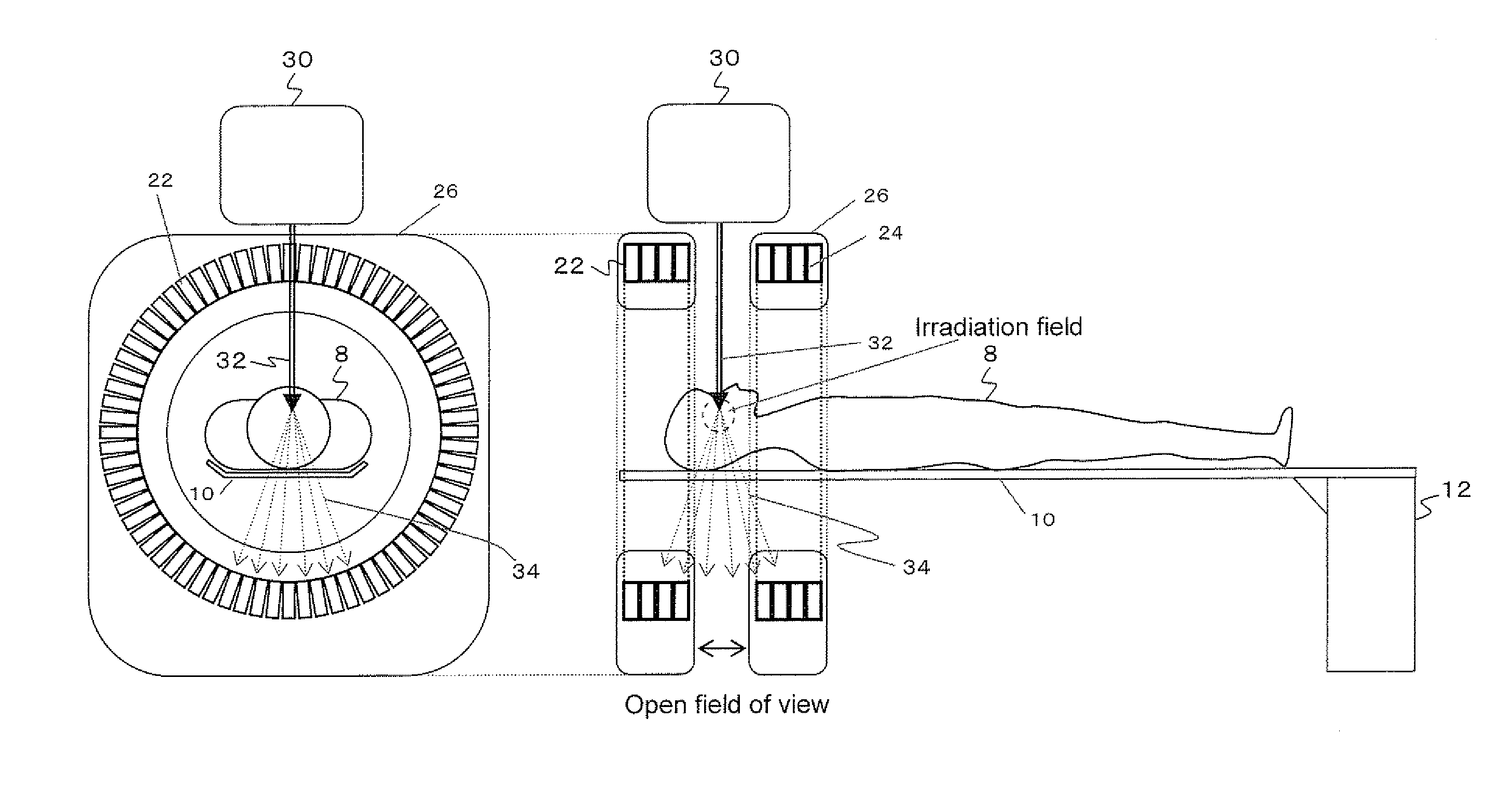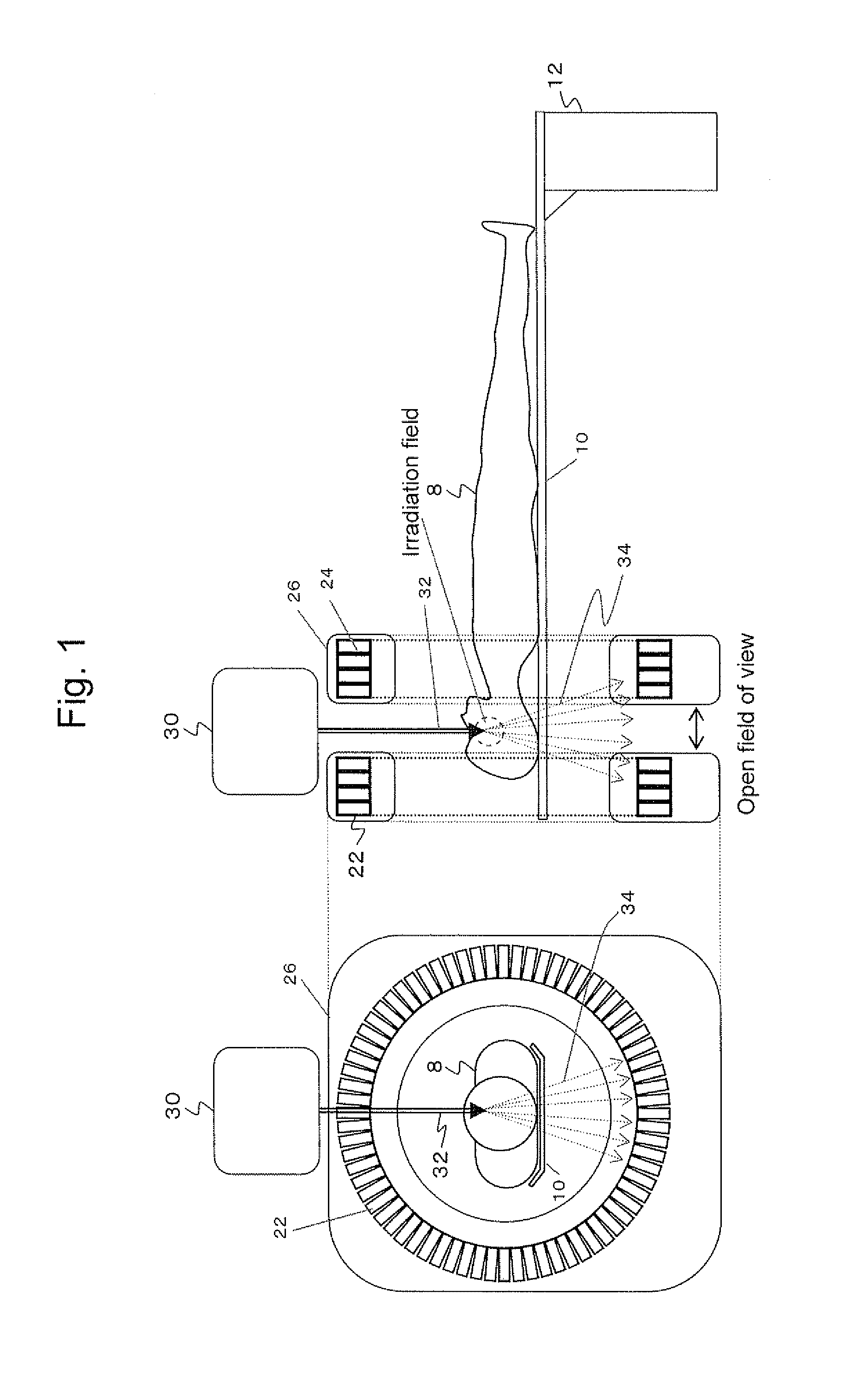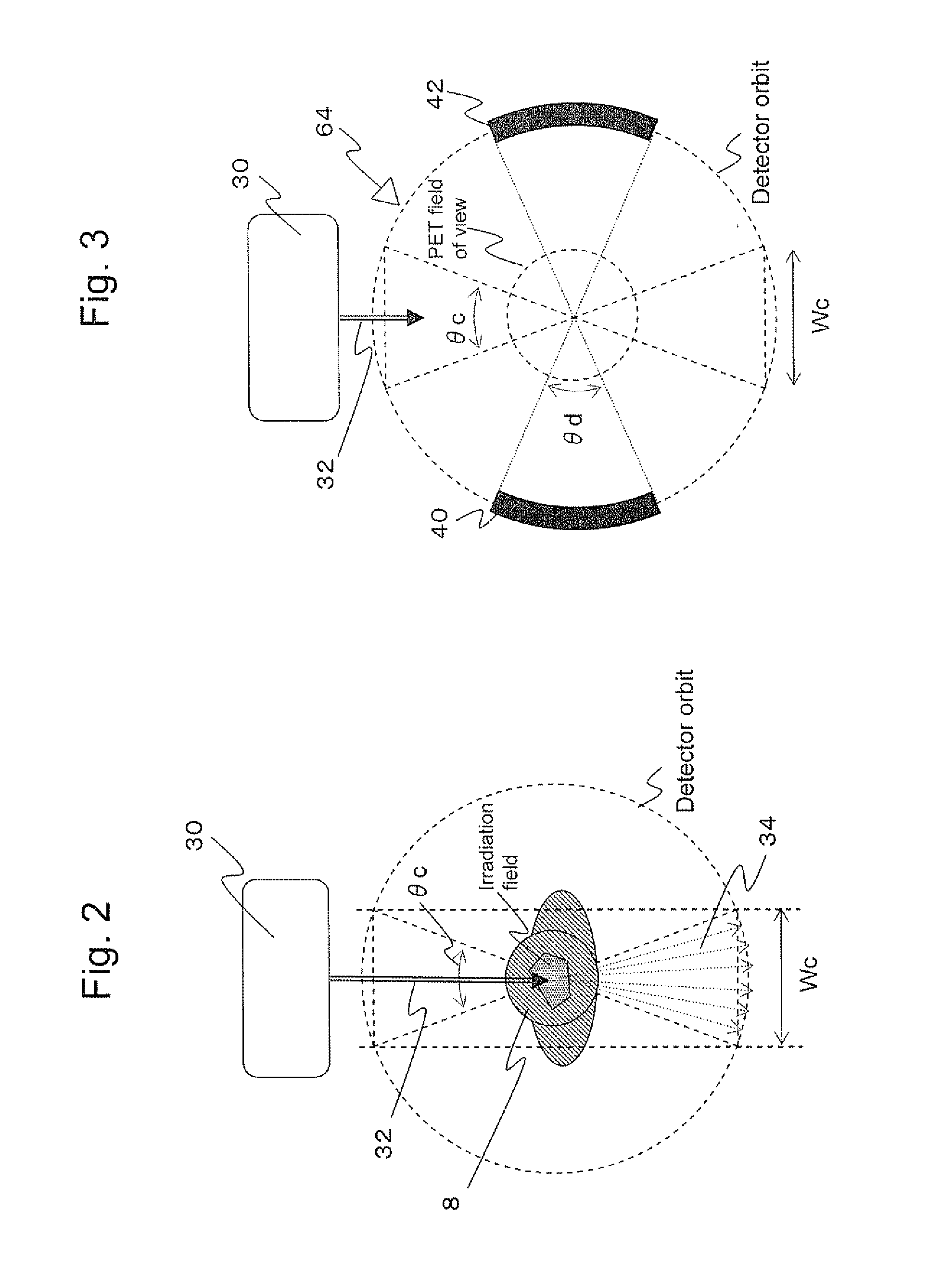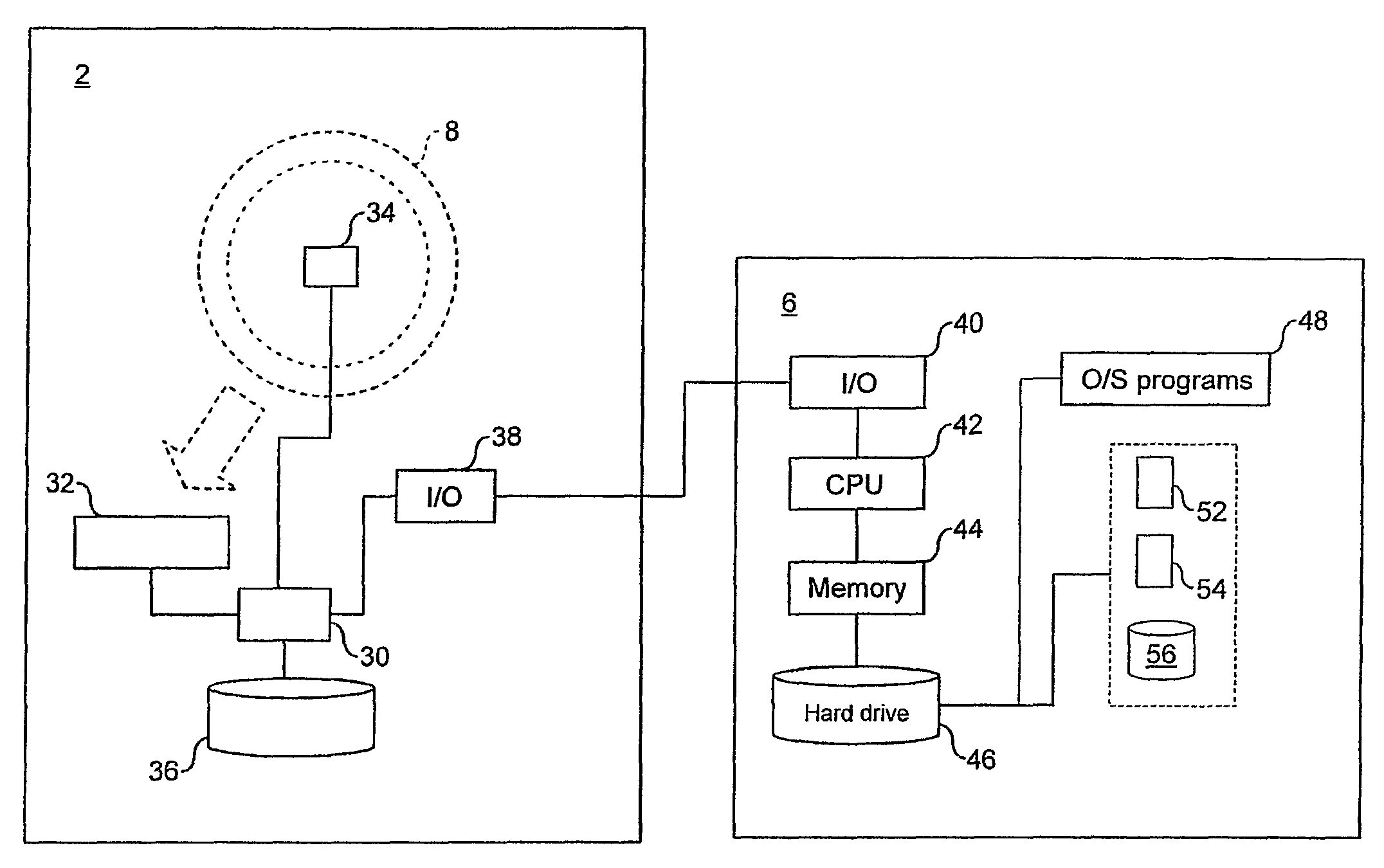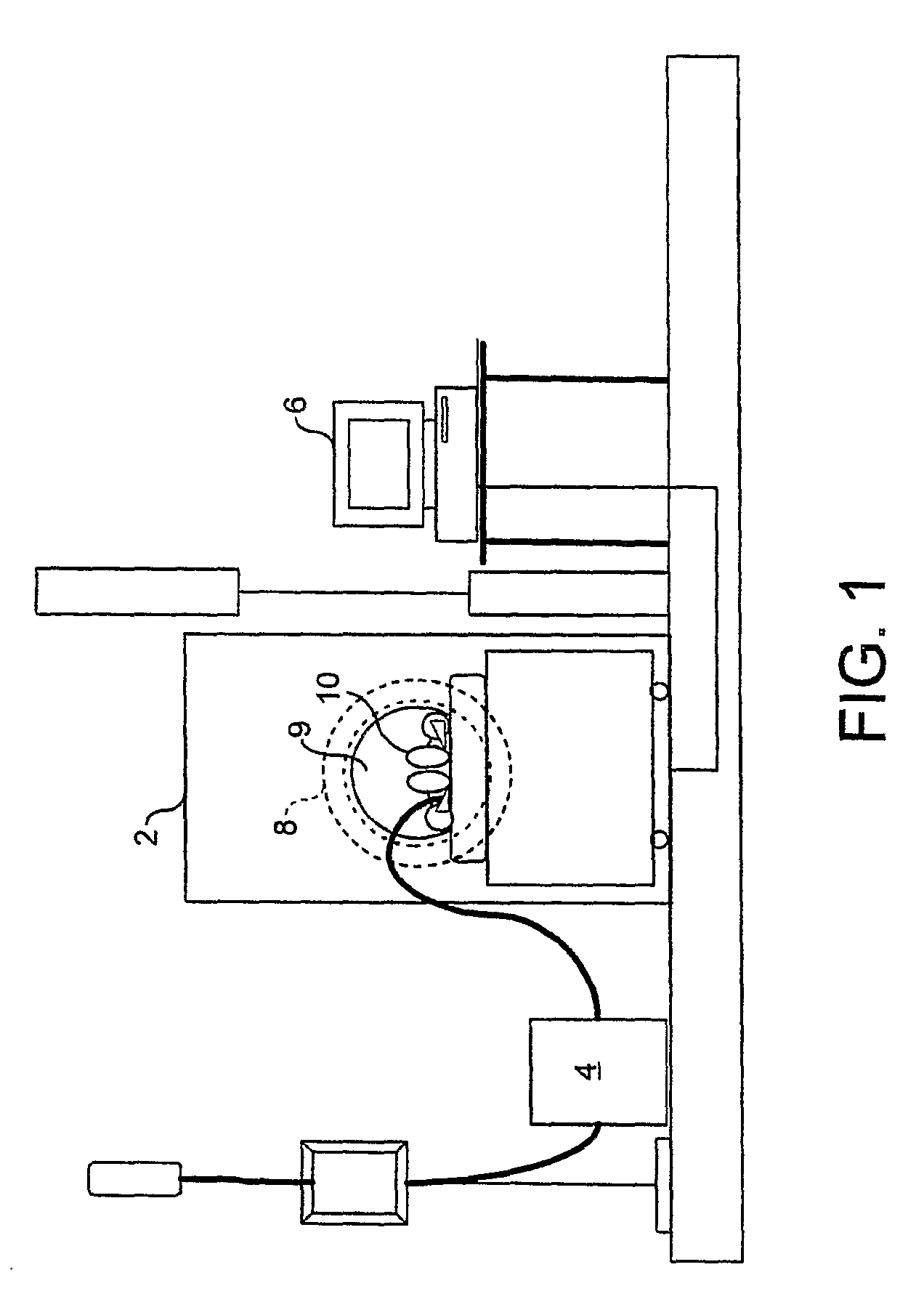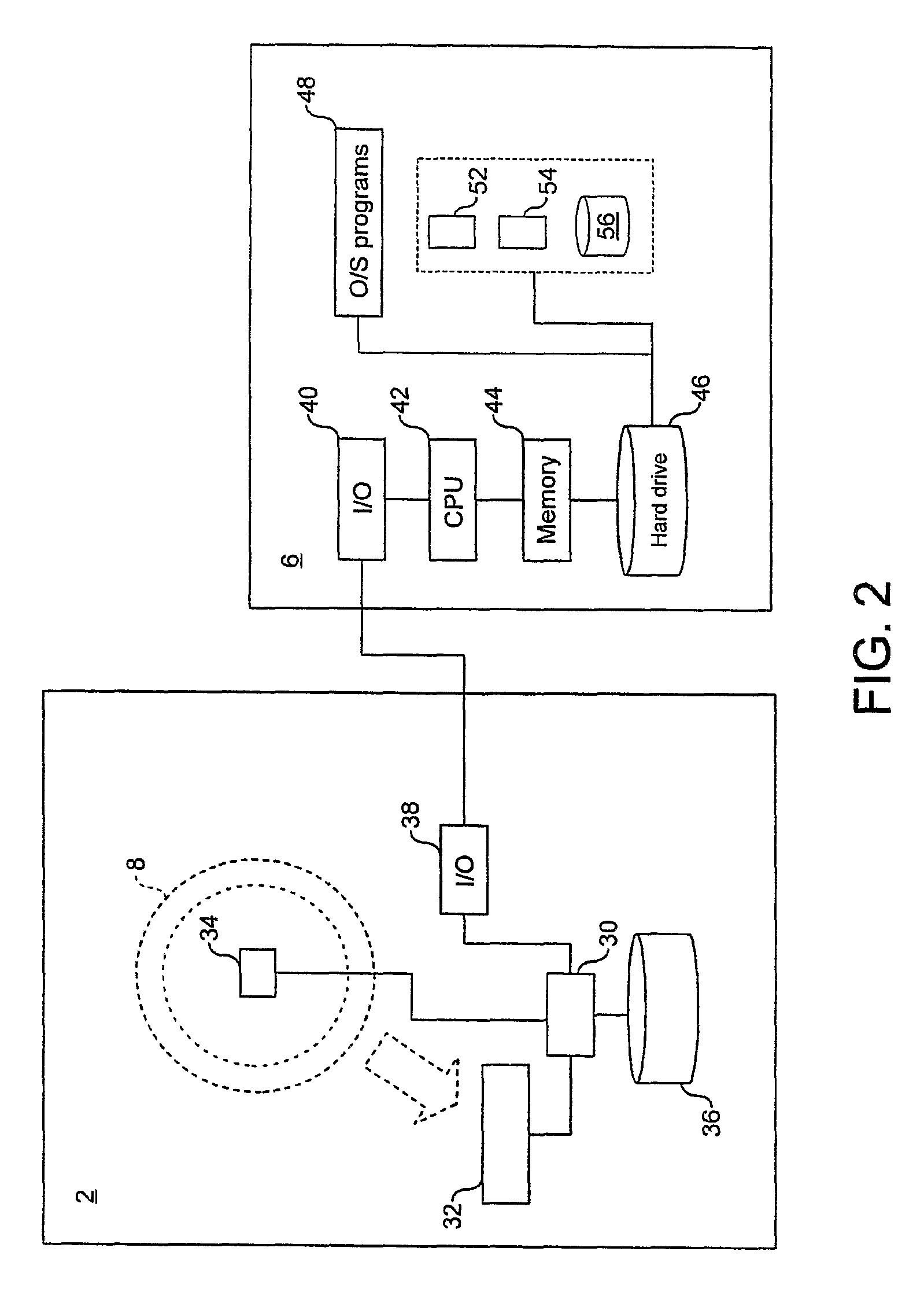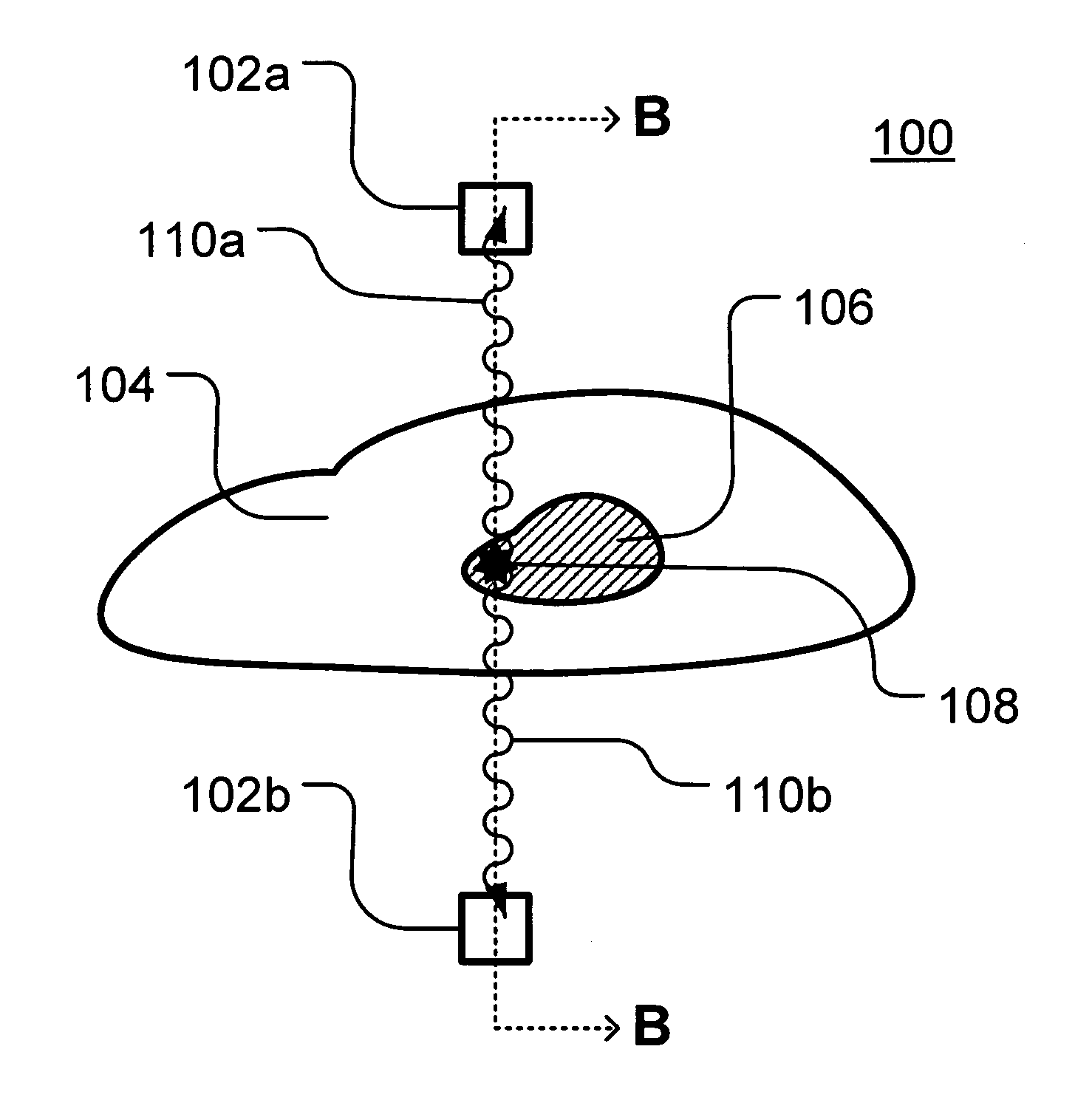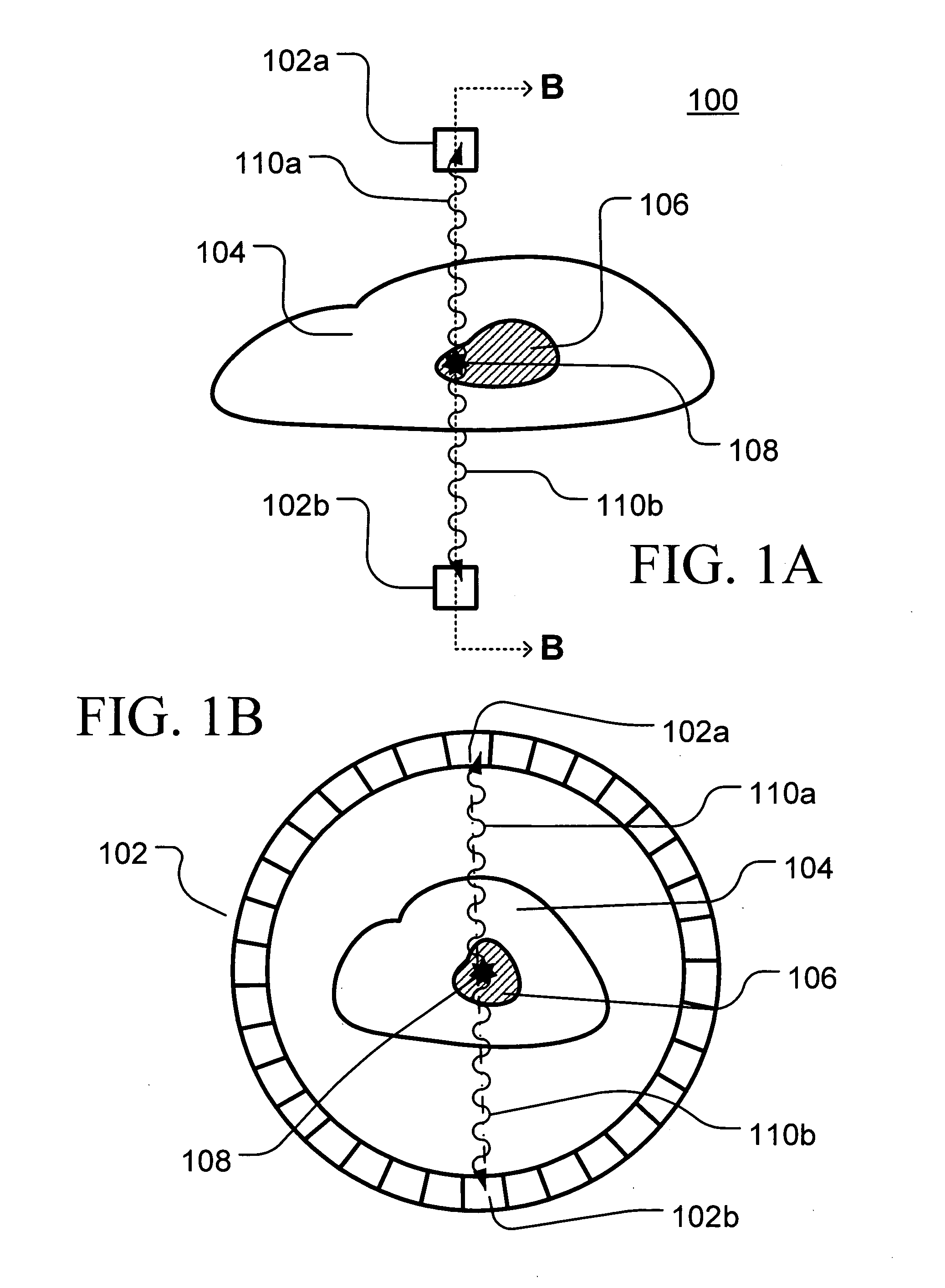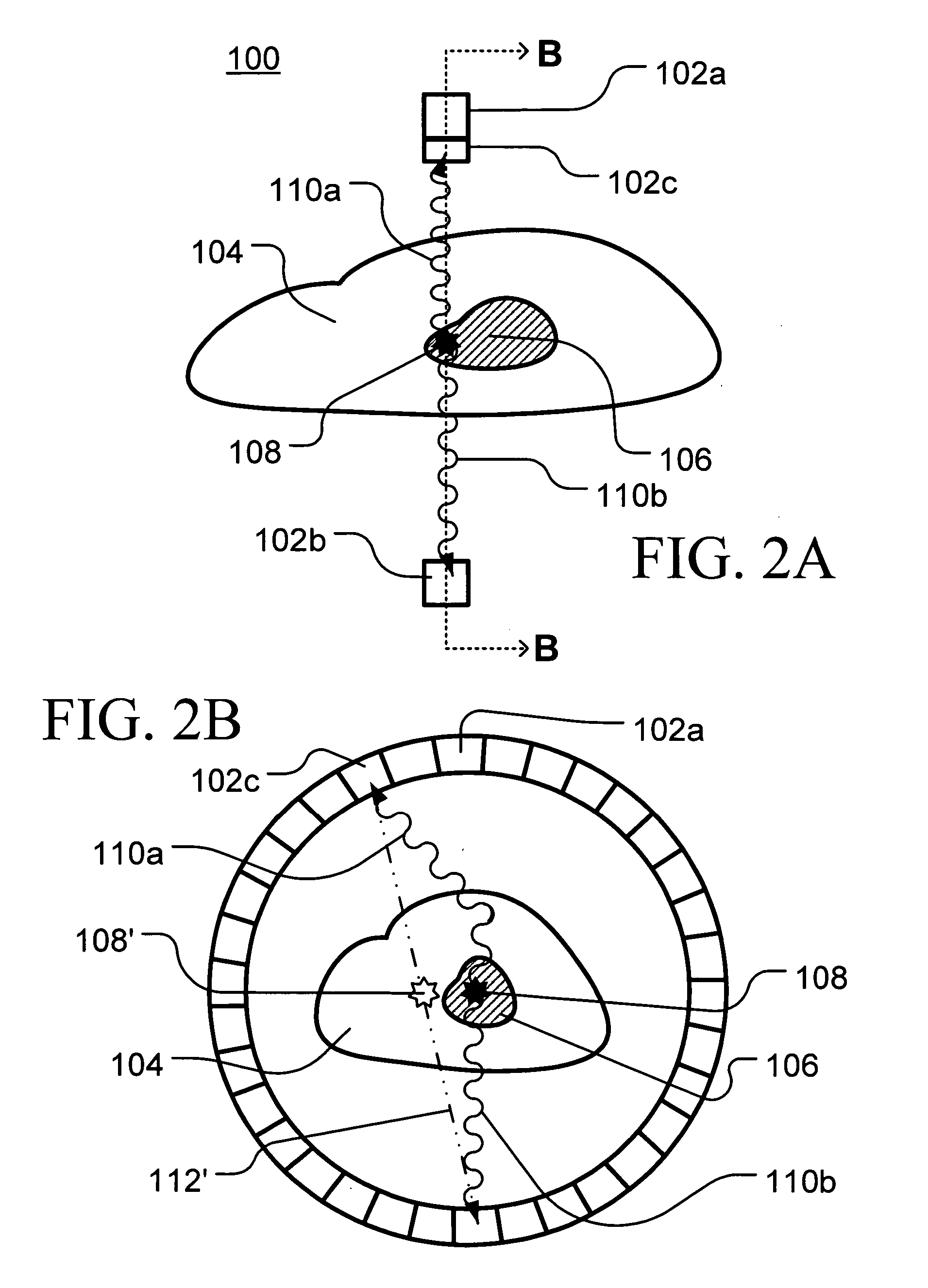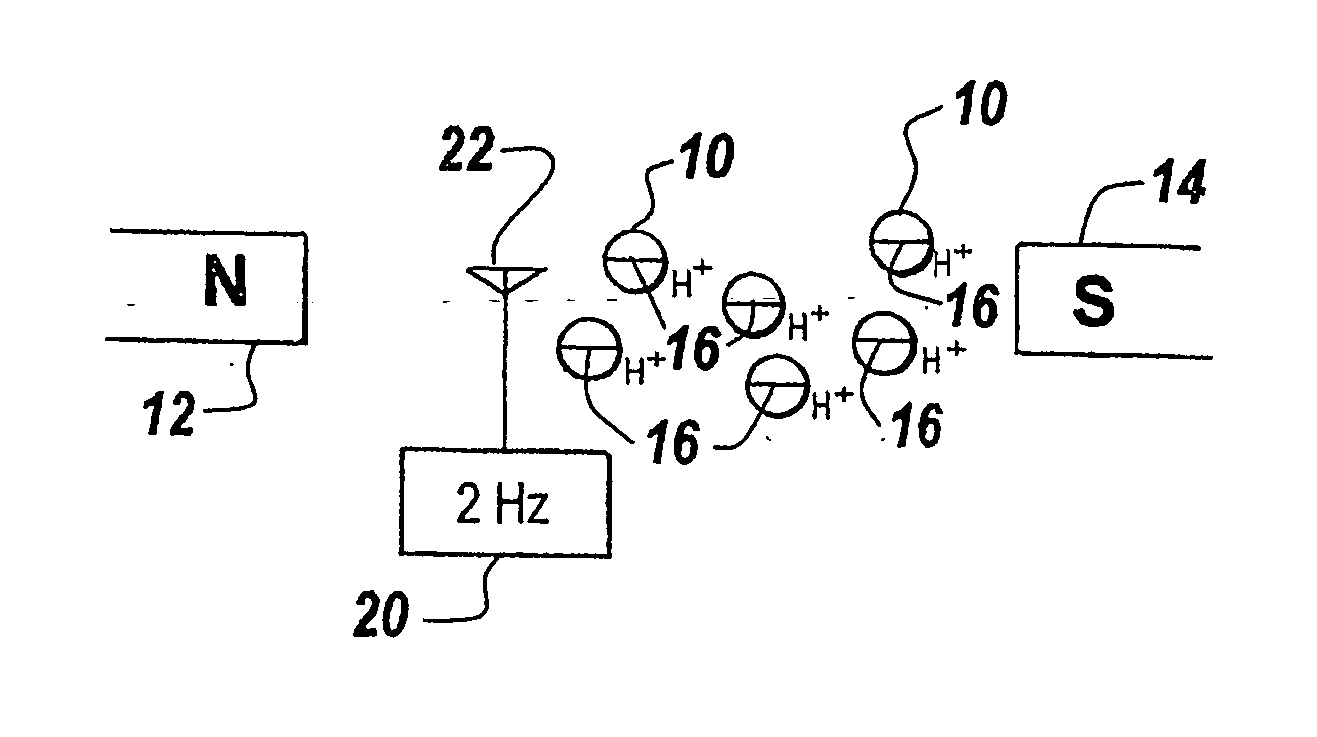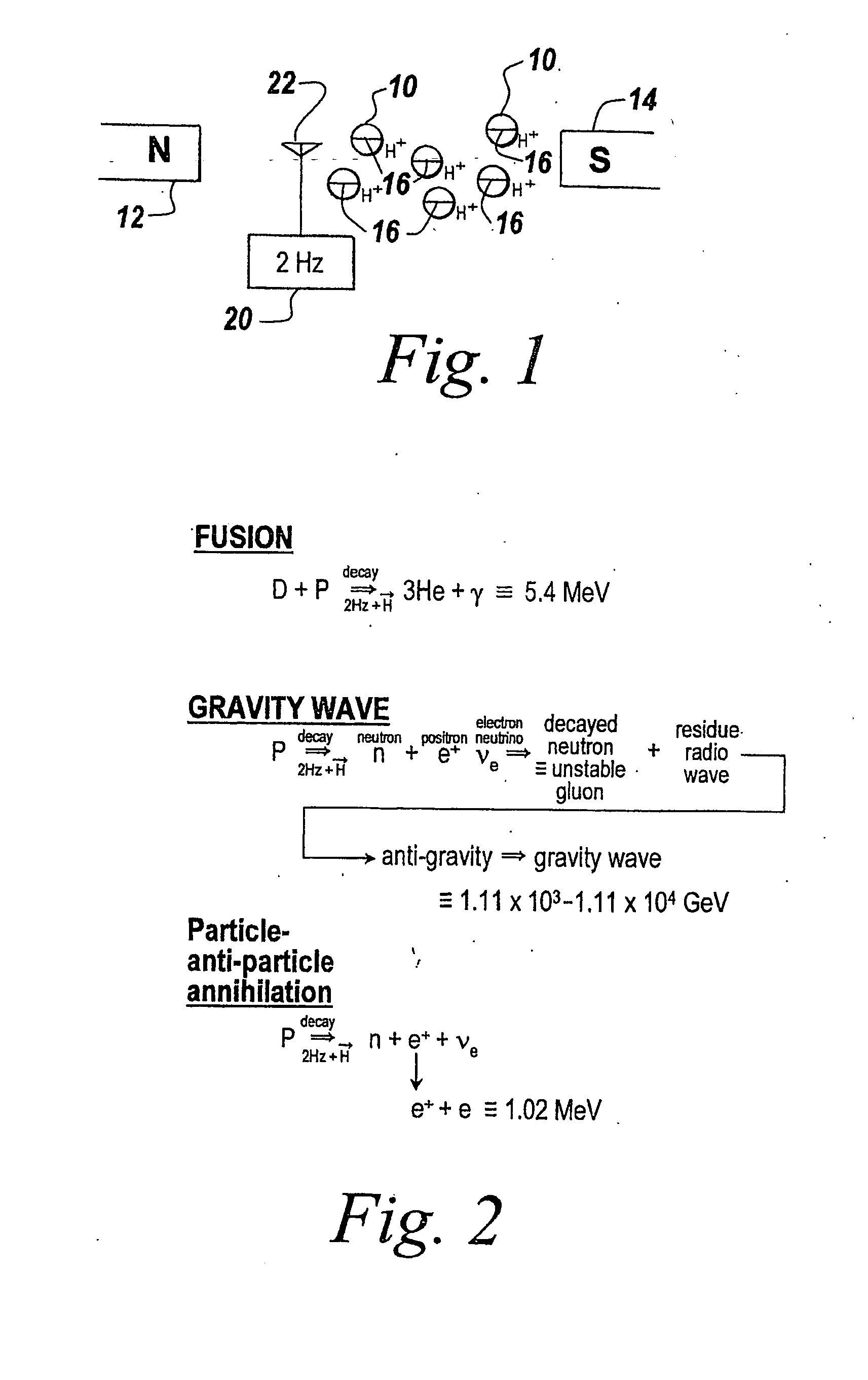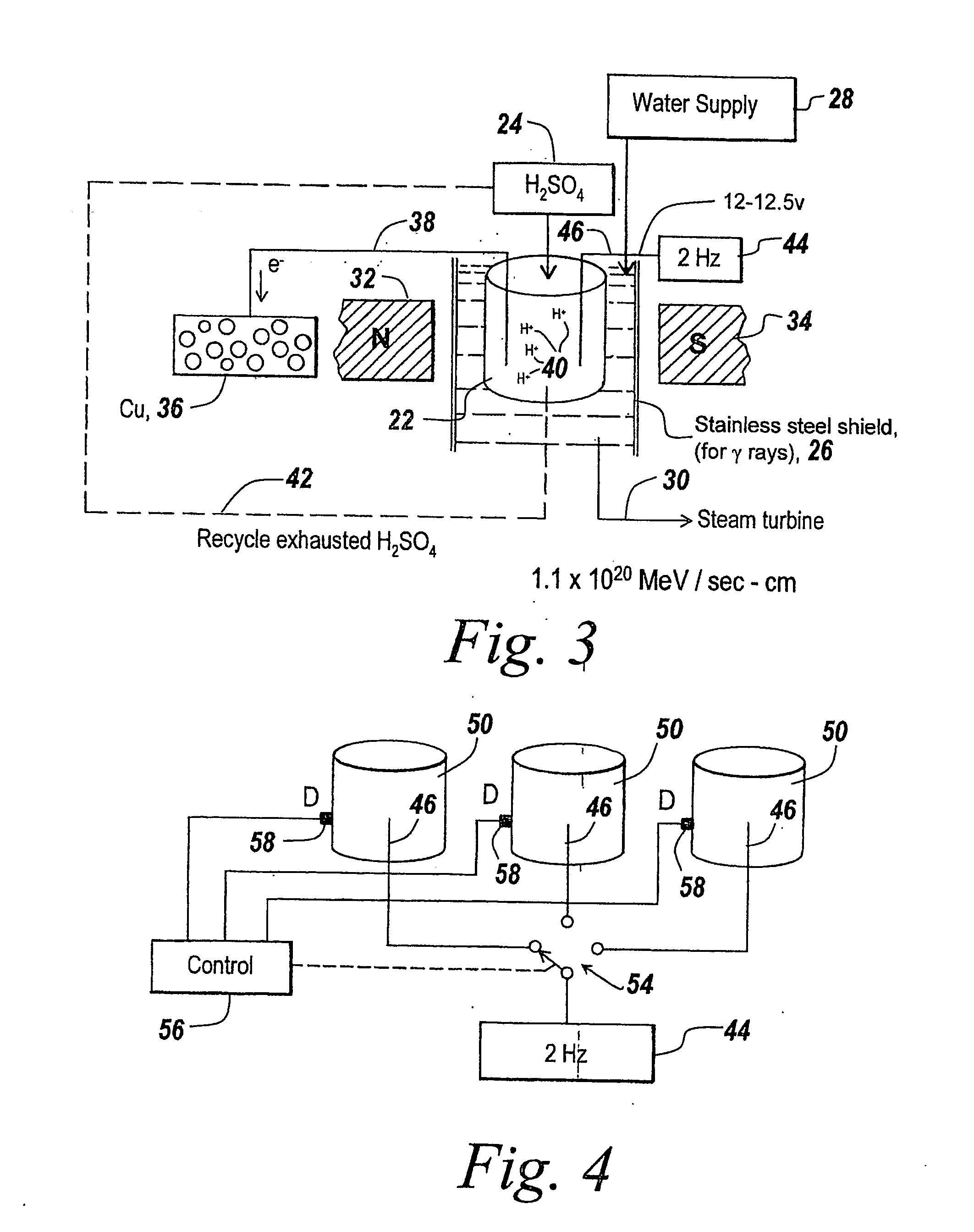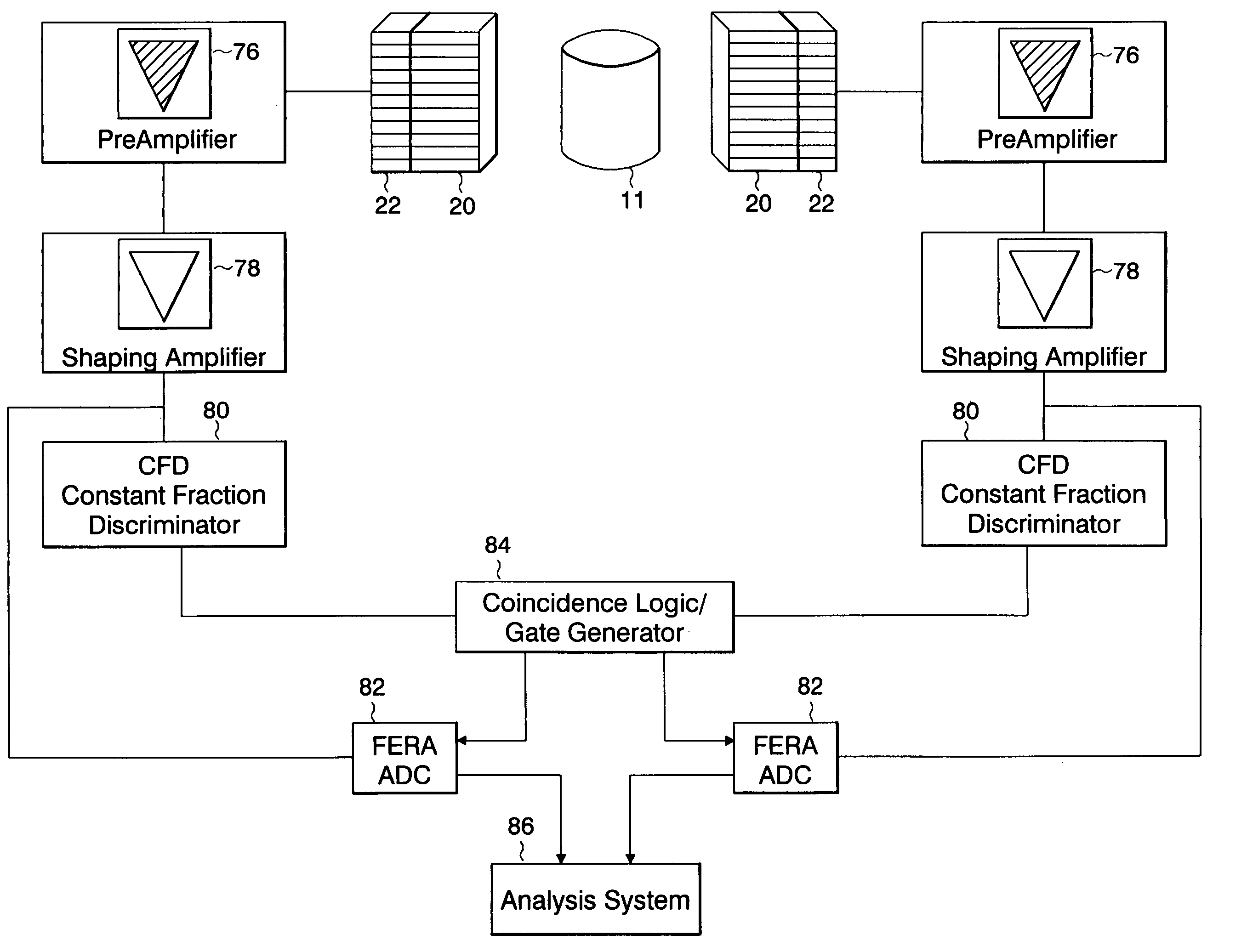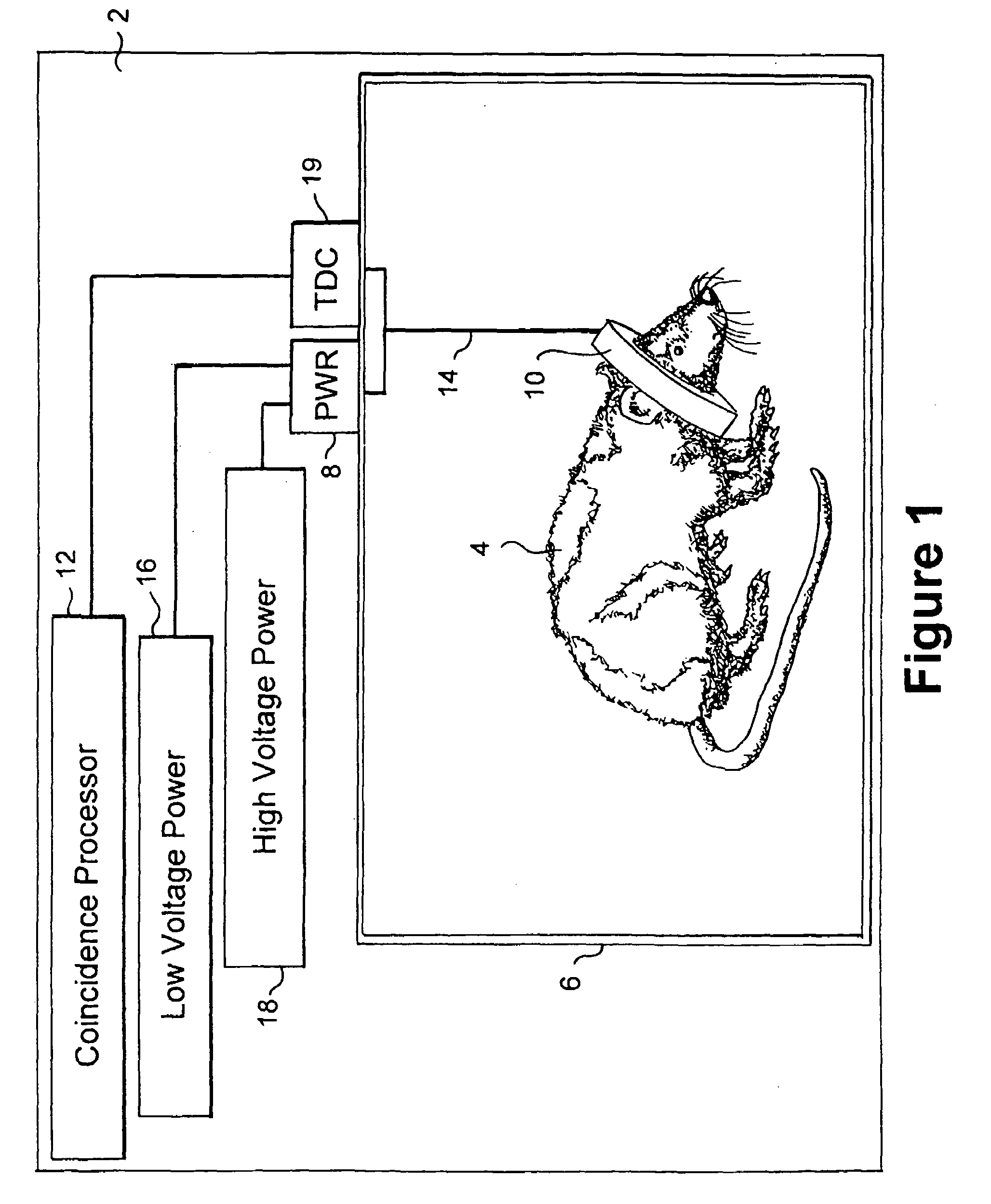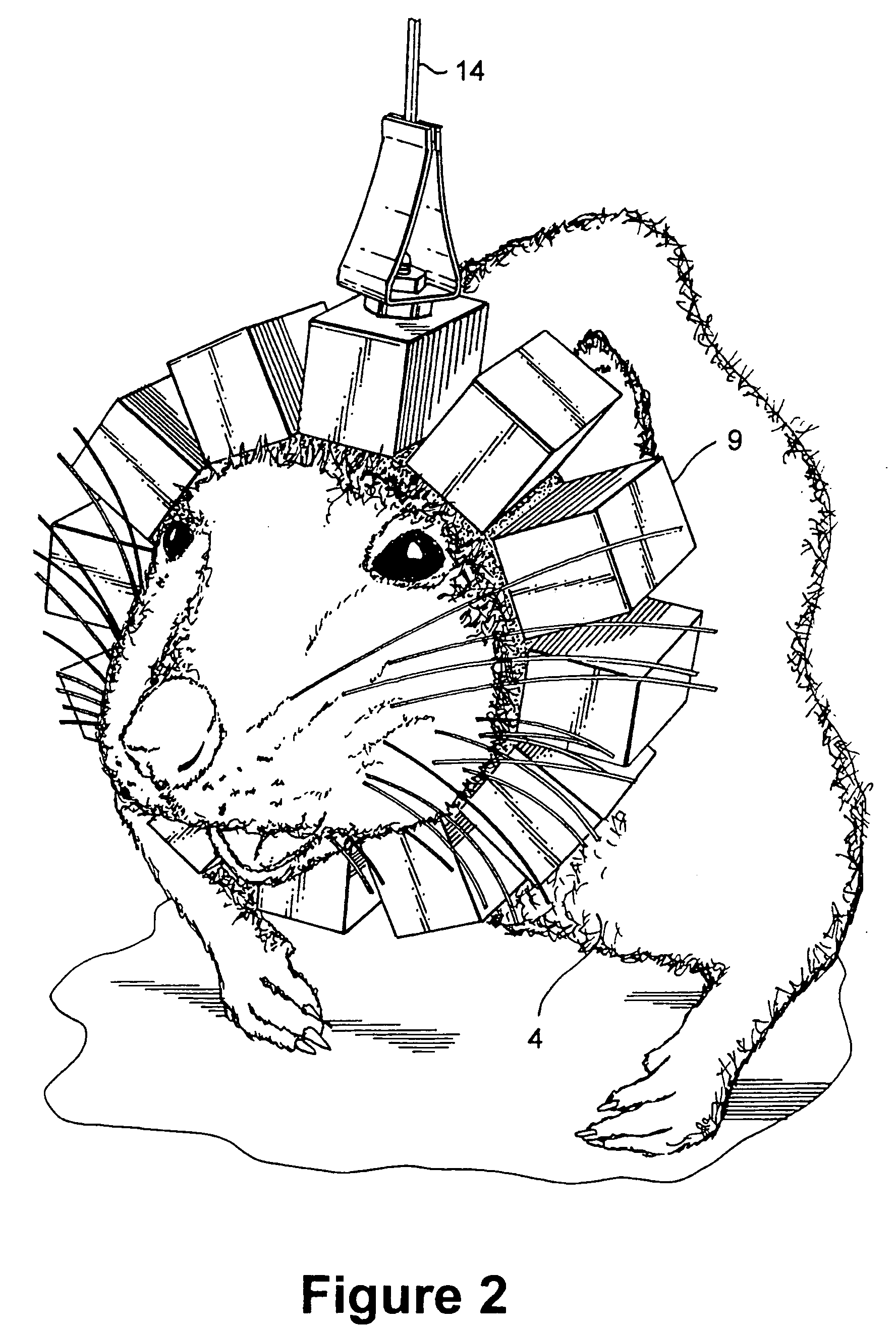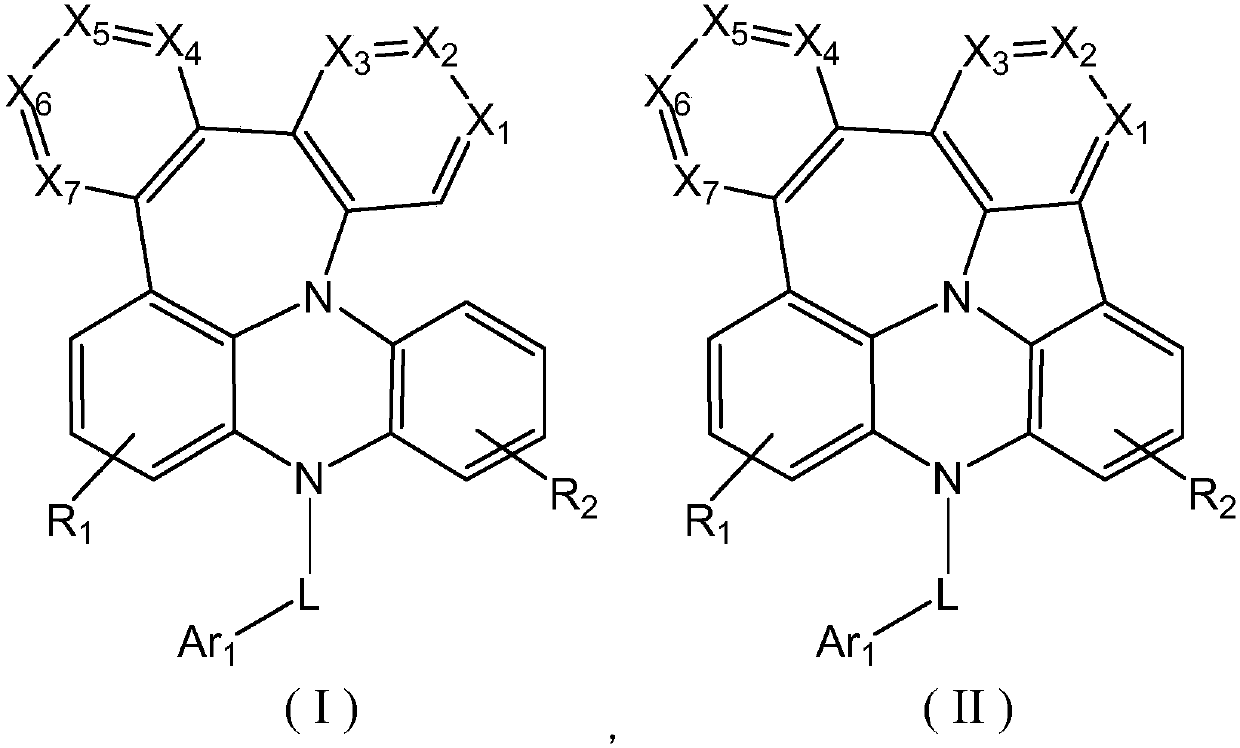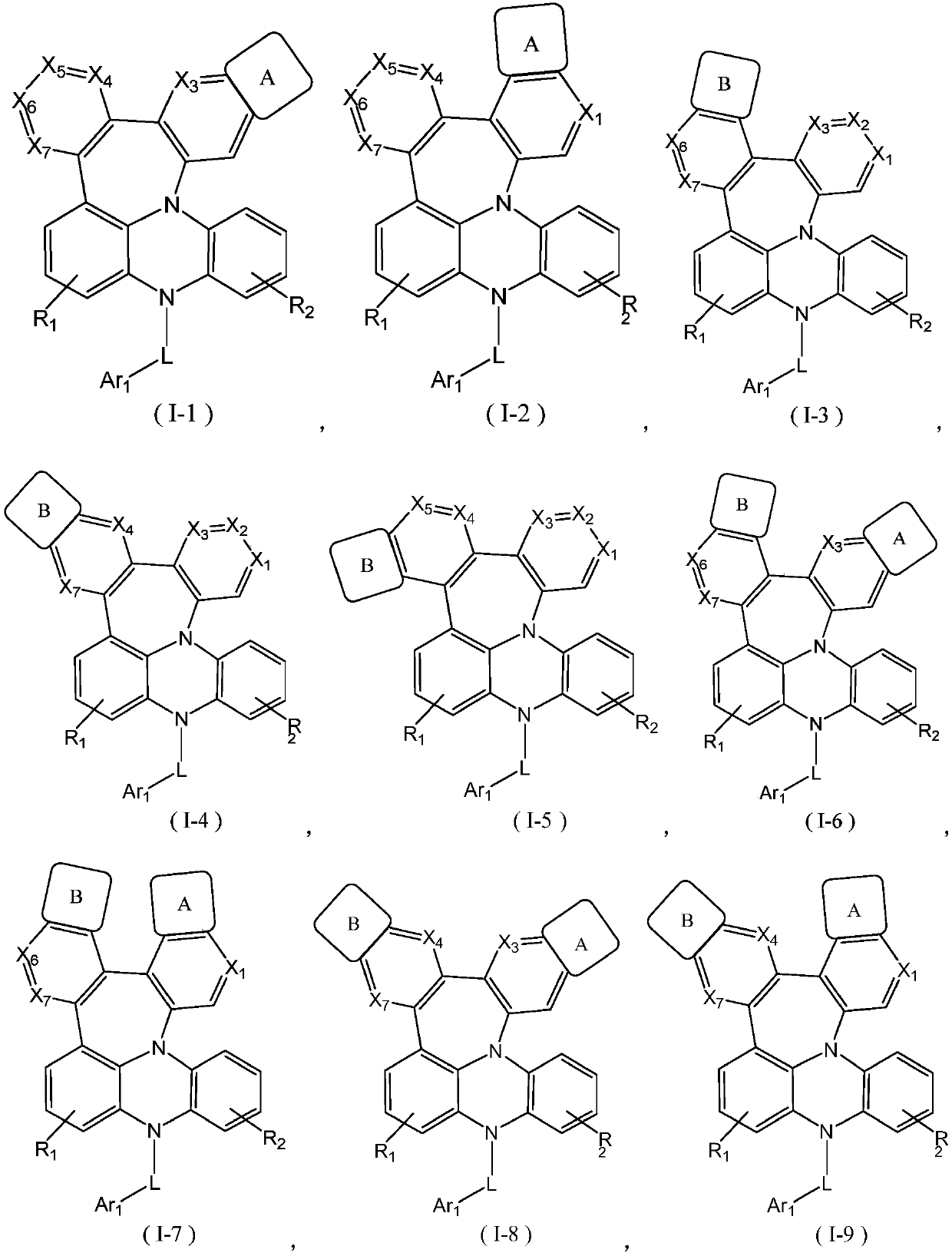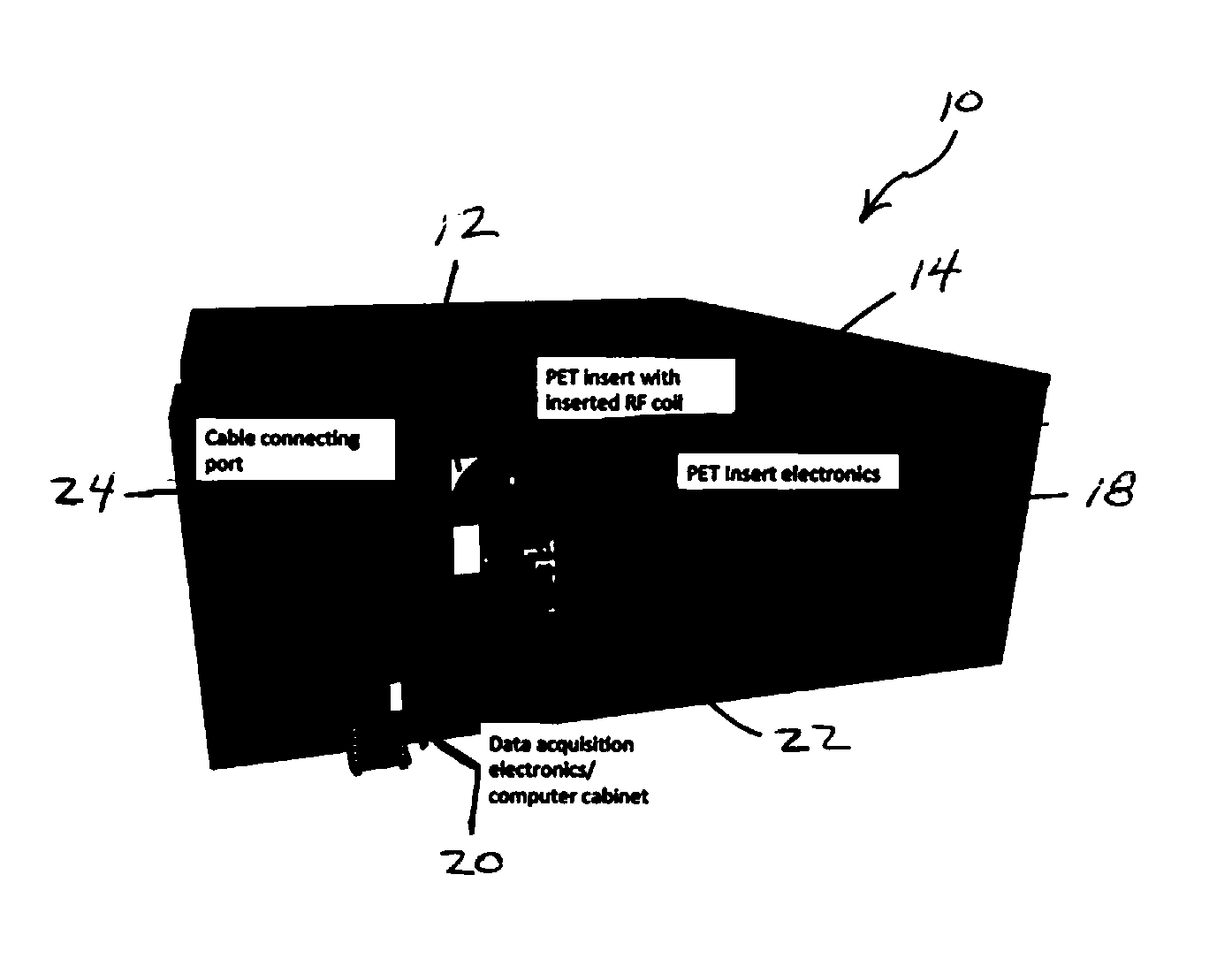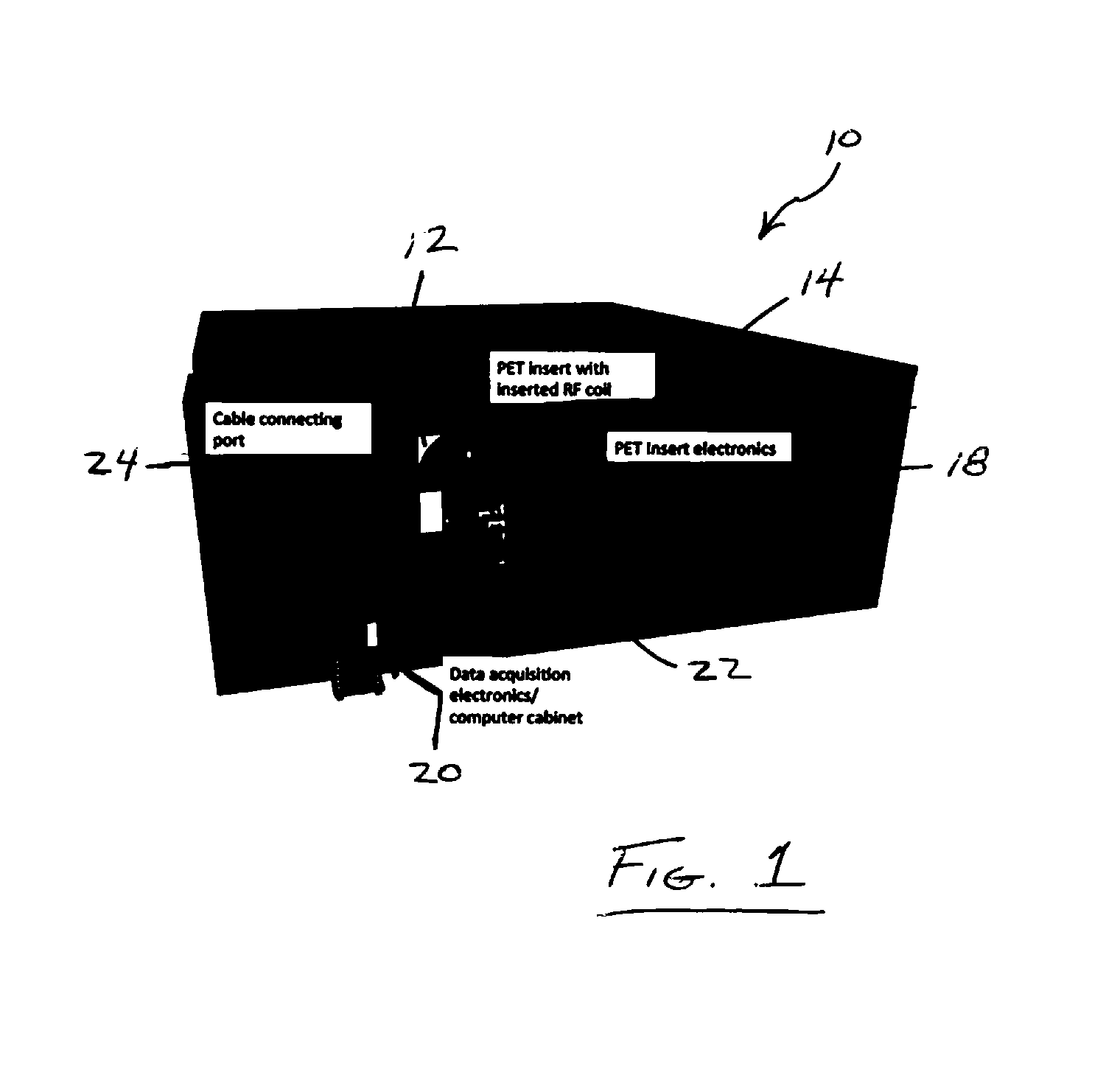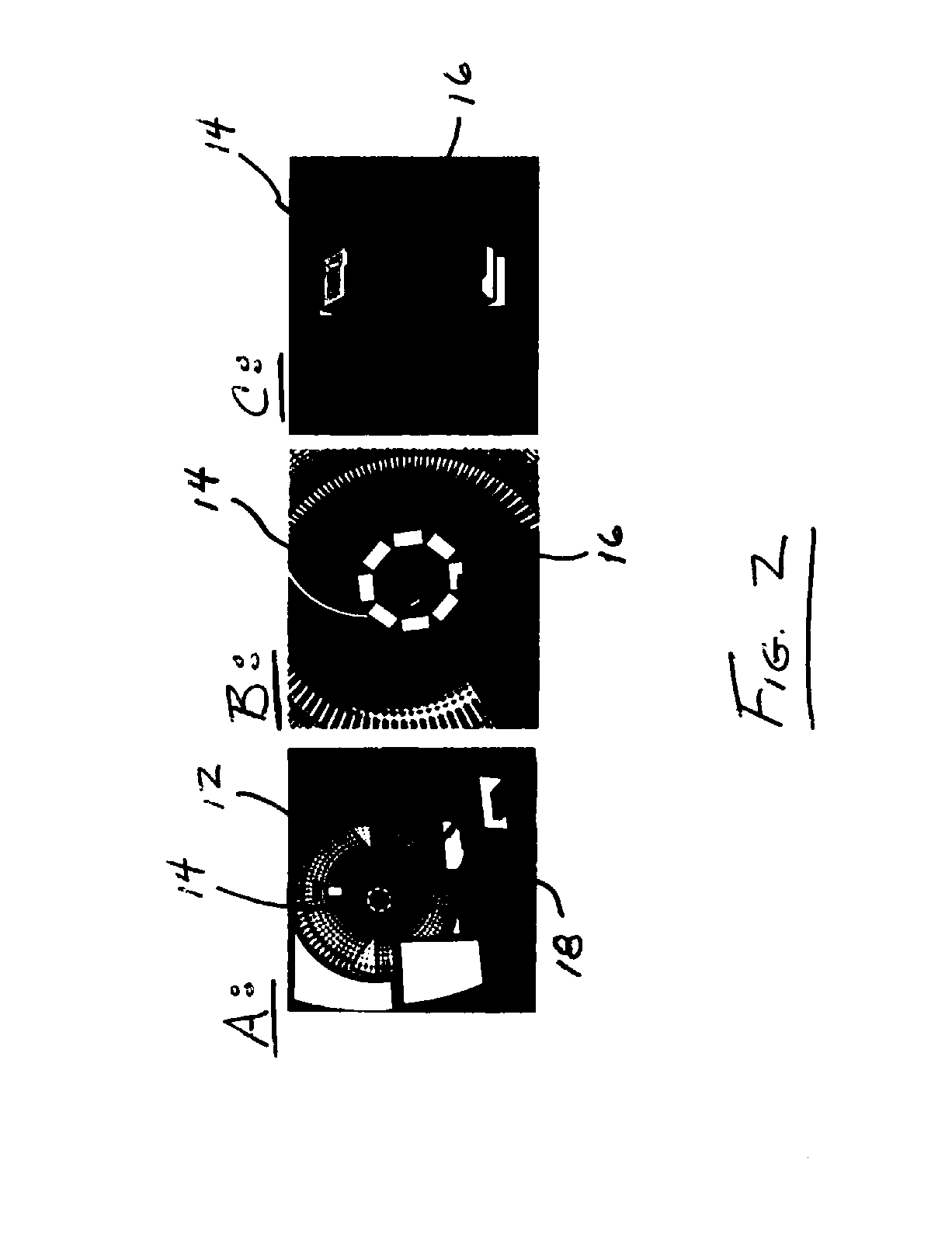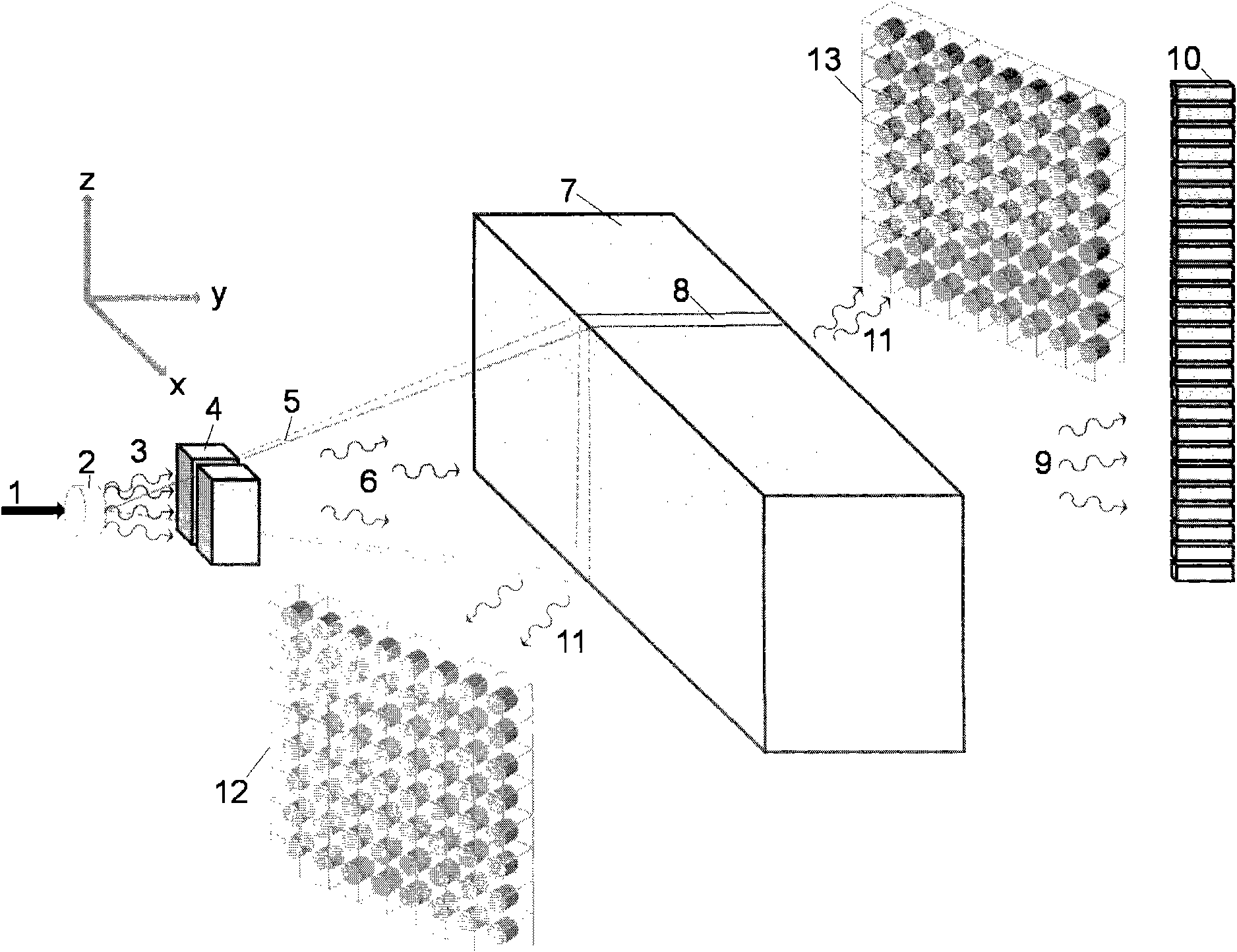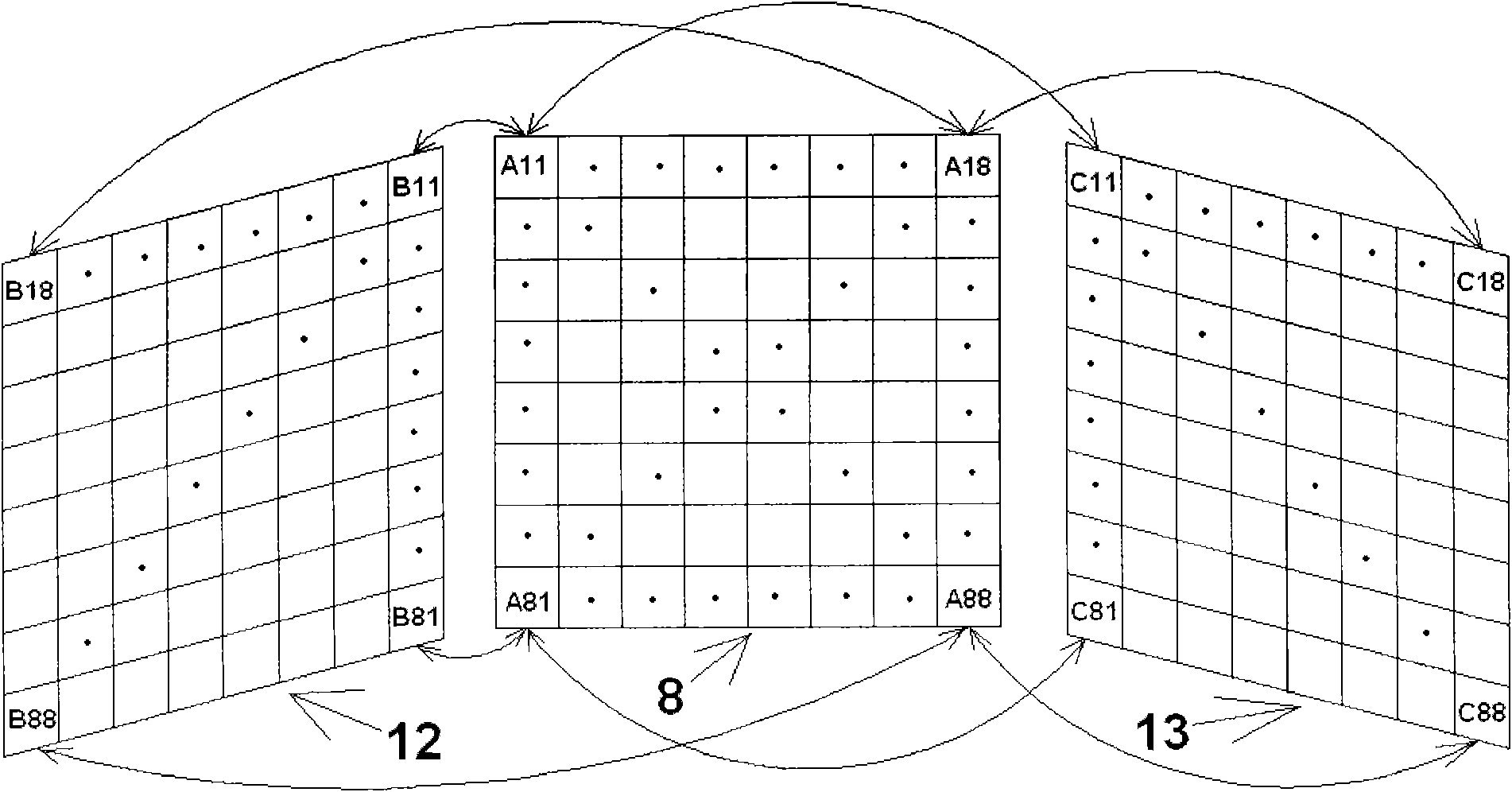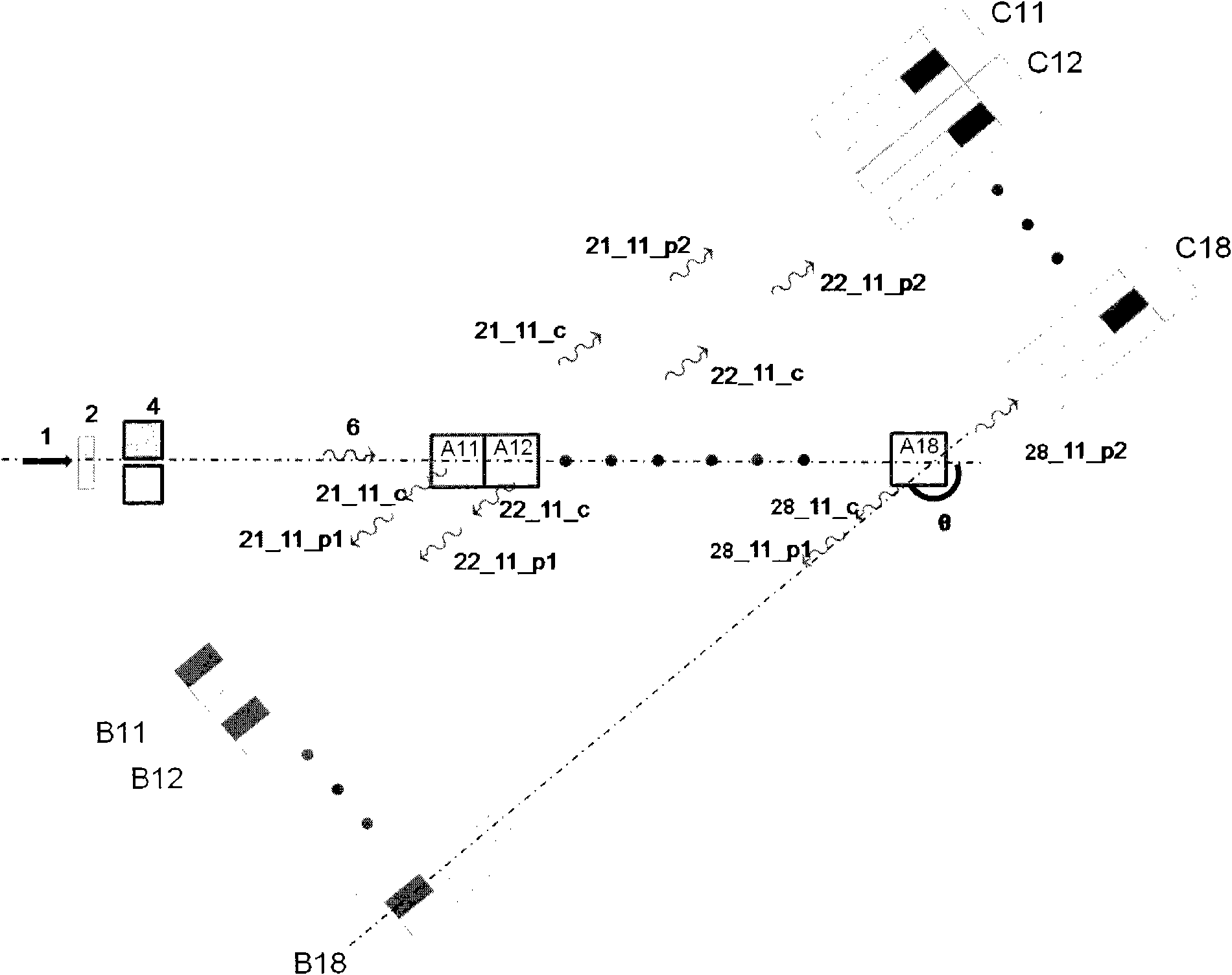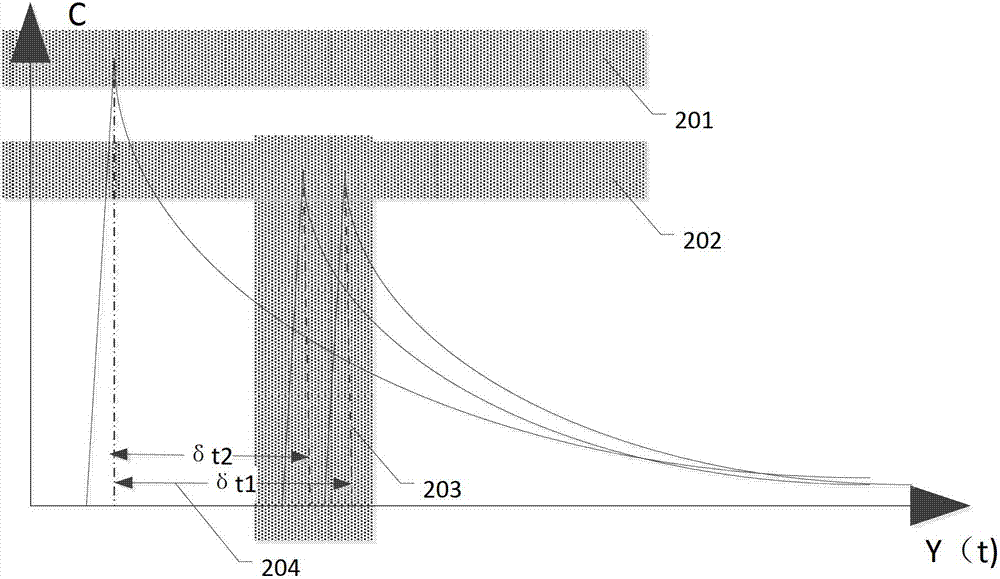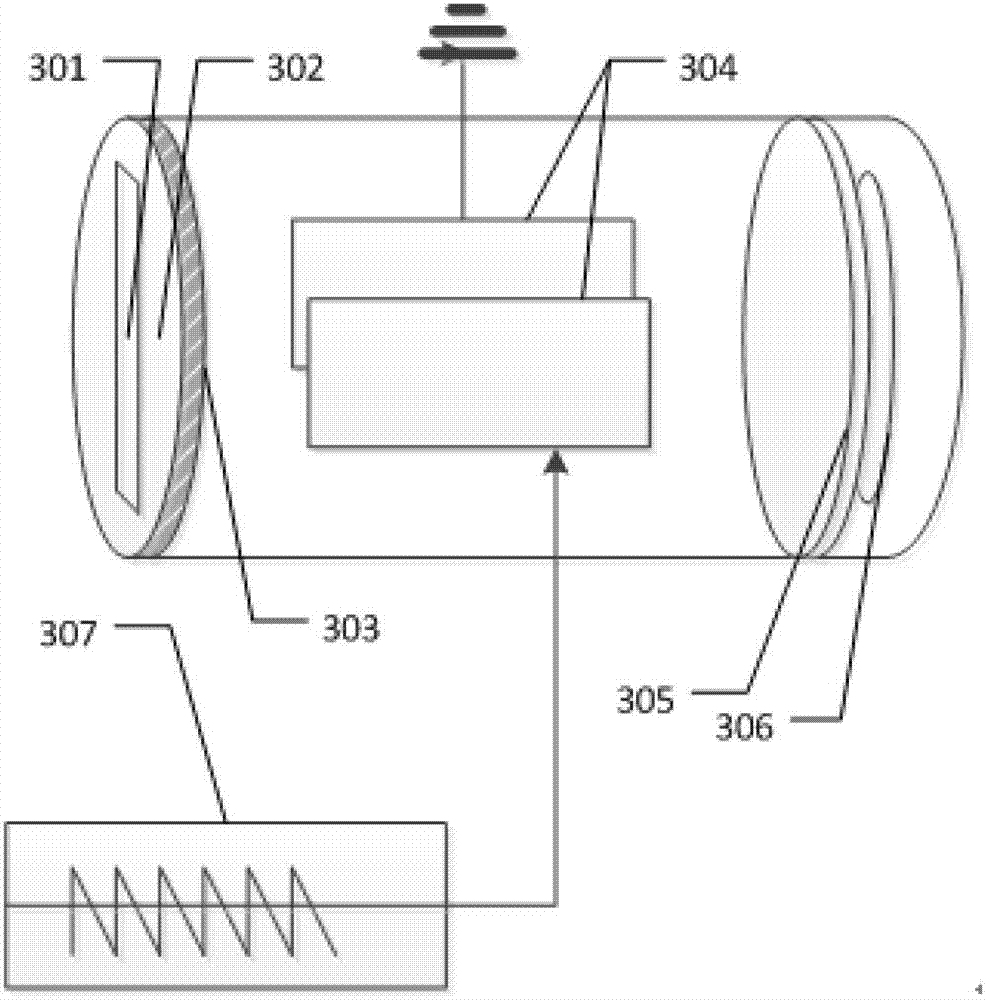Patents
Literature
260 results about "Annihilation" patented technology
Efficacy Topic
Property
Owner
Technical Advancement
Application Domain
Technology Topic
Technology Field Word
Patent Country/Region
Patent Type
Patent Status
Application Year
Inventor
In particle physics, annihilation is the process that occurs when a subatomic particle collides with its respective antiparticle to produce other particles, such as an electron colliding with a positron to produce two photons. The total energy and momentum of the initial pair are conserved in the process and distributed among a set of other particles in the final state. Antiparticles have exactly opposite additive quantum numbers from particles, so the sums of all quantum numbers of such an original pair are zero. Hence, any set of particles may be produced whose total quantum numbers are also zero as long as conservation of energy and conservation of momentum are obeyed.
Combined PET/MRI scanner
ActiveUS20050113667A1Reduce power consumptionExtension of timeMagnetic measurementsMaterial analysis by optical meansAudio power amplifierPhoton detection
A combined PET / MRI scanner generally includes a magnet for producing a magnetic field suitable for magnetic resonance imaging, a radiofrequency (RF) coil disposed within the magnetic field produced by the magnet and a ring tomograph disposed within the magnetic field produced by the magnet. The ring tomograph includes a scintillator layer for outputting at least one photon in response to an annihilation event, a detection array coupled to the scintillator layer for detecting the at least one photon outputted by the scintillator layer and for outputting a detection signal in response to the detected photon and a front-end electronic array coupled to the detection array for receiving the detection signal, wherein the front-end array has a preamplifier and a shaper network for conditioning the detection signal.
Owner:BROOKHAVEN SCI ASSOCS
Combined PET/MRI scanner
ActiveUS7286867B2Reduce power consumptionExtension of timeMagnetic measurementsTomographyAudio power amplifierScintillator
A combined PET / MRI scanner generally includes a magnet for producing a magnetic field suitable for magnetic resonance imaging, a radiofrequency (RF) coil disposed within the magnetic field produced by the magnet and a ring tomograph disposed within the magnetic field produced by the magnet. The ring tomograph includes a scintillator layer for outputting at least one photon in response to an annihilation event, a detection array coupled to the scintillator layer for detecting the at least one photon outputted by the scintillator layer and for outputting a detection signal in response to the detected photon and a front-end electronic array coupled to the detection array for receiving the detection signal, wherein the front-end array has a preamplifier and a shaper network for conditioning the detection signal.
Owner:BROOKHAVEN SCI ASSOCS
Method for reducing an electronic time coincidence window in positron emission tomography
ActiveUS20070106154A1Shorten the timeReducing random coincidencesUltrasonic/sonic/infrasonic diagnosticsInfrasonic diagnosticsGamma photonRadiation field
A method for acquiring PET images with reduced time coincidence window limits includes obtaining a preliminary image of a patient within a radiation field of view (FOV), determining the spatial location of the patient within the FOV based on the preliminary image, calculating a different time coincidence window based on the spatial location of the patient for each possible pair of oppositely disposed detectors, scanning the patient with a PET scanning system to detect a pair of gamma photons produced by an annihilation event, determining whether the detection of the pair of gamma photons occurs within the time coincidence window, accepting the detected event only if the detection of the gamma photons occurs within the time coincidence window, calculating the spatial location of accepted annihilation event, and adding the calculated spatial location of the annihilation event to a stored distribution of calculated annihilation event spatial locations representing the distribution of radioactivity in the patient.
Owner:SIEMENS MEDICAL SOLUTIONS USA INC
Method and apparatus for real-time tumor tracking
Method and apparatus for real-time tracking of a target in a human body. In one embodiment of the invention, positron emission marker may be implanted into a target, the positron emission marker having a low activity positron isotope. In one embodiment, annihilation gamma rays associated with the low activity positron isotope may be detected using a plurality of position-sensitive detectors. In another embodiment, the target may be tracked in real-time based on a position of the positron emission marker.
Owner:XU TONG +2
Lu1-xI3:Cex - a scintillator for gamma ray spectroscopy and time-of-flight PET
ActiveUS20050104002A1Improve light outputRapid responsePolycrystalline material growthMaterial analysis by optical meansLutetiumIodide
The present invention concerns very fast scintillator materials comprising lutetium iodide doped with Cerium (Lu1-xI3:Cex; LuI3:Ce). The LuI3 scintillator material has surprisingly good characteristics including high light output, high gamma ray stopping efficiency, fast response, low cost, good proportionality, and minimal afterglow that the material is useful for gamma ray spectroscopy, medical imaging, nuclear and high energy physics research, diffraction, non-destructive testing, nuclear treaty verification and safeguards, and geological exploration. The timing resolution of the scintillators of the present invention provide compositions capable of resolving the position of an annihilation event within a portion of a human body cross-section.
Owner:RADIATION MONITORING DEVICES
Positron emission tomography scanner and radiation detector
InactiveUS20090159804A1Improve accuracyRaise the ratioMaterial analysis by optical meansTomographyAnnihilation radiationCompanion animal
A positron emission tomography (PET) scanner is provided which uses information on the time-of-flight difference (TOF) between annihilation radiations for image reconstruction. The scanner has detection time correction information (memory) corresponding to information on coordinates in a radiation detection element (e.g., scintillator crystal), in the depth and lateral directions, at which an interaction has occurred between an annihilation radiation and the crystal. Reference is made to the detection time correction information, thereby providing information on time-of-flight difference with improved accuracy. As such, an improved signal to noise ratio and spatial resolution are provided for image reconstruction using time-of-flight (TOF) difference.
Owner:NAT INST FOR QUANTUM & RADIOLOGICAL SCI & TECH
Antiproton production and delivery for imaging and termination of undersirable cells
ActiveUS20070225603A1Minimize the numberEliminating fractionation requirementRadiation/particle handlingMagnetic resonance acceleratorsAntiprotonDetector array
Systems and methods for using antiprotons for terminating unwanted or undesirable cells which can be used in the treatment of conditions caused by the existence and / or proliferation of such undesirable cells. Such conditions include cardiovascular ailments, Parkinson's disease, wet macular degeneration, endocrine disorders, dermatological ailments, and cancer. Because of the unique nature of antiprotons and their annihilation characteristics, the preferred antiproton delivery device (1010, 1015, 1030) embodiments further incorporate detector arrays (1050a), capable of detecting characteristic emissions in the course of treatment.
Owner:HBAR TECH
Electrode Structure, Device Comprising the Same and Method for Forming Electrode Structure
InactiveUS20100181566A1Increasing carrier generation efficiencyPreventing hole annihilationSemiconductor/solid-state device detailsSolid-state devicesCarrier signalAtomic layer deposition
An electrode structure comprises a semiconductor junction comprising an n-type semiconductor layer and a p-type semiconductor layer; a hole exnihilation layer on the p-type semiconductor layer; and a transparent electrode layer on the hole exnihilation layer. The electrode structure further comprises a conductive layer between the hole exnihilation layer and the transparent electrode layer. In the electrode structure, one or more of the hole exnihilation layer, the conductive layer and the transparent electrode layer may be formed by an atomic layer deposition. In the electrode structure, a transparent electrode formed of a degenerated n-type oxide semiconductor does not come in direct contact with a p-type semiconductor, and thus, annihilation or recombination of holes generated in the p-type semiconductor can be reduced, which increases the carrier generation efficiency. Further, the electric conductivity of the transparent electrode is increased by the conductive layer, which improves electrical characteristics of a device.
Owner:VEECO ALD
Fused ring compound as well as preparation method and application thereof
ActiveCN108727398AImprove cavitation performanceIncrease HOMO levelOrganic chemistrySolid-state devicesTriplet stateGlass transition
The invention discloses a fused ring compound comprising a structure shown as a formula (I) or (II). According to the fused ring compound, by controlling effective conjugation of aromatic rings and heterocyclic rings, the electron transport performance is balanced while the hole performance is improved. The compound has high triplet state energy level and glass transition temperature, is difficultin crystallization of material molecules, and is capable of ensuring high-efficiency transfer of energy to a guest material while serving as a host material of a luminous layer. The substituent groupof the fused ring compound is adjusted, the electron and hole transport performances are further improved, the singlet state and triplet state energy level difference is reduced, the compound area ofthe carrier is widened, and triplet state exciton annihilation is avoided. The invention further discloses an organic electroluminescence device. At least one functional layer contains the fused ringcompound, and the fused ring compound serves as the host material of the luminous layer and is matched with the energy level of an adjacent carrier transport layer. The luminous efficiency of the device is improved, and the driving voltage of the device is reduced.
Owner:NINGBO LUMILAN NEW MATERIAL CO LTD
Method and system for imaging a patient
Methods and systems for imaging a patient are provided. The method includes determining a location of a volume of interest within the patient and acquiring a plurality of frames of emission data, at least one frame including the volume of interest. The method further includes determining a time-of-flight (TOF) information of at least a portion of the annihilations detected along a line of response between corresponding coincidence detectors and generating an image of the patient from the emission data using the determined TOF information.
Owner:GENERAL ELECTRIC CO
Compact conscious animal positron emission tomography scanner
ActiveUS20050082486A1Reduce power consumptionMagnetic measurementsHandling using diaphragms/collimetersSerial transferEngineering
A method of serially transferring annihilation information in a compact positron emission tomography (PET) scanner includes generating a time signal for an event, generating an address signal representing a detecting channel, generating a detector channel signal including the time and address signals, and generating a composite signal including the channel signal and similarly generated signals. The composite signal includes events from detectors in a block and is serially output. An apparatus that serially transfers annihilation information from a block includes time signal generators for detectors in a block and an address and channel signal generator. The PET scanner includes a ring tomograph that mounts onto a portion of an animal, which includes opposing block pairs. Each of the blocks in a block pair includes a scintillator layer, detection array, front-end array, and a serial encoder. The serial encoder includes time signal generators and an address signal and channel signal generator.
Owner:BROOKHAVEN SCI ASSOCS
Methods for producing improved epitaxial materials
ActiveUS20090091002A1Low densityQuality improvementSemiconductor/solid-state device manufacturingSemiconductor devicesSemiconductor materialsSemiconductor structure
Owner:S O I TEC SILICON ON INSULATOR THECHNOLOGIES +1
Method and apparatus for non-destructive testing
InactiveUS20060013350A1Material analysis using wave/particle radiationConversion outside reactor/acceleratorsNon destructiveSource material
Non-destructive testing apparatus may comprise a photon source and a source material that emits positrons in response to bombardment of the source material with photons. The source material is positionable adjacent the photon source and a specimen so that when the source material is positioned adjacent the photon source it is exposed to photons produced thereby. When the source material is positioned adjacent the specimen, the specimen is exposed to at least some of the positrons emitted by the source material. A detector system positioned adjacent the specimen detects annihilation gamma rays emitted by the specimen. Another embodiment comprises a neutron source and a source material that emits positrons in response to neutron bombardment.
Owner:BATTELLE ENERGY ALLIANCE LLC
Signal processing block for a receiver in wireless communication
ActiveUS20110264721A1Digital computer detailsIndependent non-interacting antenna combinationsResource utilizationParallel computing
A QRD processor for computing input signals in a receiver for wireless communication relies upon a combination of multi-dimensional Givens Rotations, Householder Reflections and conventional two-dimensional (2D) Givens Rotations, for computing the QRD of matrices. The proposed technique integrates the benefits of multi-dimensional annihilation capability of Householder reflections plus the low-complexity nature of the conventional 2D Givens rotations. Such integration increases throughput and reduces the hardware complexity, by first decreasing the number of rotation operations required and then by enabling their parallel execution. A pipelined architecture is presented (290) that uses un-rolled pipelined CORDIC processors (245a to 245d) iteratively to improve throughput and resource utilization, while reducing the gate count.
Owner:MAXLINEAR INC
Detector-shift type combined radiation therapy/PET apparatus
InactiveUS8581196B2Image can be createdAvoid degradationMaterial analysis by optical meansTomographyAnnihilation radiationFluence
In beam monitoring for detecting annihilation radiations produced by radiation irradiation in radiation therapy for cancer which is performed by irradiating the affected area by X-rays, gamma rays, or particle beams, a detector-shift type combined radiation therapy / PET apparatus is provided with an open PET device that includes a plurality of shiftable multi-ring detector rings; and a radiation irradiation device that is capable of irradiation with a radiation beam through between the detector rings. The apparatus changes the positions of the detector rings, performs irradiation with the radiation beam through between the detector rings, and then performs radiation measurement.
Owner:NAT INST FOR QUANTUM & RADIOLOGICAL SCI & TECH
Lu1-xI3:Cex-a scintillator for gamma-ray spectroscopy and time-of-flight pet
ActiveUS20060124854A1Improve light outputRapid responseMaterial analysis by optical meansTomographyLutetiumHigh energy
The present invention concerns very fast scintillator materials comprising lutetium iodide doped with Cerium (Lu1-xI3:Cex; LuI3:Ce). The LuI3 scintillator material has surprisingly good characteristics including high light output, high gamma-ray stopping efficiency, fast response, low cost, good proportionality, and minimal afterglow that the material is useful for gamma-ray spectroscopy, medical imaging, nuclear and high energy physics research, diffraction, non-destructive testing, nuclear treaty verification and safeguards, and geological exploration. The timing resolution of the scintillators of the present invention provide compositions capable of resolving the position of an annihilation event within a portion of a human body cross-section.
Owner:RADIATION MONITORING DEVICES
High density storage of excited positronium using photonic bandgap traps
A device is provided that can capture and store electrically neutral excited species of antimatter or exotic matter (a mixture of antimatter and ordinary matter), in particular, excited positronium (Ps*). The antimatter trap comprises a three-dimensional or two-dimensional photonic bandgap (PBG) structure containing at least one cavity therein. The species are stored in the cavity or in an array of cavities. The PBG structure blocks premature annihilation of the excited species by preventing decays to the ground state and by blocking the pickoff process. A Bose-Einstein Condensate form of Ps* can be used to increase the storage density. The long lifetime and high storage density achievable in this device offer utility in several fields, including medicine, materials testing, rocket motors, high power / high energy density storage, gamma-ray lasers, and as an ignition device for initiating nuclear fusion reactions in power plant reactors or hybrid rocket propulsion systems.
Owner:RAYTHEON CO
Antiproton production and delivery for imaging and termination of undesirable cells
InactiveUS8109865B2Radiation/particle handlingMagnetic resonance acceleratorsAntiprotonDetector array
Systems and methods for using antiprotons for terminating unwanted or undesirable cells which can be used in the treatment of conditions caused by the existence and / or proliferation of such undesirable cells. Such conditions include cardiovascular ailments, Parkinson's disease, wet macular degeneration, endocrine disorders, dermatological ailments, and cancer. Because of the unique nature of antiprotons and their annihilation characteristics, the preferred antiproton delivery device (1010, 1015, 1030) embodiments further incorporate detector arrays (1050a), capable of detecting characteristic emissions in the course of treatment.
Owner:HBAR TECH
Scatter correction for time-of-flight positron emission tomography data
ActiveUS7397035B2Accurate methodMaterial analysis by optical meansTomographyTomographyCompanion animal
Correction of time-of-flight (TOF) PET data for scattered radiation explicitly models the TOF of the annihilation photon pairs along their individual scattered paths, yielding a distinct, accurate estimated scatter contribution for each time offset bin of the measured TOF data. This is accomplished by extending the single scatter simulation algorithm to include a new detection efficiency function εTOF,n.
Owner:SIEMENS MEDICAL SOLUTIONS USA INC
Detector-shift type combined radiation therapy/pet apparatus
InactiveUS20110084211A1Improve signal-to-noise ratioEfficient measurementMaterial analysis by optical meansTomographyAnnihilation radiationFluence
In beam monitoring for detecting annihilation radiations produced by radiation irradiation in radiation therapy for cancer which is performed by irradiating the affected area by X-rays, gamma rays, or particle beams, a detector-shift type combined radiation therapy / PET apparatus is provided with an open PET device that includes a plurality of shiftable multi-ring detector rings; and a radiation irradiation device that is capable of irradiation with a radiation beam through between the detector rings. The apparatus changes the positions of the detector rings, performs irradiation with the radiation beam through between the detector rings, and then performs radiation measurement.
Owner:NAT INST FOR QUANTUM & RADIOLOGICAL SCI & TECH
Positron emission tomography wrist detector
ActiveUS20050167599A1Less discomfortAccurate measurementMaterial analysis by optical meansTomographySignal generatorCompanion animal
A method of serially transferring annihilation information in a compact positron emission tomography (PET) scanner includes generating a time signal representing a time-of-occurrence of an annihilation event, generating an address signal representing a channel detecting the annihilation event, and generating a channel signal including the time and address signals. The method also includes generating a composite signal including the channel signal and another similarly generated channel signal concerning another annihilation event. An apparatus that serially transfers annihilation information includes a time signal generator, address signal generator, channel signal generator, and composite signal generator. The time signal is asynchronous and the address signal is synchronous to a clock signal. A PET scanner includes a scintillation array, detection array, front-end array, and a serial encoder. The serial encoders include the time signal generator, address signal generator, channel signal generator, and composite signal generator.
Owner:BROOKHAVEN SCI ASSOCS
Detector rotation type radiation therapy and imaging hybrid device
InactiveUS20120165651A1Reduce morbidityAvoid treatmentDiagnostic recording/measuringTomographyAnnihilation radiationLight beam
An imaging device, or a PET device, opposed gamma camera type PET device, or open PET device in particular, that is combined with a radiation therapy device, in which detectors are rotated to reduce incidence of nuclear fragments on the detectors. For example, in an opposed gamma camera type PET device, beam irradiation and detector rotation can be synchronized to prevent the detectors from interfering with the treatment beam and reduce the incidence of nuclear fragments on the detectors. This makes it possible to reduce the incidence of nuclear fragments on the detectors without interfering with a treatment beam, thereby enabling measurement of annihilation radiations and three-dimensional imaging of the irradiation field immediately after irradiation or during irradiation.
Owner:NAT INST OF RADIOLOGICAL SCI
Method of and Software for Calculating a Scatter Estimate for Tomographic Scanning and System for Tomographic Scanning
InactiveUS20080224050A1Reduce computing timeShorten the timeMaterial analysis by optical meansTomographyUltrasound attenuationTomography
The method calculates a scatter estimate for annihilation photons in a subject having a distribution of attenuation. The method can be used for scatter correction of detection data from a positron emission tomographic scanner. The method uses the following steps: —select a first scatter point S1 and a second scatter point S2, —determine a first scatter probability for scattering of a photon at scatter point S1 and a second scatter probability for scattering of a photon at scatter point S2, —determine an integral of the attenuation over a line connecting S1 and S2, —multiply the integral and the scatter probabilities and use the product in the calculation of the scatter estimate.
Owner:HAMMERSMITH IMANET
System for selecting true coincidence events in positron emission tomography
InactiveUS20060138332A1High sensitivityImprove resolutionMaterial analysis by optical meansX/gamma/cosmic radiation measurmentAngle of incidencePositron annihilation
Provided are new methods for enhancing the selection of true (T) annihilation events relative to the inclusion of true scattered (TS) and random (R) annihilation events in PET tomographs and thereby improving the sensitivity and / or resolution of PET scanners. The methods include reconstruction of Compton scattering interactions in the γ-ray detectors for determining the angles of incidence of the γ-rays received at the detectors and may utilize γ-ray polarization effects and electron recoil data associated with positron annihilation and Compton scattering. The use of the γ-ray polarization effects provides an improved ability for selecting data corresponding to T events while simultaneously suppressing data corresponding to TS and R events during PET applications.
Owner:ADVANCED APPLIED PHYSICS SOLUTIONS
Method and apparatus for the production of energy
InactiveUS20060029178A1Simple methodEasy to mergeRadiation/particle handlingConversion outside reactor/acceleratorsAnti-gravityProton
A proton held aligned in a sufficiently strong magnetic field maintaining the low energy state for the body can be decayed with cyclic 2 Hz radio waves to provide one of three types of energy: fusion, gravity waves and anti-gravity, and particle-antiparticle annihilation. New elements may also be formed as a result of the ability to rapidly decay protons at room temperature.
Owner:TAHAN A CHRISTIAN
Compact conscious animal positron emission tomography scanner
ActiveUS7126126B2Reduce power consumptionMagnetic measurementsMaterial analysis by optical meansEngineeringTime signal
A method of serially transferring annihilation information in a compact positron emission tomography (PET) scanner includes generating a time signal for an event, generating an address signal representing a detecting channel, generating a detector channel signal including the time and address signals, and generating a composite signal including the channel signal and similarly generated signals. The composite signal includes events from detectors in a block and is serially output. An apparatus that serially transfers annihilation information from a block includes time signal generators for detectors in a block and an address and channel signal generator. The PET scanner includes a ring tomograph that mounts onto a portion of an animal, which includes opposing block pairs. Each of the blocks in a block pair includes a scintillator layer, detection array, front-end array, and a serial encoder. The serial encoder includes time signal generators and an address signal and channel signal generator.
Owner:BROOKHAVEN SCI ASSOCS
Fused ring compound as well as preparation method and purpose thereof
ActiveCN108864108AImprove cavitation performanceIncrease HOMO levelOrganic chemistrySolid-state devicesElectronic transmissionTriplet state
The invention discloses a fused ring compound, which has a structure shown as a formula (I) or a formula (II). The effective conjugation of aromatic rings and heterocyclic rings is controlled in the fused ring compound; the hole performance is improved; meanwhile, the electronic transmission performance is favorably balanced; the compound has high triplet state energy level and glass transition temperature; material molecules cannot easily crystallize; when the fused ring compound is used as a luminescent layer host material, the efficient transfer of energy to guest materials can be guaranteed. The substituent group of the fused ring compound is regulated, so that the electron and hole transmission performance is further improved; the singlet state and triplet state energy level difference is reduced; the compound region of carriers is expanded; the triplet state exciton annihilation is prevented. The invention also discloses an organic electroluminescence device; at least one function layer contains the fused ring compound; the fused ring compound is used as the host material of the luminescent layer and is matched with the adjacent carrier transmission layer energy level; the luminous efficiency of the device is improved; meanwhile, the driving voltage of the device is reduced.
Owner:NINGBO LUMILAN NEW MATERIAL CO LTD
Apparatus and Implementation Method of a Set of Universal Compact Portable MR-Compatible PET Inserts to Convert Whole-Body MRI Scanners Into Organ-Specific Hybrid PET/MRI Imagers
ActiveUS20140275965A1Comprehensive anatomical and metabolic profile imageEnhanced radiationDiagnostic recording/measuringMeasurements using NMR imaging systemsSilicon photomultiplierPhotodetector
A Positron Emission Tomography (PET″) insert for use with a Magnetic Resonance Imaging (“MRI”) scanning device, the PET insert including a plurality of photodetector modules provided adjacent each other in an array, the plurality of photodetector modules configured for placement adjacent a body of a patient and sized to be received in a magnetic bore of the MRI scanning device with the patient, the photodetector modules providing detection of gamma annihilation photons, and a Radio Frequency (“RF”) coil provided between the patient and the plurality of photodetector modules. Each of the plurality of photodetector modules includes a pixelated scintillator array provided for alignment adjacent the patient's body, and a shielding block including silicon photomultiplier pads and passive electronic circuitry only.
Owner:WEST VIRGINIA UNIVERSITY
Article detection equipment and method
ActiveCN102313753AMaterial analysis by transmitting radiationNuclear radiation detectionX-rayDetector array
The invention discloses article detection equipment, comprising an X-ray machine, an X-ray machine collimator, a transmission detector array and at least one scattering detector array. Each scattering detector array comprises a plurality of identical detection modules which are arranged into i rows and j lines, wherein an transmission section, transmitted by X-rays, of an article is divided into identical partitioned areas of i rows and xj lines, and the ixj detection modules of each scattering detector array correspond to the ixj partitioned areas of the transmission section of the article in a one-to-one manner, and are used for detecting electron-pair-effect annihilation photons and Compton scattering photons generated by the X-rays at the corresponding partitioned areas, and acquiring atomic number of each partitioned area according to the specific vale of the count of the detected electron-pair-effect annihilation photons to the count of the detected Compton scattering photons, so as to form a three-dimensional image of the article. In addition, the invention further provides a method for detecting the article by using the article detection equipment.
Owner:TSINGHUA UNIV +1
Novel positron annihilation spectrometer and measurement method thereof
ActiveCN103033523AHigh coincidence measureHigh momentum resolutionMaterial analysis using wave/particle radiationGamma rayPositron annihilation
The embodiment of the invention relates to a novel positron annihilation spectrometer and a measurement method thereof. The novel positron annihilation spectrometer comprises a radioactive source, a collimator, a detector module and an image obtaining and processing unit, wherein the radioactive source generates positive electron, and the collimator is arranged at the front end of the detector module; the detector module comprises a scintillator, an optical module and a streak tube unit; and the image obtaining and processing unit reads space information recorded by the streak tube unit, obtains the position and amplitude information of gamma rays incident to the detector module according to the space information, respectively obtains the position and amplitude information of gamma rays of a start signal and two termination signals, and further obtains the annihilation life information of positron generated by the radioactive source and the energy information of the gamma rays. The positron annihilation spectrometer can realize the coincidence measurement of high momentum resolution and high time resolution positron annihilation information at the same time and is significantly increased on aspects of momentum resolution, time resolution, testing speed and the like.
Owner:INST OF HIGH ENERGY PHYSICS CHINESE ACAD OF SCI
Features
- R&D
- Intellectual Property
- Life Sciences
- Materials
- Tech Scout
Why Patsnap Eureka
- Unparalleled Data Quality
- Higher Quality Content
- 60% Fewer Hallucinations
Social media
Patsnap Eureka Blog
Learn More Browse by: Latest US Patents, China's latest patents, Technical Efficacy Thesaurus, Application Domain, Technology Topic, Popular Technical Reports.
© 2025 PatSnap. All rights reserved.Legal|Privacy policy|Modern Slavery Act Transparency Statement|Sitemap|About US| Contact US: help@patsnap.com
